- Privacy Policy

100+ Electrical Engineering Research Topics Examples
Electrical engineering comprises the comprehension of electricity and how it works. The main task of electrical engineers is to improve the distribution of energy to different electrical devices. Electrical engineers utilize their skills and knowledge to solve different technical issues. Electrical engineers’ tasks are working with the airline navigation system, GPS, systems for power generation, and transmissions like the wind farmhouses and similar projects. Working on different energies also comes in the domain of electrical engineers such as hydro-energy, turbine, fuel cell, gas, geothermal energy, solar energy, and wind energy. Electrical engineers use various passive components such as inductors, capacitors, and resistors, and so on while working on electrical devices and systems.
Students need to get different ideas for the research in electrical engineering on the latest ideas during the academic career of engineering. If you have been looking for an article that includes interesting research paper topics for electrical engineering students at a single site, you have come to the right place.
Top Research Topics for Electrical Engineering Students
For your convenience, we have compiled here a list of the top 100 electrical engineering project ideas in 2021.
- Distance Locator for an underground cable fault
- An analysis of battery energy storage (BES) systems financial incentive policies
- Photovoltaic conversion efficiency improvement using the sparse matrix converter
- Multiphase power and DC power transmission
- SVPWM inverter harmonic elimination
- Electric cars Regenerative braking efficiency improvement
- UPS systems issues in power quality
- Techno-environmental feasibility assessment of a standalone photovoltaic system
- Electric Scooter Simulation model
- Load-leveling economical analysis using EV
- Energy minimization algorithm for an electric car with many motors
- Minimization of Switching loss in the grid-connected system
- Economic analysis and a battery’s life analysis with the supercapacitor
- Protection System for an induction motor
- A high-efficiency PLC boiler control system
- SMART cities and IoT
- Electric scooter Performance analysis using different motors
- Semantics, knowledge management, and data acquisition using IoT
- Technologies of Network virtualization
- IoT home networks
- Electrical Appliance Control with Android
- The cost-benefit analysis of energy projects on grid-scale: A case study
- Detection of the arcing fault in the electrical systems
- Induction motor map development for efficiency
- A sensitivity analysis for the parameters vehicle design
- Research on electrical loads in the public and residential buildings
- Comparative Analysis and Calculation Methods of the Losses in the electrical energy in low-voltage devices
- Hybrid charging stations powered with solar energy
- IoT smart energy meter
- Wind-power generation using a synchronous generator with permanent magnet
- Off-grid rural areas applications using a switched reluctance machine
- Analysis and design of a magnetless multiphase dc-field machine to generate wind power
- Smart home electric energy management
- A techno-economic viability assessment of a decoupled energy storage
- A techno-economic optimization and modeling of storage-based PV power generation systems
- A technical model for the lithium-ion storage for biogas and PV energy system
- An analysis of transparent power grids
- Battery life and efficiency of regenerative braking
- Economic and life analysis of a battery with the supercapacitor
- EV home charging using the load-leveling algorithm
- In-Vivo Imaging of the cancer cells using the Fluorescent Microscopy
- Use of Dynamic Instrumentation for analyzing WhatsApp security
- Smart grid architecture design
- Use of PID controller for IM torque control
- Design of a hybrid power system
- Use of FIXCOM for designing a 3-level inverter
- Harvesting solar energy from a solar-powered satellite
- Use of microcontroller for battery discharging and charging of hybrid energy system
- Analysis and modeling of electrical gripper’s DC motor actuator
- Use of a brushless DC motor for Zeta converter’s power quality improvement
- Use of a three-phase Inverter based on Thyristor for simulation and control of a DC motor
- Use of PI Controller for designing a PLC speed control DC motor
- Use of PID controller for speed control of a DC motor: a comparative study
- Front-End ASICs power management circuits
- Off-Grid renewable energy’s remote monitoring system
- Non- Renewable and Renewable Energy Resources comparative analysis
- Development of Green Building for harvesting renewable energy
- Low carbon achievement: a case study
- Use of PSO for load dispatch in case of renewable uncertainties
- The hot climate and Vertical axis wind turbine relationship and consequence
- Use of fuzzy control for efficient electrical energy management
- Degradation in the performance of PV panel performance and shading effect: a case study
- Solar angles simulation to maximize solar thermal collectors efficiency
- Use of Node MCU for active solar tracking
- Different techniques for DC networks with low voltage
- Waste Management Approach based on information
- Grid-Connected Solar PV System with decoupled control
- Electric vehicle life analysis
- Use of ADVISOR for minimizing EV energy consumption
- Field data examination of energy consumption for an electric scooter
- Use of an electric car for peak load shaving
- Effect of the temperature on PV energy conversion
- Digital Signal process control system for motors
- Use of EMTDC/ PSCAD for evaluation of harmonic analysis and filter design
- Load flow analysis of integrated DC/ AC power system using newton-raphson method
- Auto-Irrigation System development using solar power
- DC motor speed control unit design
- Protection System design for under-voltage
- Protection System design for over-voltage
- Silicon robot based on solar power
- 3-phase grid-connected PV systems simulation and design
- Analysis of brushless servo motors
- Grid-connected PV systems multilevel inverter simulation
- MIMO transformer models
- Fault detection in 3 phase transmission lines
- An optimization technique for flexible load scheduling
- Design of remote terminal unit for secure control of power
- Use of the artificial neural network for 3-phase fault detection
- Design of electrical substation earthing system
- Microgrid integration in the power transmission lines
- Induction motor temperature and material selection
- Open-loop simulation for an optimal vehicle simulation and design
- Use of STATCOM for improving the transient stability of a power grid
- Peak load management using Vehicle to Grid system
- Image sensing for a closed-loop traffic control system
- Arduino based smart home automation system
- 3 phase induction motor controlled by SVPWM in an electric vehicle
- Increasing the efficiency of a superconducting transformer
- An analysis of (SCADA) System in Power Stations
Research topics for electrical engineering can be exciting yet challenging to find at the same time as they require a lot of time for thorough research and writing. Moreover, the topic and the desired approach can a lot of time to be finalized. Keeping this hassle in view, we have compiled a list of the top 100 electrical engineering research paper topics in a single article to save your time. We will also keep updating the list to include some more latest and fresh research topics related to electrical engineering.
Related Posts
Transform your space with timeless appeal of stained..., learn a new language with this new trending..., top safety measures for small vehicle owners on..., balancing free speech and user safety in the..., the ultimate guide to e-commerce website design, unable to work after an injury, securing fair treatment after workplace injuries, anton kreil – trading masterclass course: an over-review, the legal path: navigating road accident claims with..., these are the best chess openings for black, 10 comments.
Please example of research proposal Title solar about technology research 1
Solar tittle of research
Help us to connect the latest electrical engineering research topic
Please help to a research project about renewable energy
Your Comment technical report
I want two research papers in electrical engineering.
I will pay for that
Awesome 👍 How do the research topic on DC induction motors
Yes, sure do contact with me.
I want two research paper in electrical engineering
How do Hybrid charging stations powered with solar energy
Leave a Comment Cancel Reply
Please enter an answer in digits:
You are using an outdated browser. Please upgrade your browser .
T4Tutorials.com
Power systems research topics ideas for ms/phd, list of power systems research topics ideas for ms/phd thesis.
1. Introduction and literature review of power system challenges and issues 2. Power system inertia estimation: Review of methods and the impacts of converter-interfaced generations 3. Artificial intelligence models in power system analysis 4. Power system protection 5. Technical barriers for harnessing the green hydrogen: A power system perspective 6. Evolutionary game analysis on behavior strategies of multiple stakeholders in maritime shore power system 7. Optimal analysis of a hybrid renewable power system for a remote island 8. Evaluation and optimization of off-grid and on-grid photovoltaic power system for typical household electrification 9. Comprehensive performance evaluation and demands’ sensitivity analysis of different optimum sizing strategies for a combined cooling, heating, and power system 10. Comprehensive weight method based on game theory for identify critical transmission lines in power system
11. Integrated standalone hybrid solar PV, fuel cell and diesel generator power system for battery or super capacitor storage systems in Khor fakkan, United Arab Emirates 12. Power system stability in the transition to a low carbon grid: A techno-economic perspective on challenges and opportunities 13. Multi-objective jellyfish search optimizer for efficient power system operation based on multi-dimensional OPF framework 14. Power system hybrid dynamic economic emission dispatch with wind energy based on improved sailfish algorithm 15. Voltage stability analysis of power system 16. Coordinated automatic generation control of interconnected power system with imitation guided exploration multi-agent deep reinforcement learning 17. Load frequency control based on the bees algorithm for the great britain power system 18. Multi-level interactive unit commitment of regional power system 19. Maiden application of fuzzy-2DOFTID controller in unified voltage-frequency control of power system 20. Network‐constrained rail transportation and power system scheduling with mobile battery energy storage under a multi‐objective two‐stage stochastic programming
21. Fuel-cell sharing for a distributed hybrid power system 22. A sustainable energy distribution configuration for microgrids integrated to the national grid using back-to-back converters in a renewable power system 23. An optimization-based strategy for solving optimal power flow problems in a power system integrated with stochastic solar and wind power energy 24. Impact of fossil-free decentralized heating on northern European renewable energy deployment and the power system 25. Investigation and damping of electromechanical oscillations for grid integrated micro grid by a novel coordinated governor-fractional power system stabilizer 26. Improving the Accuracy of the State Estimation Algorithm in the Power System Based on the Location of PMUs and Voltage Angle Relationships 27. The near-optimal feasible space of a renewable power system model 28. Multi-objective optimization of a combined cooling, heating, and power system with subcooled compressed air energy storage considering off-design characteristics 29. Near-Optimal PI Controllers of STATCOM for Efficient Hybrid Renewable Power System 30. ‘Cooperative game’inspired approach for multi-area power system security management taking advantage of grid flexibilities
31. Exergo-economic assessment and sensitivity analysis of a solar-driven combined cooling, heating and power system with organic Rankine cycle and absorption heat … 32. Equilibrium optimizer‐tuned cascade fractional‐order 3DOF‐PID controller in load frequency control of power system having renewable energy resource integrated 33. Analytical model of power system hardening planning for long-term risk reduction 34. An Optimal Control of Integrated Hybrid Power System with FACTS Devices Using Student Psychology‐Based Optimization Algorithm 35. Robust delay-dependent load frequency control of wind power system based on a novel reconstructed model 36. Power system harmonics 37. Increasing Turkey’s power system flexibility for grid integration of 50% renewable energy share 38. Preliminary propulsion and power system design of a tandem-wing long-range eVTOL aircraft 39. Efficient creation of datasets for data-driven power system applications 40. MVO algorithm based LFC design of a six-area hybrid diverse power system integrating IPFC and RFB
41. Optimal performance of a combined heat-power system with a proton exchange membrane fuel cell using a developed marine predators algorithm 42. A modified moth flame optimisation technique tuned adaptive fuzzy logic PID controller for frequency regulation of an autonomous power system 43. A techno-economic viability analysis of the two-axis tracking grid-connected photovoltaic power system for 25 selected coastal mediterranean cities 44. Decentralized data-enabled predictive control for power system oscillation damping 45. Optimal Design of Biomass Combined Heat and Power System Using Fuzzy Multi-Objective Optimisation: Considering System Flexibility, Reliability, and Cost 46. Design Methodology and Parametric Design Study of the On-Board Electrical Power System for Hybrid Electric Aircraft Propulsion 47. A novel sine augmented scaled sine cosine algorithm for frequency control issues of a hybrid distributed two-area power system 48. Sunflower optimization based fractional order fuzzy PID controller for frequency regulation of solar-wind integrated power system with hydrogen aqua equalizer-fuel … 49. Optimal scheduling for power system peak load regulation considering short-time startup and shutdown operations of thermal power unit 50. Voltage and frequency control of wind–diesel power system through adaptive sliding mode control of superconducting magnetic energy storage
51. Impedance-Based Stability Analysis Methods for DC Distribution Power System With Multivoltage Levels 52. Uncertainty Evaluation Algorithm in Power System Dynamic Analysis with Correlated Renewable Energy Sources 53. Which ship-integrated power system enterprises are more competitive from the perspective of patent? 54. Deep Feedback Learning Based Predictive Control for Power System Undervoltage Load Shedding 55. Conventional and advanced exergy analyses of a vehicular proton exchange membrane fuel cell power system 56. Advanced teaching method for learning power system operation based on load flow simulations 57. A novel application of ALO-based fractional order fuzzy PID controller for AGC of power system with diverse sources of generation 58. A review of the smart grid concept for electrical power system 59. Dynamic power–frequency control in a hybrid wind-PV plant interlinked with AC power system 60. Application of SVC and STATCOM for wind integrated power system
61. Mass optimization of the radiation shadow shield for space nuclear power system 62. Power system operation with power electronic inverter–dominated microgrids 63. Comparative study of four MPPT for a wind power system 64. An empirical approach to frequency droop characterization from utility‐scale photovoltaic plants operation in a power system 65. Bio‐inspired hybrid BFOA‐PSO algorithm‐based reactive power controller in a standalone wind‐diesel power system 66. A Small Hybrid Power System of Photovoltaic Cell and Sodium Borohydride Hydrolysis-Based Fuel Cell 67. A hybrid MFO‐GHNN tuned self‐adaptive FOPID controller for ALFC of renewable energy integrated hybrid power system 68. Nonlinear Model Predictive Control of an Autonomous Power System Based on Hydrocarbon Reforming and High Temperature Fuel Cell 69. A new congestion cost allocation method in a deregulated power system using weighting of contractual preferences and geographical location of users 70. Optimized Power System Voltage Measurements Considering Power System Harmonic Effects
71. Power System Characteristics 72. Fault Tolerant Control Method of Power System of Tram Based on PLC. 73. Priority Lists for Power System Investments: Locating Phasor Measurement Units 74. The concept of vulnerability and resilience in electric power systems 75. A review of different optimisation techniques for solving single and multi-objective optimisation problem in power system and mostly unit commitment problem 76. Modeling Inverters with Grid Support Functions for Power System Dynamics Studies 77. Performance of wide-area power system stabilizers during major system upsets: investigation and proposal of solutions 78. Review of Proactive Operational Measures for the Distribution Power System Resilience Enhancement Against Hurricane Events. 79. Chaos Elimination in Power System Using Synergetic Control Theory 80. Role of Hydrogen in a Low-Carbon Electric Power System: A Case Study
a. Study of Assessing the Stability of Rwanda’s Power System from Big Data Based on Power Generation 81. A simplified virtual power system lab for distance learning and ABET accredited education systems 82. Review of risk analysis methods for failure scenario in power system under typhoon disasters 83. Preliminary Study on Forced Oscillation of Power System with Quadratic Nonlinearity 84. A novel power system operation simulation method considering multi-state models of coal-fired power unit: a case study of coal-fired power transformation in a certain … 85. Comprehensive Analysis and Visualization Method of Online and Offline Operation Modes of Power System 86. Impact of the Power System Stabilizer on Transient Stability of the Power System 87. Research on Data Intelligent Retrieval Method Oriented to Unified Business Center of Power System 88. Technologies and economics of electric energy storages in power systems: Review and perspective 89. How to Use LDA Model to Analyze Patent Information? Taking Ships Integrated Power System as an Example
90. Satin Bowerbird optimization algorithm for the Application of Optimal power flow of power system with FACTS devices 91. Applications of Big Data and Internet of Things in Power System 92. Power system planning methods and experiences in the energy transition framework 93. Study of Interconnections in Vietnam Power System with Asynchronous Back to Back HVDC Links 94. A Convolution Neural Network Method for Power System Oscillation Type Identification 95. DE-Assisted LFC of Three-Area Six-Source Interconnected Power System with Wind Model and Fuel Cell Under Restructured Environment 96. Optimization for Short-Term Operation of Hybrid Hydro-PV Power System Based on NSGA-II 97. Deep learning for short-term voltage stability assessment of power systems 98. Transient Stability-Based Security State Classification of Power System Networks Using Kohonen’s Neural Network 99. Renewable Energy-Based Load Frequency Stabilization of Interconnected Power Systems Using Quasi-Oppositional Dragonfly Algorithm
100. Nonlinear Model Predictive Control of an Autonomous Power System Based on Hydrocarbon Reforming and High Temperature Fuel Cell. Energies 2021, 14, 1371 101. Primary frequency control techniques for large-scale PV-integrated power systems: A review 102. Optimal Operation of a Power System with Cross-border Electricity Trading Considering Demand Response Program: A Case Study of Afghanistan 103. Combined solar power and storage as cost-competitive and grid-compatible supply for China’s future carbon-neutral electricity system 104. Design Optimization Analysis Based On Demand Side Management of a Stand-alone Hybrid Power System Using Genetic Algorithm for Remote Rural Electrification 105. Enhance Power Quality of Grid Connected Wind and Solar Power System with ANFIS Control Scheme 106. Observer-based event triggering H∞ LFC for multi-area power systems under DoS attacks 107. Diagnosis performance assessment of the secondary protection for a 68‐bus power system 108. Results of a 200 hours lifetime test of a 7 kW Hybrid–Power fuel cell system on electric forklifts 109. Optimization of power-to-heat flexibility for residential buildings in response to day-ahead electricity price
110. Impact of renewable generation on probabilistic dynamic security assessment of a power transmission system 111. Prospects of power generation from the deep fractured geothermal reservoir using a novel vertical well system in the Yangbajing geothermal field, China 112. A residential community-level virtual power plant to balance variable renewable power generation in Sweden 113. Evaluation of hierarchical controls to manage power, energy and daily operation of remote off-grid power systems 114. … Multivalent Diagnoses Developed by a Diagnostic Program with an Artificial Neural Network for Devices in the Electric Hybrid Power Supply System “House on Water” 115. Technical features of the computing and geo-information system for research of prospective interstate power grid expansion 116. Two stage unit commitment considering multiple correlations of wind power forecast errors 117. Blockchain-based securing of data exchange in a power transmission system considering congestion management and social welfare 118. An Optimization Technique for Voltage Regulation in Electrical Power Systems 119. Availability importance measures of components in smart electric power grid systems
120. Electromagnetic Transients on Power Plant Connection Caused by Lightning Event 121. … incorporating battery energy storage system, minimum variable contribution of demand response, and variable load damping coefficient in isolated power … 122. Comparatives Studies in Molten Salt Reactor FUJI-U3 with Various Power 123. Future of electrical aircraft energy power systems: An architecture review 124. Fluid power troubleshooting 125. Cascading Failures Assessment in Renewable Integrated Power Grids Under Multiple Faults Contingencies 126. COVID-19-induced low power demand and market forces starkly reduce CO 2 emissions 127. Technology revolution in the inspection of power transmission lines-A literature review 128. Reactive power control of photovoltaic power generation systems by a wide‐area control system for improving transient stability in power systems 129. Techno-economic and environmental assessment of the coordinated operation of regional grid-connected energy hubs considering high penetration of wind power 130. A hybrid grey wolf optimisation and pattern search algorithm for automatic generation control of multi-area interconnected power systems 131. ICA based Multi Converter Strategy for Improving Power Quality in Multi-Feeder System with Renewable Source Integration 132. A Self Monitoring and Analyzing System for Solar Power Station using IoT and Data Mining Algorithms 133. Analysis of Emergency Operation Modes of Micro Power Systems with Small Hydroelectric Power Plants 134. Improving the voltage quality and power transfer capability of transmission system using facts controller 135. Particle swarm optimization in image processing of power flow learning distribution 136. A Modified Teaching—Learning-Based Optimization for Dynamic Economic Load Dispatch Considering Both Wind Power and Load Demand Uncertainties With … 137. An ensemble model for wide-area measurement-based transient stability assessment in power systems 138. An adaptative control strategy for interfacing converter of hybrid microgrid based on improved virtual synchronous generator 139. Quantum computing based hybrid deep learning for fault diagnosis in electrical power systems
140. Performance enhancement and multi-objective optimization of a double-flash binary geothermal power plant 141. Optimal reactive power dispatch using an improved slime mould algorithm 142. Applications of Metaheuristics in Power Electronics 143. A Dynamic State Estimator Based Tolerance Control Method Against Cyberattack and Erroneous Measured Data for Power Systems 144. Establishment of Low Voltage Ride-Through Curves and Stability Analysis with High Photovoltaic Penetration in Power Systems 145. A systematic review of the costs and impacts of integrating variable renewables into power grids 146. A wind power accommodation capability assessment method for multi-energy microgrids 147. Analyzing the effects of economic development on the transition to cleaner production of China’s energy system under uncertainty 148. Enhancing fault detection function in wind farm‐integrated power network using Teaching Learning‐Based Optimization technique 149. Economic analysis and optimization of a renewable energy based power supply system with different energy storages for a remote island
150. A hybrid SATS algorithm-based optimal power flow for security enhancement using SSSC 151. Prediction-based analysis on power consumption gap under long-term emergency: A case in China under COVID-19 152. Dynamic virtual power plant: A new concept for grid integration of renewable energy sources 153. Energy Storage Investment and Operation in Efficient Electric Power Systems 154. Comprehensive Design of DC Shipboard Power Systems for Pure Electric Propulsion Ship Based on Battery Energy Storage System 155. Physics-informed neural networks for minimising worst-case violations in dc optimal power flow 156. A review on fractional order (FO) controllers’ optimization for load frequency stabilization in power networks 157. Resilience analysis and cascading failure modeling of power systems under extreme temperatures 158. Cascade‐IλDμN controller design for AGC of thermal and hydro‐thermal power systems integrated with renewable energy sources 159. Hospital-oriented quad-generation (HOQG)—A combined cooling, heating, power and gas (CCHPG) system
160. Energy, exergy, economy and environmental (4E) analysis and optimization of single, dual and triple configurations of the power systems: Rankine Cycle/Kalina Cycle … 161. Deriving pack rules for hydro–photovoltaic hybrid power systems considering diminishing marginal benefit of energy 162. Safe Reinforcement Learning for Emergency Load Shedding of Power Systems 163. Electric power systems 164. Solving optimal power flow problem with stochastic wind–solar–small hydro power using barnacles mating optimizer 165. An efficient control strategy of shunt active power filter for asymmetrical load condition using time domain approach 166. Analysis of various options for balancing power systems’ peak load 167. An open-source extendable model and corrective measure assessment of the 2021 texas power outage 168. Optimal supply chains and power sector benefits of green hydrogen 169. Improving the Efficacy of the Nigerian Electric Power Transmission Network Using Static Synchronous Compensator (STACOM)
170. Optimal Placement of PMUs for Kerala and Tamil Nadu State Level Regional Indian Power Grid 171. Sharing hydropower flexibility in interconnected power systems: A case study for the China Southern power grid 172. Full energy sector transition towards 100% renewable energy supply: Integrating power, heat, transport and industry sectors including desalination 173. Multi-objective optimal power flow problems based on slime mould algorithm 174. System simulation and exergetic analysis of solid oxide fuel cell power generation system with cascade configuration 175. The importance of temporal resolution in modeling deep decarbonization of the electric power sector 176. MULTI-OBJECTIVE OPTIMAL REACTIVE POWER DISPATCH CONSIDERING THE INTEGRATION OF PROBABILISTIC WIND AND SOLAR POWER 177. Knowledge implementation and transfer with an adaptive learning network for real-time power management of the plug-in hybrid vehicle 178. Solar power satellites research in China 179. Frequency stabilization of solar thermal-photovoltaic hybrid renewable power generation using energy storage devices
i. Design and Comparison of Auxiliary Resonance controllers for Mitigating Modal Resonance of Power Systems Integrated with Wind Generation ii. A Computational Intelligence Approach for Power Quality Monitoring iii. Cascading Failure A nalysis of Cyber Physical Power Systems Considering Routing Strategy iv. Demand Side Management by PV Integration to Micro-grid Power Distribution System: A Review and Case Study Analysis v. Use of a hybrid wind—solar—diesel—battery energy system to power buildings in remote areas: a case study vi. Challenges and opportunities of inertia estimation and forecasting in low-inertia power systems vii. Generation Scheduling of Hydro-dominated Provincial Power Grid: Problems and Solutions viii. A review of machine learning applications in IoT-integrated modern power systems ix. Use of hydrogen as a seasonal energy storage system to manage renewable power deployment in Spain by 2030 x. Assessment of utilization of combined heat and power systems to provide grid flexibility alongside variable renewable energy systems
180. The role of the power sector in net-zero energy systems 181. A new approach to determine maintenance periods of the most critical hydroelectric power plant equipment 182. Application of High‐Performance Computing in Synchrophasor Data Management and Analysis for Power Grids 183. Wide-area monitoring and anomaly analysis based on synchrophasor measurement 184. Marine predators algorithm for load frequency control of modern interconnected power systems including renewable energy sources and energy storage units 185. Comparative study on the thermodynamic and economic performance of novel absorption power cycles driven by the waste heat from a supercritical CO2 cycle 186. Adaptive constraint differential evolution for optimal power flow 187. Optimization of location and size of distributed generations for maximizing their capacity and minimizing power loss of distribution system based on cuckoo search … 188. Solar power-to-gas application to an island energy system 189. Fault Detection in Power Transmission System Using Reverse Biorthogonal Wavelet
190. Line failure localization of power networks part i: Non-cut outages 191. Sunsetting coal power in China 192. Decentralised stochastic disturbance observer-based optimal frequency control method for interconnected power systems with high renewable shares 193. Hydrogen-based systems for integration of renewable energy in power systems: Achievements and perspectives 194. Research on frequency modulation control of photovoltaic power generation system based on VSG 195. Research on Grid Expansion Planning and Reliability Balance under the Fusion of Energy Storage and Wind Power 196. Asynchronous Control for Discrete-Time Hidden Markov Jump Power Systems 197. Nonlinear disturbance observer based adaptive super twisting sliding mode load frequency control for nonlinear interconnected power network 198. A Review of Lithium-Ion Battery Models in Techno-economic Analyses of Power Systems 199. Probabilistic estimation model of power curve to enhance power output forecasting of wind generating resources
- Power Systems Topics of presentation
More Research Topics on Electrical Engineering
Related posts:.
- Wireless Systems Research Topics ideas for MS PhD
- information visualization Research Topics Ideas [MS PhD]
- Molecular Computing Research Topics Ideas [MS PhD]
- Software Security Research Topics Ideas [MS PhD]
- Stochastic Networks Research Topics Ideas [MS PhD]
- Interesting
- Scholarships
- UGC-CARE Journals
Top 75 Emerging Research Topics in Electrical Engineering
Discover the cutting-edge frontiers of electrical engineering with our comprehensive list of the Top 75 Emerging Research Topics
In the ever-evolving realm of Electrical Engineering, innovative research continually drives the field’s progression, shaping our future technologies and solutions. As we step into an era dominated by AI, IoT, renewable energy, and more, the scope for innovative research widens. In this article, iLovePhD listed the top 75 emerging research topics in the field of Electrical Engineering.
1. Power Systems and Renewable Energy
1.1 smart grids and micro-grids.
a. Distributed control strategies for micro-grid management.
b. Blockchain applications for secure energy transactions in smart grids.
c. Resilience and robustness enhancement in smart grid systems against cyber threats.
d. Integration of renewable energy sources in micro-grids.
e. AI-based predictive maintenance for smart grid components.
1.2 Energy Harvesting and Storage
a. Next-gen battery technologies for energy storage systems.
b. Wireless power transfer and energy harvesting for IoT devices.
c. Super-capacitors and their applications in renewable energy storage.
d. Materials research for efficient energy conversion and storage.
e. Energy-efficient architectures for IoT devices powered by energy harvesting.
1.3 Electric Vehicles and Transportation
a. Charging infrastructure optimization for electric vehicles.
b. Vehicle-to-grid (V2G) technology and bidirectional power flow.
c. Lightweight materials and design for electric vehicle batteries.
d. Autonomous electric vehicle technology and its integration into smart cities.
e. Energy-efficient route planning algorithms for electric vehicles.
2. Communications and Networking
2.1 5g and beyond.
a. AI-driven optimization for 5G network deployment.
b. mmWave communication technologies and their implications.
c. Quantum communication for secure and high-speed data transfer.
d. 6G technology and its potential applications.
e. Edge computing and its role in 5G networks.
2.2 IoT and Wireless Sensor Networks
a. Energy-efficient protocols for IoT devices.
b. AI-enabled edge computing for IoT applications.
c. Security and privacy in IoT data transmission.
d. Integration of AI with IoT for intelligent decision-making.
e. Communication challenges in massive IoT deployment.
2.3 Satellite and Space Communications
a. Low Earth Orbit (LEO) satellite constellations for global connectivity.
b. Inter-satellite communication for improved space exploration.
c. Secure communication protocols for space-based systems.
d. Quantum communication for secure space-based networks.
e. Space debris mitigation and communication systems.
3. Control Systems and Robotics
3.1 autonomous systems.
a. AI-driven control for autonomous vehicles and drones.
b. Swarm robotics and their applications in various industries.
c. Human-robot collaboration in industrial settings.
d. Autonomous navigation systems for underwater vehicles.
e. Control strategies for multi-agent systems.
3.2 Biomedical and Healthcare Robotics
a. Robotics in surgical procedures and rehabilitation.
b. Wearable robotics for physical assistance and rehabilitation.
c. Robotic prosthetics and exoskeletons for enhanced mobility.
d. Telemedicine and remote healthcare using robotic systems.
e. Ethics and regulations in medical robotics.
3.3 Machine Learning and Control
a. Reinforcement learning for control system optimization.
b. Neural network-based adaptive control systems.
c. Explainable AI in control systems for better decision-making.
d. Control strategies for complex systems using deep learning.
e. Control system resilience against adversarial attacks.
4. Electronics and Nanotechnology
4.1 nano-electronics and quantum computing.
a. Quantum-resistant cryptography for future computing systems.
b. Development of reliable qubits for quantum computers.
c. Quantum error correction and fault-tolerant quantum computing.
d. Nano-scale transistors and their applications.
e. Hybrid quantum-classical computing architectures.
4.2 Flexible and Wearable Electronics
a. Stretchable electronics for wearable applications.
b. Smart textiles and their integration with electronic components.
c. Biocompatible electronics for healthcare monitoring.
d. Energy harvesting in wearable devices.
e. Novel materials for flexible electronic devices.
4.3 Neuromorphic Engineering and Brain-Computer Interfaces
a. Neuromorphic computing for AI and cognitive systems.
b. Brain-inspired computing architectures and algorithms.
c. Non-invasive brain-computer interfaces for diverse applications.
d. Ethics and privacy in brain-computer interface technology.
e. Neuroprosthetics and their integration with neural interfaces.
5. Signal Processing and Machine Learning
5.1 sparse signal processing.
a. Compressive sensing for efficient data acquisition.
b. Sparse signal reconstruction algorithms.
c. Sparse representations in machine learning.
d. Deep learning for sparse signal recovery.
e. Applications of sparse signal processing in various domains.
5.2 Explainable AI and Interpretability
a. Interpretable machine learning models for critical applications.
b. Explainable deep learning for decision-making.
c. Model-agnostic interpretability techniques.
d. Human-centric AI and its interpretability.
e. Visual and intuitive explanations in machine learning models.
5.3 Adversarial Machine Learning and Security
a. Robust deep learning models against adversarial attacks.
b. Adversarial machine learning in cybersecurity.
c. Detecting and mitigating adversarial attacks in AI systems.
d. Secure and private machine learning protocols.
e. Ethical considerations in adversarial machine learning.
As technology continues to redefine boundaries and explore new horizons, these research topics in Electrical Engineering stand at the forefront, ready to shape the future of our world. The amalgamation of these fields showcases the diversity and depth of possibilities waiting to be unlocked by the curious minds and diligent efforts of researchers and engineers in the years to come.
- Advanced sensors
- AI Applications
- AI in robotics
- Autonomous vehicles
- Brain-machine interfaces
- Cognitive radio
- Electric vehicles
- Electrical engineering research
- Electroceuticals
- Electromagnetic compatibility
- Electronic design automation
- Electronics advancements
- Emerging research topics
- Energy efficiency
- Energy forecasting
- Energy storage
- Grid stability
- Health technology
- HVAC systems
- IoT devices
- Microgrid technology
- Molecular electronics
- Nanoelectronics
- Power systems
- quantum computing
- Quantum cryptography
- Quantum internet
- Remote Sensing
- renewable energy
- Smart buildings
- Smart grids
- Smart grids cybersecurity
- Speech and audio processing
- sustainable manufacturing
- Terahertz electronics
- VLSI design
- Wearable technology
- Wireless protocols
24 Best Online Plagiarism Checker Free – 2024
List of phd and postdoc fellowships in india 2024, 10 ideas to get 10x more google scholar citations, most popular, how to check scopus indexed journals 2024, apply for the dst-jsps indo-japan call 2024, india-eu partner up for explainable and robust ai research, list of open access sci journals in computer science, scopus indexed journals list 2024, 5 free data analysis and graph plotting software for thesis, the hrd scheme india 2024-25, 6 best online chemical drawing software 2024, imu-simons research fellowship program (2024-2027), best for you, what is phd, popular posts, how to write a research paper in a month, popular category.
- POSTDOC 317
- Interesting 258
- Journals 234
- Fellowship 130
- Research Methodology 102
- All Scopus Indexed Journals 92
Mail Subscription

iLovePhD is a research education website to know updated research-related information. It helps researchers to find top journals for publishing research articles and get an easy manual for research tools. The main aim of this website is to help Ph.D. scholars who are working in various domains to get more valuable ideas to carry out their research. Learn the current groundbreaking research activities around the world, love the process of getting a Ph.D.
Contact us: [email protected]
Google News
Copyright © 2024 iLovePhD. All rights reserved
- Artificial intelligence

University Catalog 2023-2024
Electric power systems engineering.
The Master of Science in Electric Power Systems Engineering (MS-EPSE) gives students a thorough understanding of the tools, methods, and practice of electric power engineering. It is both focused and practical in its orientation, with the goal of providing an education that is directly applicable to a career in industry.
The MS-EPSE degree is an accelerated program suitable for a new or recent graduate, as well as experienced professionals who want to receive the necessary retraining to change careers. The program is offered both in-class and as an online degree.
Admission Requirements
Students must have a bachelor's degree from an accredited college or university in electrical engineering with an overall GPA of at least 3.0. Students who do not have a bachelor's degree from an accredited college or university in electrical engineering must satisfy:
- Completion of the following ECE courses (or electrical engineering courses equivalent to ECE 200, 211, 220, 301, and 303.
- Applicants must have also completed the following courses or equivalent courses: three semesters of calculus, one semester of probability/statistics, two semesters of physics, and one semester of chemistry.
GRE scores within the last four years of the date of anticipated admission. Guideline for minimal GRE percentile scores are 70 percentile verbal, 90 percentile quantitative, and 50 percentile analytical or writing. GRE scores for students who are graduates from NC State may be waived.
Three strong recommendations from persons able to comment on the applicant's qualifications for graduate study.
All non-US citizen applicants (i.e., non-resident aliens and permanent residents) must demonstrate proficiency in English at a level necessary to be successful in a graduate program at NC State University. The TOEFL or IELTS test must have been taken within two years of the date of anticipated admission. On the TOEFL iBT, students must have a minimum score of 18 on the Listening, Reading and Writing sections, 19 on the Speaking section, and a minimum Total score of 90. On the IELTS, students must have a minimum score of 6.5 on the Listening, Reading and Writing sections, 7.0 on the Speaking section, and a minimum Overall Band Score of 6.5. Scores on previous versions of the TOEFL and IELTS are considered with the same qualitative standard. The TOEFL and IELTS tests will be waived if the applicant is a citizen of a country where English is an official language and the language of instruction in higher education or if the applicant has successfully completed at least one year of full-time study in a degree program at a four-year US college or university.
TOEFL - institution code 5496; department code 66. GRE - institution code 5496; department code 1203.
Master’s Degree Requirements
The MS-EPSE program requires 30 credit hours of graduate coursework. Twenty-seven credits include four core electric power engineering courses; two interdisciplinary courses on power electronics, data communications, cyber security and environmental issues associated with electric power systems; professional skills training on project management, communication skills, and the business aspects of electric power utilities, and solid hands-on experience through laboratories and a capstone project. This program provides a one-to-one interaction with industry partners.
Student Financial Support: Student scholarships are available through an application process. Please contact the program manager for further information.
Other Relevant Information
To further promote integration of concepts and provide hands-on experience, the program includes an industry sponsored capstone project.
- Electric Power Systems Engineering (MS)
- Electric Power Systems Engineering (MS): Internship Concentration
- Electric Power Systems Engineering (MS): Wide Bandgap Power Electronics Concentration
Full Professors
- Mesut E. Baran
- Subhashish Bhattacharya
- Aranya Chakrabortty
- Robert Wendell Heath
- Iqbal Husain
- Srdjan M. Lukic
- Daryoosh Vashaee
- John Victor Veliadis
- Jonathan Wierer
Associate Professors
- Zeljko Pantic
- Nuria Gonzalez Prelcic
- Nitin Sharma
Assistant Professors
- Amay Jairaj Bandodkar
- Spyridon Pavlidis
- Wenyuan Tang
Practice/Research/Teaching Professors
- Douglas C. Hopkins
- David Lee Lubkeman
- Leonard Wilson White
Civil Engineering
Interdisciplinary analysis of energy technology, natural resources, and the impact on anthropogenic climate change. Topics include basic climate science, energetics of natural and human systems, energy in fossil-fueled civilization, the impact of greenhouse gas emissions on climate, and technology and public policy options for addressing the climate challenge. The course is quantitative with a strong emphasis on engineering and science.
Prerequisite: Senior standing
Typically offered in Fall only
Electrical and Computer Engineering
Analog integrated circuits and analog integrated circuit design techniques. Review of basic device and technology issues Comprehensive coverage of MOS and Bipolar operational amplifiers. Brief coverage of analog-to-digital conversion techniques and switched-capacitor filters. Strong emphasis on use of computer modeling and simulation as design tool. Students required to complete an independent design project.
Prerequisite: ECE403
Introduction to analysis and design of continuous and discrete-time dynamical control systems. Emphasis on linear, single-input, single-output systems using state variable and transfer function methods. Open and closed-loop representation; analog and digital simulation; time and frequency response; stability by Routh-Hurwitz, Nyquist and Liapunov methods; performance specifications; cascade and state variable compensation. Assignments utilize computer-aided analysis and design programs.
Prerequisite: ECE 435 or ECE 301
Typically offered in Spring only
This course introduces design of high-performance power electronic circuits where the integrated physical topology must be considered as part of the circuit, and provides an understanding of the multitude of parasitic elements created by circuit layout, materials and fabrication techniques. This prepares the student for high-density, high-frequency design of converters, gate drive circuits and resonant topologies. The student is also introduced to a power-electronics packaging lab and primary fabrication processes, such as Direct Bonded Copper (DBC) module construction with heavy-wire bonding, two-sided and 3D power modules in layered polymers, and high-voltage isolation of circuits with encapsulate in modules.
Prerequisite: ECE 434 or with permission of instructor
DC and AC analysis of isolated and non-isolated switch mode power supply. Basic converter topologies covered include: buck, boost and buck/boost and their transformer-couples derivatives. Design of close loop of these DC/DC converters. Power devices and their applications in DC/DC converters. Inductor and transformer design.
Prerequisite: ECE 302
A practical introduction to electromechanical systems with emphasis on modeling, analysis, design, and control techniques. Provides theory and practical tools for the design of electric machines (standard motors, linear actuators, magnetic bearings, etc). Involves some self-directed laboratory work and culuminates in an industrial design project. Topics include Maxwell's equations, electromechanical energy conversion, finite element analysis, design and control techniques.
Prerequisite: MA 341
Typically offered in Spring and Summer
Discrete system dynamics, sampled-data systems, mathematical representations of analog/digital and digital/analog conversions, open- and -closed-loop systems, input-output relationships, state-space and stability analyses, time and frequency domain analysis with emphasis on time domain. Design and implementation of digital controllers. Case studies. Design project including hardware implementation.
Prerequisite: Graduate standing & ECE 436 or similar or consent of instructor
Fundamental concepts of economic operation and control of power systems. Real and reactive power balance. System components, characteristics and operation. Steady state and dynamic analysis of interconnected systems. Tieline power and load-frequencycontrol with integrated economic dispatch.
Prerequisite: ECE 305 , ECE 435
Features and components of electric power distribution systems, power flow, short circuit and reliability analysis, basic control and protection, communications and SCADA, new "smart" functionality such as integrated volt/var control, automated fault location isolation and restoration, demand response and advanced metering infrastructure, integration of distributed generation and energy storage.
Prerequisite: ECE 451
Principles and characteristics of renewable energy based electric power generation technologies such as photovoltaic systems, wind turbines, and fuel cells. Main system design issues. Integration of these energy sources into the power grid. Economics of distributed generation. Credit is not allowed for both ECE 452 and ECE 552 .
Prerequisite: ECE 305 or ECE 331
Topics covered in this course: Principles of Electromechanical energy conversion; analysis, modeling and control of electric machinery; steady state performance characteristics of direct current, induction, synchronous and reluctance machines; scalar control of induction machines; introduction to direct and quadrature axis theory; dynamic models of induction and synchronous machines; vector control of induction and synchronous machines.
Prerequisite: ECE 305 or equivalent
Design and implementation of software for embedded computer systems. The students will learn to design systems using microcontrollers, C and assembly programming, real-time methods, computer architecture, interfacing system development and communication networks. System performance is measured in terms of power consumption, speed and reliability. Efficient methods for project development and testing are emphasized. Credit will not be awarded for both ECE 461 and ECE 561 . Restricted to CPE and EE Majors.
Prerequisite: Grade of C- or better in ECE 460
Protection systems used to protect the equipment in an electric power system against faults, fault analysis methods, basic switchgear used for protection, basic protection schemes, such as overcurrent, differential, and distance protection and their application.
This course introduces fundamentals of project management and system engineering principles in a wide range of electric power applications from concept through termination. The course also provides opportunities for students to adapt technical content to both expert and novice audiences in project management reports and presentations. Restricted to Master of Science in Electric Power Systems Engineering.
In this capstone course students will apply electric engineering and science knowledge to an electrical power engineering project. Consideration of the design process including feasibility study, preliminary design detail, cost effectiveness, along with development and evaluation of a prototype accomplished through design-team project activity. Complete written and oral engineering report required. Restricted to Master of Science in Electric Power Systems Engineering.
Prerequisite: ECE 583
Typically offered in Fall and Summer
Evolution of the electric utility industry, the structure and business models of the industry, the regulatory factors within which the utilities operate, the operations of the utility industry and the current policy and emerging technology issues facing the business. The course includes significant interaction with industry officials and utility business operations.
This is an introductory course on communication technologies and SCADA (supervisory control and data acquisition) systems for smart electric power applications. The fundamental concepts, principles, and practice of how communication systems operate are introduced and the function of main components reviewed. Application of communication systems for electric power, in particular SCADA architecture and protocols are also introduced. The course includes hands-on experience with typical intelligent electronic devices interconnected by a communication system.
R: Graduate Students Only
Review of solutions to first and second order differential equations for electric power circuit transients. Applications to fault current instantaneous, shunt capacitor transients, circuit switching transients and overvoltages, current interruption and transformer transient behavior. Computer solution techniques for transient analysis using PSCAD and Matlab/Simulink. Modeling of utility power electronics circuits including single and three-phase rectifiers and inverters. Applications of power electronics for transmission system control and renewable generation. Distributed line modeling for traveling wave analysis of surge events. Introduction to voltage insulation, surge arrestor operation and lightning stroke analysis.
This course studies the fundamental and recent advances of energy harvesting from two of the most abundant sources, namely solar and thermal energies. The first part of the course focuses on photovoltaic science and technology. The characteristics and design of common types of solar cells is discussed, and the known approaches to increasing solar cell efficiency will be introduced. After the review of the physics of solar cells, we will discuss advanced topics and recent progresses in solar cell technology. The second part of the course is focused on thermoelectric effect. The basic physical properties, Seebeck coefficient, electrical and thermal conductivities, are discussed and analyzed through the Boltzmann transport formalism. Advanced subject such as carrier scattering time approximations in relation to dimensionality and the density of states are studied. Different approaches for further increasing efficiencies are discussed including energy filtering, quantum confinement, size effects, band structure engineering, and phonon confinement.
P: ECE 302 or E 304 or MSE 355 or PY 407
Two-semester sequence to develop new courses and to allow qualified students to explore areas of special interest.
Prerequisite: B average in technical subjects
Typically offered in Fall and Spring
This course requires an internship with a company or organization outside the University. The student will secure an internship of a technical nature and complete and submit a Coop report for evaluation.
Restricted: 14EEMS, 14CPEMS, 14CNEMS, 14EPSEMS
Advanced topics in dynamical systems and multivariable control. Current research and recent developments in the field.
Prerequisite: ECE 516
Dynamic behavior of AC electric machines and drive systems; theory of field orientation and vector control for high performance induction and synchronous machines; permanent magnet and reluctance machines and their control; principles of voltage source and current source inverters, and voltage and current regulation methods.
Prerequisite: ECE 453 or ECE 592
Review of modern power management converters and circuits; Review modeling and control of converters; Detail discussion of voltage and current mode controllers; Understanding of power converter losses and optimization method, as well as management of power; Integrated circuit design of various power management chips.
Prerequisite: ECE 511 and ECE 534
Principles of FACTS (flexible AC transmission systems) and their applications. Power transmission on an AC system. Power system models for steady-state and dynamic analysis. Power system transient analysis for stability assessment. Voltage phenomena and methods for assessment.
Prerequisite: ECE 451 and ECE 750
An integrated circuit laboratory to serve as a companion to ECE 538 . Hands-on experience in semiconductor fabrication laboratory. Topics include: techniques used to fabricate and electrically test discrete semiconductor devices, the effects of process variations on measurable parameters.
Prerequisite: ECE 538
This course is designed to introduce computational methods used for power grid operation and planning. The course will help students understand the various computational methods that form the basis of major commercial software packages used by grid analysts and operators. Students are expected to have some basic understanding of principles of power system analysis including power system models, power flow calculation, economic dispatch, reliable and stability analysis. The course covers the following computational methods commonly used in power grid operation and planning: Locational Marginal Pricing Schemes, Game Theory, Unconstrained Optimization, Linear Programming, Non-linear Constrained Optimization, and Forecasting Methods.
Prerequisite: ECE 451 or ECE 550
Industrial and Systems Engineering
Manufacturing process engineering, primary, secondary, finishing and assembly processes. Traditional and non-traditional manufacturing processes, group technology, manufacturing analyses and application of economic analyses. Graduate standing in Engineering.
Print Options
Send Page to Printer
Print this page.
Download Page (PDF)
The PDF will include all information unique to this page.
2023-2024 Undergraduate Catalog
A PDF of the entire 2023-2024 Undergraduate catalog.
2023-2024 Graduate Catalog
A PDF of the entire 2023-2024 Graduate catalog.
Master's in Power Systems Engineering Online (MEng)
Engineer the Future of Energy. Power Up Your Career.
Bringing together a variety of analytical and practical subjects, both classical and current, WPI’s MS in Power Systems Engineering Online prepares electrical engineers for professional practice in the electric utility industry. Through course topics in analysis, rotating machinery, transmission and distribution systems, protection and controls, and more, you will be prepared to:
Value Proposition Description
- Analyze power flows in delivery networks—both for steady state and transients
- Understand electro-mechanical energy conversion and power system operations and planning
- Design power delivery networks—both transmission and distribution
- Analyze dynamic system response to disturbances
- Design protection and control systems
- Evaluate design alternatives, including both technical and economic analysis
- Lead projects using a full suite of management tools
- Understand group and individual dynamics leading to more effective interactions
- Identify and mitigate operational risks
Admissions Qualifications for the Power Systems Engineering Master’s Degree
Excellent candidates have an ABET accredited undergraduate degree in Electrical Engineering with a GPA of 3.0 or higher. Engineers from other disciplines may be successful in Power Systems with coursework in AC Circuits and Signals as well as significant mathematics including Linear Algebra and Differential Equations.
If you do not have a bachelor's degree, please view our list of undergraduate programs .
For specific application requirements, visit our admissions for online programs page. Have additional questions? Please contact our WPI Online team to review individual situations.
The online power systems engineering degree requires the completion of 30 graduate credit hours. The distribution of credits is as follows:
- Must include ECE 5500 . Power System Analysis
- Up to 9 credit hours from engineering, mathematics, science or business .
All Power Systems Engineering graduate courses are 3 credits.
- ECE 523. Power Electronics
- ECE 5500. Power System Analysis*
- ECE 5511. Transients in Power Systems
- ECE 5512. Electromechanical Energy Conversion
- ECE 5520. Protection and Control (not to be taken with ECE 5521)
- ECE 5521. Protective Relaying (not be taken with ECE 5520)
- ECE 5522. Advanced Applications in Protective Relaying
- ECE 5523. Power System Dynamics
- ECE 5530. Power Distribution
- ECE 5531. Power System Operations and Planning
- ECE 5532. Distributed and Renewable Power Generation
- ECE 5540. Power Transmission
To find the next offering of online Power Systems Engineering courses, visit the Registrar’s site .
To view a course description, visit the Graduate Catalog.
Subject to change based on availability.
Learn from Power Industry Experts
WPI students work closely with WPI’s renowned Power Systems faculty: real-world, industry experts who enrich the curriculum with decades of experience. That's part of what makes WPI among the best universities for MS in power systems!
Read the faculty biographies
See all the events and webinars that the Graduate Studies team are hosting and attending.
View the Calendar
Got 7 minutes? Take this short survey and help improve the grad-school-research experience for you and your peers.
Take the Survey
- John Sonnelitter
- Protection & Controls Engineer
Other Online Graduate Programs in Power Systems:
Interested in gaining a foundation in key disciplines related to power systems engineering like protection and controls and power transmission? WPI's power systems engineering certificate online is perfect for those interested in elevating their career in the power industry. Maybe you're looking to gain a business edge? The online master's in Power Systems Management may be just the degree for you. Students work with industry experts and learn about the business side of the power industry.
- Online graduate certificates in Power Systems
- Online master's in Power Systems Management
Refer a Friend
Do you have a friend, colleague, or family member who might be interested in Worcester Polytechnic Institute’s (WPI) graduate programs? Click below to tell them about our programs.
Graduate Studies Series
Team members from Graduate & Professional Studies host quick and convenient webinars designed to highlight popular topics when starting grad school. Take a deep dive into specific areas of interest such as how to secure funding, how to ace your application, an overview of student services, and more!
Power Systems Info Session
View our on-demand webinar to be introduced to WPI's online graduate programs in Power Systems. Get an overview of program logistics, what online learning looks like, the application process, and more!
Ask Us Anything – Power Systems Podcast
Listen and learn! Enjoy this recording from our June 2020 Q&A webinar. Questions were answered by online power students Ahvinash Bansi and Benjamin Franco, along with an online programs manager, a student success manager, and Mike Ahern, Dir. of Power Systems Engineering.
Energy Education Program
WPI and the Energy Providers Coalition for Education (EPCE) are partners in providing quality online education to the energy industry. If you work for an organization that is a member of EPCE, you receive a 10% discount on your online WPI tuition. Contact EPCE to determine if you qualify.

MS in Electrical Engineering - Electric Power
Application deadlines.
Spring: September 1
Fall: December 15
- Program Overview
- Application Criteria
- Tuition & Fees
- Meet our Students
- Career Outcomes
- DEN@Viterbi - Online Delivery
- Request Information
The electric power industry is presently experiencing what has been described as the most revolutionary (and exciting) set of technological changes since the days of Edison. Apart from environmental pressures that demand a revised portfolio of energy resources, utilities are anticipating the development of a so-called “smart grid” that promises new opportunities for efficient and reliable use of electric power. The skills that electric power engineers will require are changing accordingly.
The MS in Electrical Engineering (Electric Power) is a program option for students seeking careers in the electric power industry. The plan of study combines traditional topics in power generation, transmission, and distribution with cutting-edge topics such as the integration of renewable energy sources in the “smart grid.”
- This program requires completion of 28 units of coursework
- Eligible for the OPT STEM extension
- USC Catalogue
- USC Schedule of Classes
Visit our Ready to Apply page for more information
ELIGIBILITY CRITERIA
Applicants to the master's of science programs in Electrical Engineering - Electric Power are required to have a bachelor’s degree or be in the process of completing a bachelor's degree. Degrees in any engineering or engineering-related disciplines are frequently represented among our program applicants, including but not limited to the following:
- Computer Science
- Electrical Engineering
- Electronics
Applicants without a Bachelor’s degree in the preferred majors listed above will only be considered with coursework and demonstrated proficiency in the acceptable courses listed below ( or equivalent ).
Applications are reviewed holistically; simply taking these courses does not guarantee admission.
APPLICATION REQUIREMENTS
The following materials are required to be included with your online application:
- Transcripts
- Personal Statement
- Letter of Recommendation (Optional)
NOTE: The GRE is not required for 2025 applications.
The following link will take you to an overview of the tuition & fees for graduate engineering students, including payment information. Both on-campus and DEN@Viterbi students pay the same tuition
Estimated Cost of Attendance - 28 Unit Program
Download the Cost of Attendance to see a summary of tuition and fees by semester. The document is a typical example and the number of courses, and time to complete the program, will vary by student.
What were the main reasons you chose to pursue this graduate program at USC? I chose the program for its strength in its electrical engineering program while being in the heart of Los Angeles.
What are some personal achievements or experiences you’d like to share? I was a former Apple engineer after my undergraduate before coming to pursue my graduate education at USC!
What do you like most about living in Los Angeles? Los Angeles has been one of the most diverse cities I’ve ever lived in. The combination of food, people, and atmosphere has really made it a treat to live in the area
Alumni Employment - 2022* (Companies & Job Titles)
California Resources Corporation - Electrical Engineer
Repligen Corporation - Electrical Engineer
* Information is based on a voluntary survey and should not be interpreted as a comprehensive view of the 2022 graduating class.
This program is also available online to professional engineers through DEN@Viterbi. Because the DEN@Viterbi program provides a fully equivalent academic experience, the degree a USC engineering student earns is the same whether they are on-campus or online.
If you are interested in beginning classes as a DEN@Viterbi student next semester, explore the requirements and steps to enrolling as a Limited Status Student.
Learn More About DEN@Viterbi
Detailed Program Curriculum and Requirements Schedule of Classes
DEN@VITERBI ONLINE COURSE OFFERINGS
The following courses and program requirements serve as program planning for DEN@Viterbi students. Course offerings and availability are subject to change. Please consult with advisor if you have any questions.
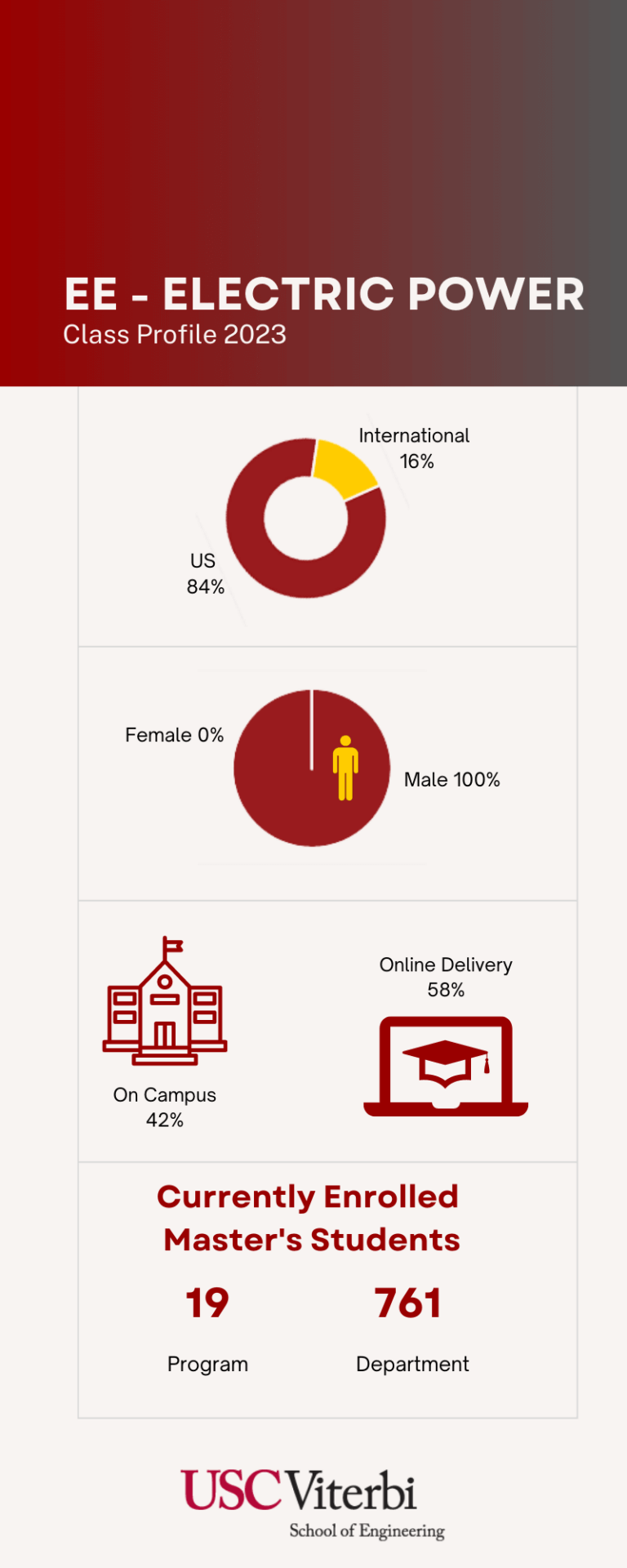
Published on July 7th, 2017
Last updated on April 25th, 2024
- Master’s Programs
- Programs for Non-Engineering Majors
- Application Information & Steps
- Tuition & Funding
- Frequently Asked Questions (FAQ)
- Academic Disciplines
- Faculty/ Research Topic Search
- Frequently Asked Questions (F.A.Q.)
- Executive Education
- All Degree Options
- The DEN@Viterbi Experience
- Getting Started
- Online DEN@Viterbi Offerings
- Rankings and Awards
- Next Steps for Newly Admitted Master’s Students
- Next Steps for Newly Admitted Doctoral Students
- Alternatives to Visiting Campus
- Become a Partner
- Certificate Options
- U.S. Active Duty Military & Veterans
- The Boeing Company
- General Motors – Technical Education Program
- Kuwait Oil Company
- Raytheon Technologies
- Saudi Aramco

Master of Science in Electrical Engineering (Electric Power)
The Master of Science in Electrical Engineering (Electric Power) program (available both on-campus and online via DEN@Viterbi) is intended for students seeking careers in the electric power industry.
The plan of study combines traditional topics in power generation, transmission, and distribution with cutting-edge topics such as the integration of renewable energy sources in the “smart grid.”
Related Programs
The Ming Hsieh Department of Electrical and Computer Engineering also offers the following master of science concentration degree programs:
- MS in Computer Engineering
- MS in Electrical Engineering (EE)
- MS in EE-Applied Physics
- MS in EE-Computer Architecture (On-campus only)
- MS in EE-Computer Networks
- MS in ECE-Analog, Mixed-Signal, and Radio-Frequency Integrated Circuits (On-campus only)
- MS in ECE-Machine Learning and Data Science (On-campus only)
- MS in ECE-Quantum Information Science (On-campus only)
- MS in EE-VLSI Design
- MS in EE-Wireless Networks (On-campus only)
- MS in Financial Engineering
- Dual Degree: MS in Electrical Engineering/MS in Engineering Management
For a complete list of graduate programs offered online in the USC Viterbi School of Engineering, please visit the DEN@Viterbi Program Offerings .
Career Opportunities
A variety of career opportunities exist, but primarily in the areas of:
- Systems Design
- Broadcast Technology
- Professional Communications
- Industrial and Power Electronics
- Power Engineering
- Computer Architecture
- Nanotechnology
- Computer Networks
- Multimedia Processing
- Microelectronics
- Control and Traditional Energy Systems
Earn your Master of Science in Electrical Engineering (Electric Power) online via DEN@Viterbi. Request information today.
Same Faculty. Same Program. Same Degree.
DEN@Viterbi strives to meet the needs of engineering professionals, providing the opportunity to advance your education while maintaining your career and other commitments. By breaking down geographical and scheduling barriers, DEN@Viterbi allows you to take your classes anytime and anywhere.
DEN@Viterbi students undergo the same academic requirements, curriculum, and must adhere to the same academic standards as on-campus students; therefore, your diploma is ultimately issued by the University of Southern California. There is no difference between remote students and on-campus students.
Related Online Graduate Programs

Center for Electric Power Engineering
Theses & dissertations.
CEPE M.S. Theses and Ph.D. dissertations are listed below. See the Publications page for journal and conference publications.
Zachary Minter, “ Distributed Generation Dispatch in Islanded Distribution Systems: Imbalance and Slack Bus Modeling Studies ,” M.S. Thesis, February 2019.
Thomas Halpin, “A Hardware and Software Interfaced Microgrid Energy Management System,” M.S. Thesis, November 2019.
Nicholas Coleman, “ Online Analysis and Control of Electric Power Distribution Systems ,” Ph.D. Thesis, March 2018.
Mohammed Muthalib, “An Electrical-Thermal Circuit Framework for Utilizing Buildings as Controllable Power System Loads,” Ph.D. Thesis, June 2018.
Sachi Jayasuriya, “ Modeling and Analysis of Information-Embedded Power Electronic Converter Systems ” Ph.D. Thesis, May 2017.
Edwin J. John, “ Experimental Testbed for Load Control on an AC/DC Microgrid ” M.S. Thesis, September 2017.
Jonathan Berardino, “ Modeling and Analysis of Commercial Building Electrical Loads for Demand Side Management ,” Ph.D. Thesis, December 2016.
Michael R. Kleinberg, “ Online optimization of capacitor switching in electric power distribution systems ,” Ph.D. Thesis, June 2015.
Christian Schegan, “ Non-destructive, Remote Testing of Physically Distributed Power Systems: Modeling, Analysis, and Experimental Prototyping ,” Ph.D. Thesis, June 2015.
Nicole Segal, “ Realizable Constraint Driven Capacitor Placement and Control Sequences for Voltage Spread Reduction in Distribution Systems ,” Ph. D. Thesis, July 2015.
Uthara Mary Reji, “ Load Frequency Control in Shipboard Power Systems: Design and Simulation ,” M.S. Thesis, May 2014.
Sudipta Lahiri, “ Hybrid Automaton Based Controller Design for Damage Mitigation of Islanded Power Systems ,” Ph.D. Thesis, September 2014.
Nicholas S. Coleman, “ Load Capability for Smart Distribution Systems ,” M.S. Thesis, June 2013.
Michael Knauff, “ Kalman Filter Based State of Charge Estimation for Valve Regulated Lead Acid Batteries in Wind Power Smoothing Applications ,” Ph.D. Thesis, February 2013.
Jeffrey L. Yakaski, “ Generator modeling for analog emulation of large scale power systems ,” M.S. Thesis, December 2011.
Anupam Gopal, “ DC power flow based contingency analysis using graphics processing units ,” M.S. Thesis, April 2010.
Valentina Cecchi, “ Temperature-dependent transmission line models for electric power systems and their impacts on system studies ,” PhD. Thesis, November 2010.
Sudipta Lahiri, “ Modeling and Simulation of Shipboard Integrated Power Systems ,” M.S. Thesis, May 2009.
Myke Knauff, “Battery Test System and Procedures,” MS Thesis, April 2009.
Valentina Cecchi, “ A modeling approach for electric power transmission lines in the presence of non-fundamental frequencies ,” M.S. Thesis, January 2008.
Edoe Mensah, “ Logic-based optimal control for shipboard power system management ,” PhD. Thesis, April 2008.
Aaron St. Leger, “ Power system security assessment through analog computation ,” PhD. Thesis, July 2008.
Anthony Deese, “ Analog methods for power system analysis and load modeling ,” PhD. Thesis, July 2008.
Nicole Segal, “ Multi-phase switching in distribution grids with unbalanced loads and distributed energy resources ,” M.S. Thesis, October 2008.
Michael Kleinberg, “ Distributed multi-phase distribution power flow: modeling, solution algorithm, and simulation results ,” M.S. Thesis, January 2007.
Shiqiong Tong, “ Slack bus modeling for distributed generation and its impacts on distribution system analysis, operation and planning ,” PhD. Thesis, Janary 2007.
Xiaoguang Yang, ” Unbalanced power converter modeling for AC/DC power distribution systems ,” PhD. Thesis, January 2007.
Andrew Golder, “ Photovoltaic generator modeling for large scale distribution system studies ,” M.S. Thesis, January 2007.
Ekrem Gursoy, “ Independent component analysis for harmonic source identification in electric power systems ,” PhD. Thesis, September 2007.
Edoe Mensah, “ Logic Based Optimal Control for Shipboard Power System Management ,” PhD. Thesis, 2007.
Anantkrishnam Viswanathan, “Hybrid Modeling and Optimal Contrrol of DC Power Electronic Converters,” M.S. Thesis, 2007.
Ralph Beam, “Modeling and Simulation of Reconfigurable Shipboard Power Systems,” M.S Thesis, 2007.
Ekrem Gursoy, “ Independent Component Analysis Techniques for Power System Load Estimation ,” PhD. Thesis, September 2007.
Yiming Mao,” Protection system design for power distribution systems in the presence of distributed generation ,” PhD. Thesis, July 2005.
Aaron St. Leger, “ Transmission line modeling for the purpose of analog power flow computation of large scale power systems ,” M.S. Thesis, December 2005.
Chris Dafis, “ An Observability Formulation for Nonlinear Power Systems Modeled as Differential Algebraic Systems ,” PhD. Thesis, August 2005.
Qingyan Liu, “Evaluation of Operational Transconductance Amplifier (OTA) Based Circuits used for Power Systems Emulation,” M.S. Thesis, 2005.
Bhavana Kashavamurthy, “Computational Bottlenecks in Optimal Power Flow,” M.S Thesis, 2004.
Anawach Sangswang, “ Uncertainty Modeling of Power Electronic Converter Dynamics ,” PhD. Thesis, July 2003.
Steve Carullo, “ Experimental Studies and Modeling of an Information Embedded Power System ,” PhD. Thesis, November 2002.
Saffet Ayasun, “Singularity Analysis of Differential Algebraic Power System Models,” PhD. Thesis, 2001.
Paolo Pietro Pericolo, “Supervised Artificial Neural Networks for Monitoring the Performance of Chillers,” M.S. Thesis, 2001.
Yun-Kun Fan, “Voltage Stability of Small Integrated AC/DC Power Systems: Modeling, Load Flow and Bifurcation Studies,” M.S. Thesis, 2000.
Yiqiao Liang, “Multilevel Voltage Source Inverters with Phase Shift SPWM and their Applications in STATCOM and Power Line Conditioner,” PhD. Thesis, 1999.
Yin-Chun Tse, “Automated Test Bench for the Steady State Characterization of the Optically Controlled High Voltage Switch,” M.S. Thesis, 1999.
Hadiza Mohammed, “Stochastic Analysis and Modeling of Wind Energy Conversion Systems,” M.S. Thesis, 1998.
Dana Sochuliakova, “Capacitor Switching Transients,” M.S. Thesis, 1998.
Chris Dafis, “Harmonic Decomposition of Transient and Harmonic Disturbances in the Presence of Noise and the Analysis of Capacitor Switching Transient Times,” M.S. Thesis, 1998.
Steve Carullo, ” Instrumentation of the Center for Electric Power Engineering’s Interconnected Power Systems Laboratory,” M.S. Thesis, 1998.
Mark Gravener, “Network Uncertainty and a Method of Calculating Available Transfer Capability,” M.S. Thesis, 1997.
Lifeng Shi, “Investigation of Stochastic Modeling of DC-DC Power Electronics Converters,” M.S. Thesis, 1997.
Herbert Hung-Kwang Yan, “Real-Time Transmission Transfer Capability Assessment in a Deregulated Bulk Power Market,” PhD. Thesis, 1996.
Chor Hon Wang, “Effect of Tap-Changer Transformers on Power System Stability: An Energy Function Approach,” M.S. Thesis, 1996.
Chean Lung Tsay, “Computer-Aided Model of the Gate Turn-Off Thyristors (GTO) for Power Electronics Circuit Design,” PhD. Thesis, 1995.
Lingyang Xu, “Stochastic Robustness in Dynamic Power System Analysis,” M.S. Thesis, 1995.
Celeste M. Belcastro, “Detecting Upset in Fault Tolerant Control Computers Using Data Fustion Techniques,” PhD. Thesis, 1994.
Christine M. Belcastro, “Uncertainty Modeling of Real Parameter Variations for Robust Control Applications,” PhD. Thesis, 1994.
Jeng Chieh Chow, “Design of an Integrated Decision Support System for Power System Security Assessment,” PhD. Thesis, 1994.
Raquib Hassan, “Stochastic Models and Voltage Security Assessment of Power System,” M.S. Thesis, 1994.
Haige Kan, “On the Degree of Controllability for Linear Time-Variant Systems,” M.S. Thesis, 1992.
Sujatha Chakravarthy, “Expert System for Preparing for Power System Data for Security Analysis,” M.S. Thesis, 1992.
John Schwartzenberg, “A Solid State VAR Compensator Controlled by Instantaneous Reactive Load Current,” M.S. Thesis, 1992.
Thierry Jurand, “Analytical Model for Optical Pulse Propogation in Aerial Bathymetric Surveying,” PhD. Thesis, 1991.
Stanley J. Sokolowski, Jr., “Reachability of Multiple Linear Estimators,” PhD. Thesis, 1991.
Leonardo V. Zaragocin, “Load Flow Feasibility Region: Graphical Approach,” M.S. Thesis, 1990.
Sandra L. Ricciardi (Godsey), “Design of Multi-Layered Neural Network for Contingency Classification,” M.S. Thesis, 1990.
Francis J. Mercede, Sr., “A Framework for the Analysis of Voltage Collapse in Electric Power Systems,” PhD. Thesis, 1989.
Chean Lung Tsay, “A Gate Turn-Off Thyristor Model for Computer Aided Circuit Design,” M.S. Thesis, 1989.
Jeng Chieh Chow, “On the Graphical Evaluation of the Voltage Collapse Criteria in the Power Systems,” M.S. Thesis, 1989.
Thierry Jurand, “Comparison of Parameter Identification Algorithms for Distributed Parameter Pluf Flow Models with Applications to Solar Energy Collection Loop,” M.S. Thesis, 1988.
John J. Helferty, “Parameter Identification and State Estimation of Distributed Parameter-Plug-Flug Models for Solar Thermal Systems,” PhD. Thesis, 1987.
Kevin G. Bonner, “A Hands-On Control System Laboratory,” M.S. Thesis, 1987.
Abdelfatah Charef, “On the Degree of Controllability and Observability of Discrete Linear Time Invariant Systems,” M.S. Thesis, 1987.
Vladimir Gershman, “Estimating Network Performance Changes Due to the Network’s Parameter Variations Using Adjoint Sensitivity Method,” M.S. Thesis, 1987.
Albert Guvenis, “Statistical Design of Electric Power Transmission Networks,” PhD. Thesis, 1983.
Tong Wu, “Load-Flow Feasibility Evaluation of Inter-Area Imports of Real Power,” PhD. Thesis, 1982.
Thomas F. Halpin, “Contingency Selection Theory for Steady-State Security Assessment of Power Systems,” PhD. Thesis, 1982.
Abraham Orbach, “Optimal Control of Distributed Parameter Systems for Solar Thermal Applications,” PhD. Thesis, 1979.
Richard B. Adler, “Generator Participation Factors for Security Constrained Dispatch in the Presence of Bus-Load Uncertainty,” PhD. Thesis, 1977.
Ta Fu Ho, “Transmission Network Expansion Planning for Maximum Reliability within a Specified Budget,” PhD. Thesis, 1977.
Gabriel C. Ejebe, “Assessment of Power System Security Under Load Uncertainty,” PhD. Thesis, 1976.
Walter R. Puntel, “Computer-Aided Design of High Voltage Power System Transmission Line Networks,” PhD. Thesis, 1972.
Alan G. Evans, “Least-Square System Parameter Identification and Time Domain Approximation,” PhD. Thesis, 1972.
Jack I Laveson, “Simulation of Man-Machine Spoken Language Communication for Use in Air Traffic Control,” PhD. Thesis, 1972.
Anthony Mattei, “Message Propogation Through Random Communication Networks,” PhD. Thesis, 1971.
Brian P. Butz, “Computer-Aided Analysis of Estuarine Pollution Dynamics Simulation by a Distributed Parameter Model,” PhD Thesis, 1971.
Richard B. Adler, “Steady-State Voltage-Power Characteristics for Power System Loads,” M.S. Thesis, 1970.
James P. McIlvaine IV, “Analysis of the Effect of Observation Errors on the Estimation of Satelite Attitude,” M.S. Thesis, 1970.
Jack I. Laveson, “Computer Graphic Display Simulations,” M.S. Thesis, 1969.
Walter R. Puntel, “The Improvement of Power System Stability Using Dynamically Responsive DC Transmission Lines,” M.S. Thesis, 1969.
Joseph M. Medwetz, “On the Stability Analysis of Linear Time Varying Systems,” M.S. Thesis, 1968.
Richard J. Olerich, “A Study of the Scanned Laser Optical Tracking System,” M.S. Thesis, 1968.
Brian P. Butz, “Computer-Aided Circuit Analysis Using State Variable Techniques,” M.S. Thesis, 1968.
Robert M. Colton, “Log Count Rate Amplifier,” M.S. Thesis, 1968.
Alan G. Evans, “Performance Indexes Based on Critical Points of the Unit Step Response,” M.S. Thesis, 1967.
Drexel University Department of Electrical and Computer Engineering
Schweitzer Power and Energy Systems - Elmore Family School of Electrical and Computer Engineering - Purdue University

Schweitzer Power and Energy Systems
This area focuses on electrical power engineering and the electrical to non-electrical energy conversion process. Topics of interest include electromechanical component design, power electronics design, passive component design, power magnetics, electric drives, electric propulsion systems, vehicle (ship, spacecraft, automotive) electric systems, and power system control and stability.
In the push for sustainability and reduced carbon emissions, energy conversion technologies are critical. Energy sources and systems faculty are at the forefront of modern electromechanical component and system design, analysis, and control. They also have significant efforts in power electronics – particularly in the areas of control and passive component design.
As the demand for higher reliability and efficiency on aircraft and marine platforms increases, hydraulic control systems are being replaced by electric drive systems. Research is underway to accurately model the performance of alternative power-by-wire electric drive systems. Computer simulation packages are being designed that accurately evaluate complete power-by-wire systems, including actuators, converters, electric drives, and electrical distribution systems. Evaluation and design of electric propulsion systems is also in progress. The deregulation of the electric utilities coupled with the integration of alternative energy sources provides new challenges in power distribution and control. Current research includes evaluating the impact of deregulation on power quality, optimal control of the distribution system, and instability detection.
The Schweitzer Power and Energy Area has several research and undergraduate laboratories including the Grainger Energy Conversion and Microgrid Laboratory, the Grainger Power Magnetics Fabrication Laboratory, the Energy Storage and Material Characterization Laboratory, the Electric Vehicle Systems Laboratory, the Energy Systems Simulation Laboratory, the High Speed Machines Laboratory, the Alternative Energy Grid Integration and Systems Laboratory, and the Special Projects Laboratory.
Research Thrusts

Electromechanical and Electromagnetic Component Design

Electric Drive and Power Converter Controls
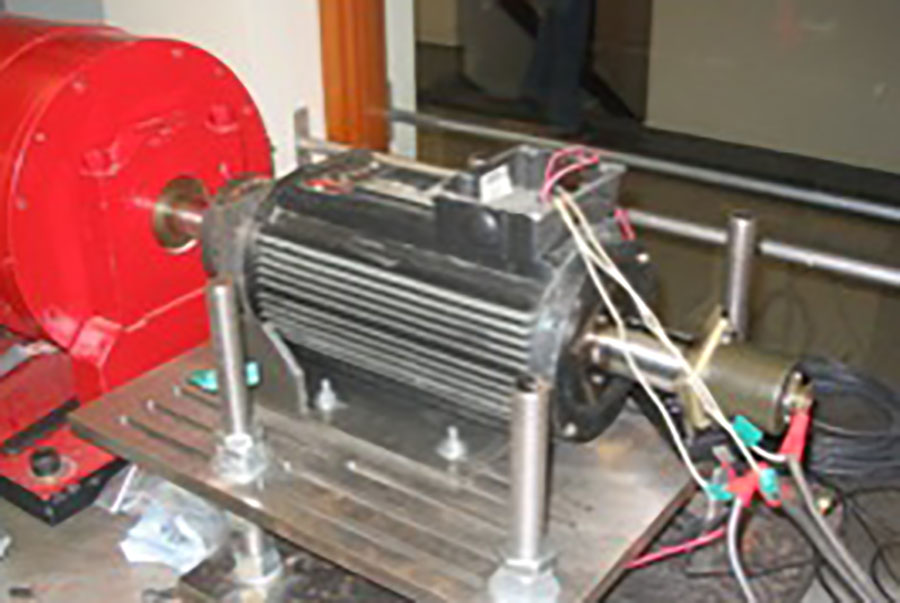
Modeling of Electric Machinery and Converters
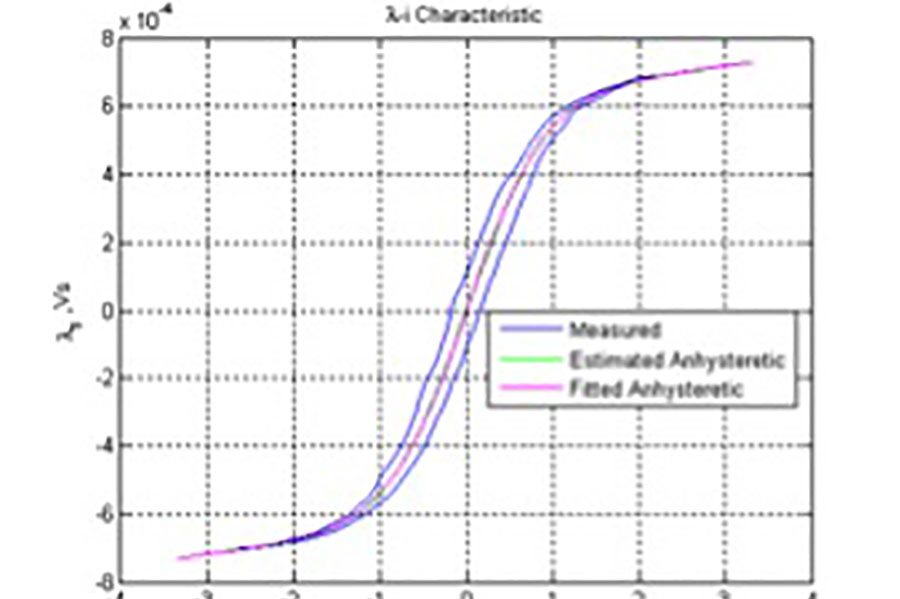
Characterization of Magnetic Materials

Design Optimization and Evolutionary Computing
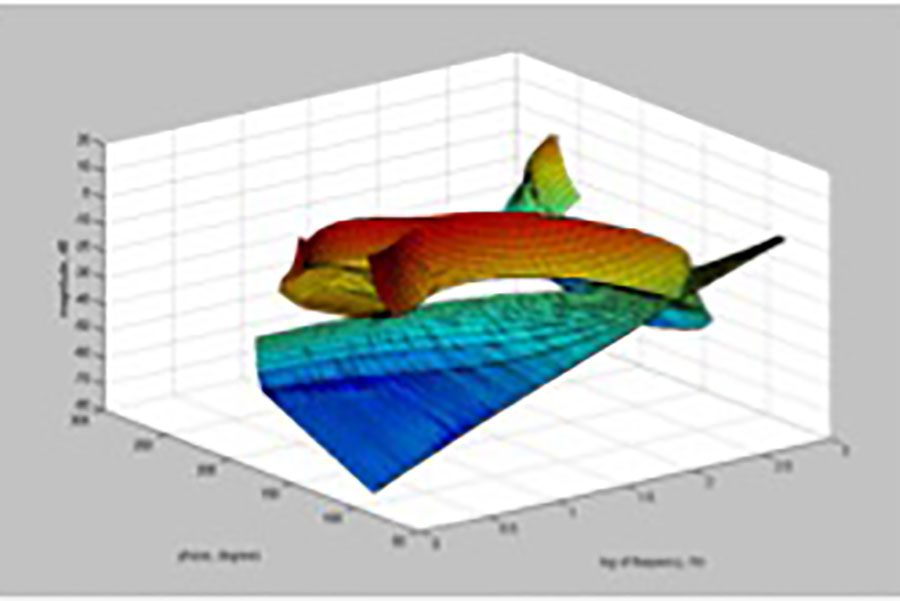
Stability of Power Electronics Based Power Distribution Systems
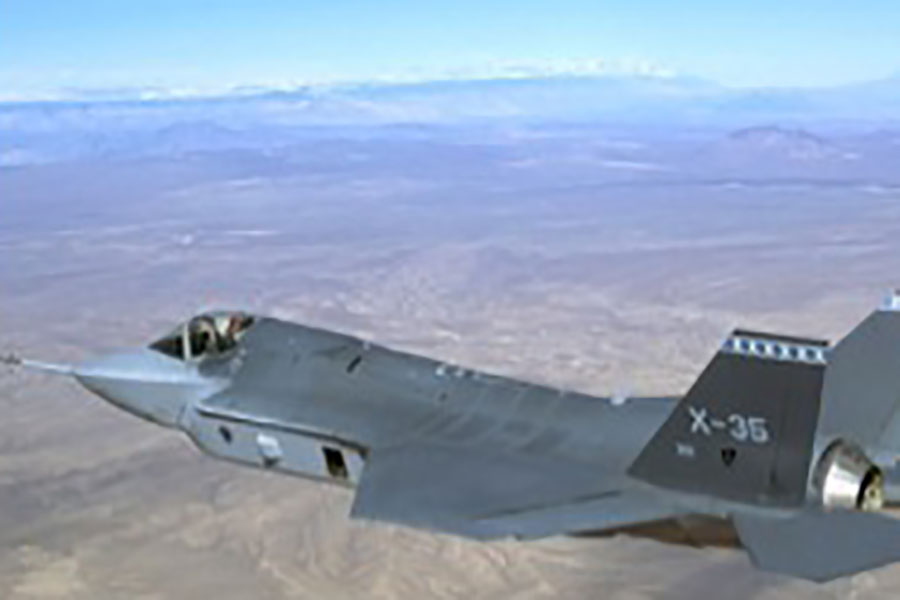
Marine and Aerospace Power Systems
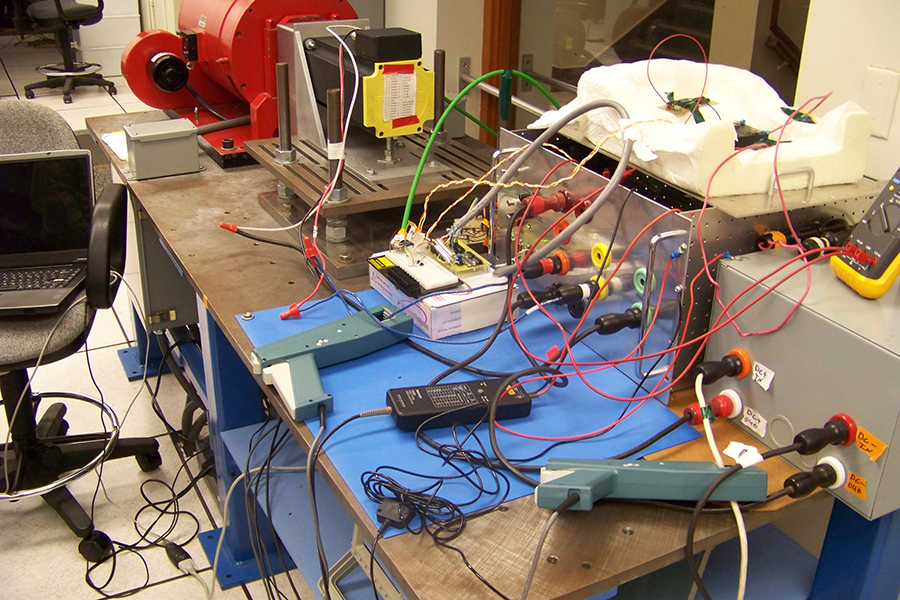
Energy Conversion Research Laboratory

Genetic Optimization Processing Array
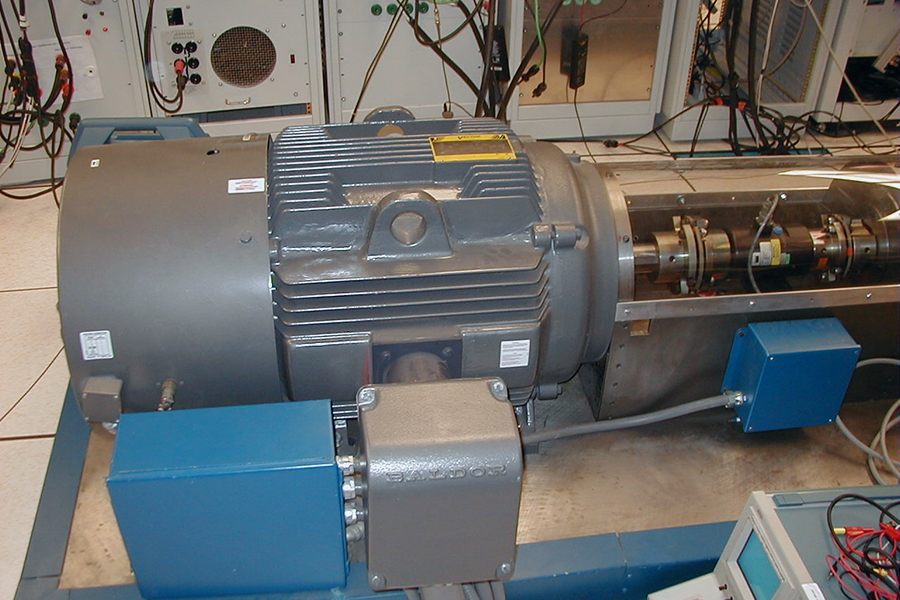
Purdue Medium Voltage DC Testbed
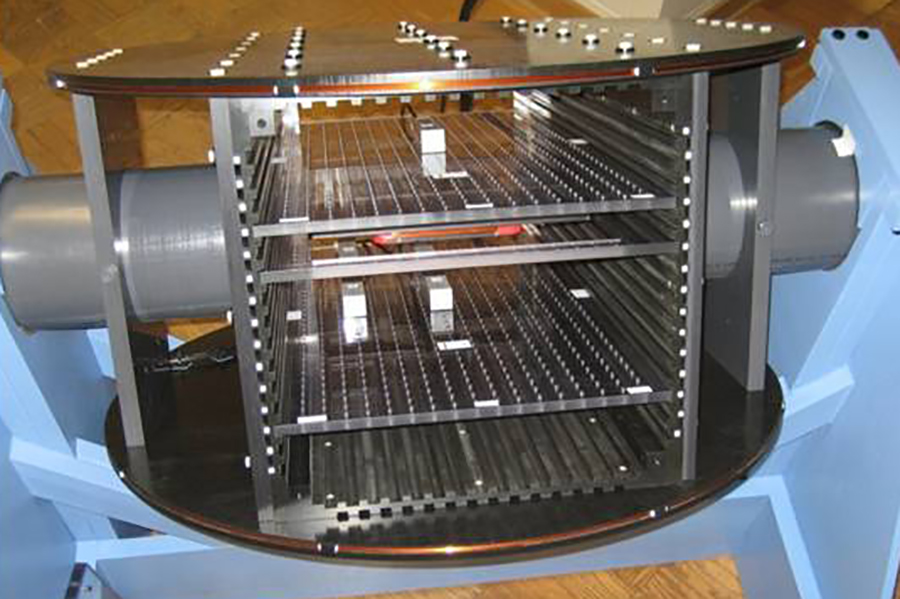
Power Magnetics Laboratory
Power and Energy Systems News
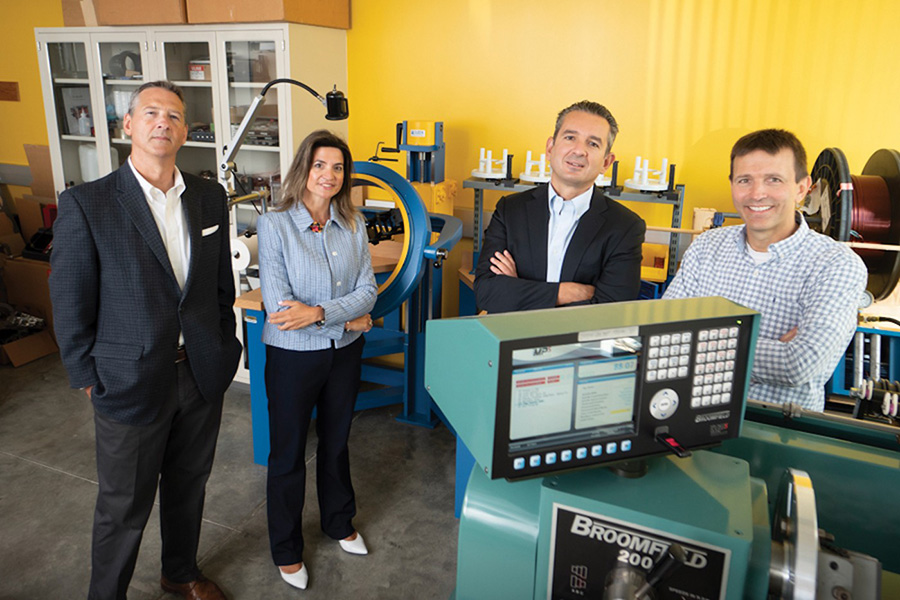
Electric roads: Tackling the roadblocks

INDOT, Purdue to Develop Wireless Electric Vehicle Charging Solution for Highway Infrastructure

Magnets shown to create more power in electrical generators
Software Downloads
Dc stability toolbox 3.0, genetic optimization system engineering toolbox 2.6, magnetic equivalent circuit toolbox 3.2, method of moments toolbox 1.1, power magnetic material toolbox 1.0, thermal equivalent circuit toolbox 2.0.

Alternatively, use our A–Z index
Attend an open day
Download our course brochure
Discover more about research that informs teaching
MSc Electrical Power Systems Engineering / Overview
Year of entry: 2024
- View full page
We require a good Upper Second Class Honours degree or international equivalent in an electrical and electronic engineering discipline.
When assessing your academic record, we take into account your grade average with particular emphasis on relevant course units and the standing of the institution where you studied your qualification.
Applicants who are made a conditional offer of a place must demonstrate that they have met all the conditions of their offer by 31st July 2024.
Full entry requirements
We operate a non-staged admissions process. Provided your application is complete we aim to give you a decision on your application within 3 months from the date in which it was submitted. However, in some instances due to the competition for places and the volume of applications received, it may be necessary to roll your application forward. Please note that all places are subject to availability.
Applications placed after 30th June 2024 may be considered at our discretion if there are still places available on the programme.
Applicants who are made a conditional offer of a place must demonstrate that they have met all the conditions of their offer by 31 July 2024.
Apply online
Find out how this course aligns to the UN Sustainable Development Goals , including learning which relates to:
Goal 7: Affordable and clean energy
Goal 9: industry, innovation and infrastructure, goal 11: sustainable cities and communities, goal 12: responsible consumption and production, goal 13: climate action, course options, course overview.
Please enable JavaScript to watch this video.
For entry in the academic year beginning September 2024, the tuition fees are as follows:
- MSc (full-time) UK students (per annum): £14,000 International, including EU, students (per annum): £35,000
Further information for EU students can be found on our dedicated EU page.
The fees quoted above will be fully inclusive for the course tuition, administration and computational costs during your studies.
All fees for entry will be subject to yearly review and incremental rises per annum are also likely over the duration of courses lasting more than a year for UK/EU students (fees are typically fixed for International students, for the course duration at the year of entry). For general fees information please visit: postgraduate fees . Always contact the department if you are unsure which fee applies to your qualification award and method of attendance.
Self-funded international applicants for this course will be required to pay a deposit of £1000 towards their tuition fees before a confirmation of acceptance for studies (CAS) is issued. This deposit will only be refunded if immigration permission is refused. We will notify you about how and when to make this payment.
Policy on additional costs
All students should normally be able to complete their programme of study without incurring additional study costs over and above the tuition fee for that programme. Any unavoidable additional compulsory costs totalling more than 1% of the annual home undergraduate fee per annum, regardless of whether the programme in question is undergraduate or postgraduate taught, will be made clear to you at the point of application. Further information can be found in the University's Policy on additional costs incurred by students on undergraduate and postgraduate taught programmes (PDF document, 91KB).
Scholarships/sponsorships
Across our institution, we offer a number of postgraduate-taught scholarships and awards to outstanding UK and international students each year.
The University of Manchester is committed to widening participation in master's study, and allocates £300,000 in funding each year. Our Manchester Masters Bursaries are aimed at widening access to master's courses by removing barriers to postgraduate education for students from underrepresented groups.
For more information, see the Fees and funding page or visit the University of Manchester funding for masters courses website.

UN Sustainable Development Goals
The 17 United Nations Sustainable Development Goals (SDGs) are the world's call to action on the most pressing challenges facing humanity. At The University of Manchester, we address the SDGs through our research and particularly in partnership with our students.
Led by our innovative research, our teaching ensures that all our graduates are empowered, inspired and equipped to address the key socio-political and environmental challenges facing the world.
To illustrate how our teaching will empower you as a change maker, we've highlighted the key SDGs that our courses address.

Ensure access to affordable, reliable, sustainable and modern energy for all

Build resilient infrastructure, promote inclusive and sustainable industrialization and foster innovation

Make cities and human settlements inclusive, safe, resilient and sustainable

Ensure sustainable consumption and production patterns

Take urgent action to combat climate change and its impacts
Contact details
The School of Engineering creates a world of possibilities for students pursuing skills and understanding. Through dynamic research and teaching we develop engineering solutions that make a difference to society in an ethical and sustainable way. Science-based engineering is at the heart of what we do, and through collaboration we support the engineers and scientists of tomorrow to become technically strong, analytically innovative and creative. Find out more about Science and Engineering at Manchester .
Courses in related subject areas
Use the links below to view lists of courses in related subject areas.
- Electrical and Electronic Engineering
Regulated by the Office for Students
The University of Manchester is regulated by the Office for Students (OfS). The OfS aims to help students succeed in Higher Education by ensuring they receive excellent information and guidance, get high quality education that prepares them for the future and by protecting their interests. More information can be found at the OfS website .
You can find regulations and policies relating to student life at The University of Manchester, including our Degree Regulations and Complaints Procedure, on our regulations website .
EE Research at Stanford: The Big Picture

AI, machine learning, optimization
Optimal design and engineering systems operation methodology is applied to things like integrated circuits, vehicles and autopilots, energy systems (storage, generation, distribution, and smart devices), ...
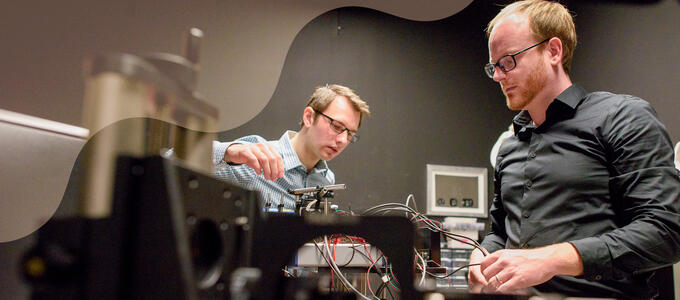
Computational Sensing, Imaging, and Display
This area combines advanced computational and algorithmic solutions with next-generation hardware and systems to unlock new paradigms in sensing, imaging, and displays.
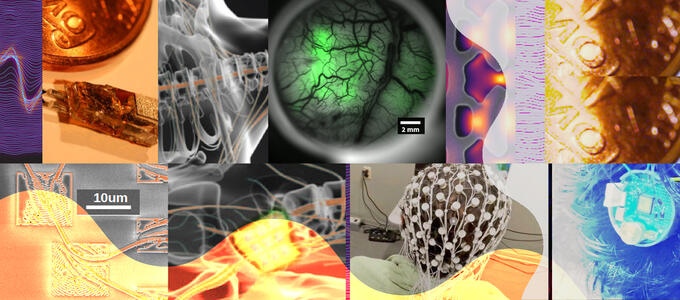
Biology and Health
Discovering and creating fundamentally new devices and systems for critical diagnostics (sensors, imaging), therapeutic (lasers, pacemakers, and neural interfaces), and analytical (high-throughput sequencing, healthcare IT) technologies. ...

Information, Learning, Communication and Coding
Moving information efficiently and reliably across time and/or space supports the modern world and its sustainable future. This area advances fundamental understanding of the communicated information's structure, partitioning …

Computer architecture, including energy efficiency, reliability, security
Exponential growth in performance and storage capacity has been the key enabler for information technology for decades. Yet, current shifts have motivated new system architectures and vertical co-design of hardware, system software, and applications. …
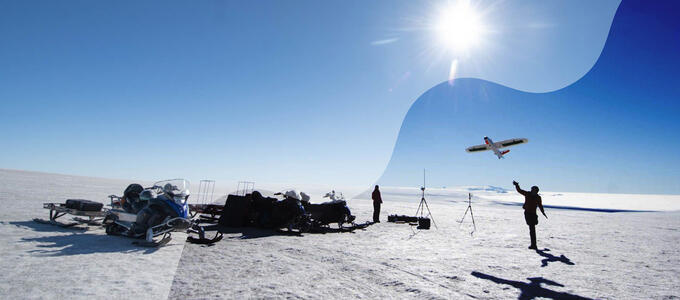
Energy, environment, and sustainability
Motivated at the macro level by the rapid rise in demand for electricity and related threats to the environment, and on the micro level by the number of mobile devices and sensors whose performance and lifetimes are …

Environmental sensors, embedded systems, remote sensing
Drawing on broad disciplines and approaches that advance the state-of-the-art in geoscience remote sensing instrumentation, plus technologies that advance knowledge for the betterment of society and …

Integrated Circuits and Systems
This area is concerned with the application-driven design of electronic circuits and systems, spanning a wide spectrum from low frequencies to mm-wave and THz. These systems are designed with a variety of fabrics and technologies, ranging from silicon subsystems and modules, CMOS and BiCMOS chips, emerging nano and MEMS devices, as well as discrete electronics.

Nanotechnology, nanofabrication, materials, advanced packaging and manufacturing technologies
Design methodology, validation and test, approximate computing, and robust circuits and systems; Mixed-signal integrated circuit design ...

Physics, materials, devices, and systems are investigated using light and electromagnetism. Applications including sensing, imaging, communications, computing, energy, biology, medicine, security, and information processing. ...

Quantum science and engineering
Quantum mechanical entanglement is the main resource for implementation of all quantum technologies (quantum computers, simulators, sensors, and networks). Our goal is to study and scale entanglement in a variety of physical systems …

Develop broadly intelligent behavior through learning and interaction. Exploring the intersection of machine learning and robotic control, including visual perception and manipulation skills, deep reinforcement learning of general skills …

Signal processing and control
Securing useful information while reducing unwanted noise can be achieved using mathematical methods and computation. Optimal design and engineering systems’ operation methodologies enable the understanding, design, and control of systems …

Software systems, security, distributed systems and networks
Efficient storage, compression, and transmission of information, applies to a wide range of domains, such as communications, genomics, neuroscience, societal networks and urban systems, and statistics. …
Curious about designing a program?
If you are interested in designing a program that fits your interests, please contact the undergrad advisor or graduate advisor.
Want more projects and people?
Visit Faculty research and lab sites. Deeper dive links are available by clicking on our faculty's name.
Department of electric energy
- Master's programmes in English
- For exchange students
- PhD opportunities
- All programmes of study
- Language requirements
- Application process
- Academic calendar
- NTNU research
- Research excellence
- Strategic research areas
- Innovation resources
- Student in Trondheim
- Student in Gjøvik
- Student in Ålesund
- For researchers
- Life and housing
- Faculties and departments
- International researcher support
Språkvelger
Research - department of electric power engineering.
At the Department of Electric Energy (IEL), the mission is to contribute to the fundamental and applied knowledge of electric power engineering, and to develop technology and systems for the planning, operation and maintenance of efficient, sustainable energy systems. Both research and research-based education at the Department of Electric Energy cover the broad interdisciplinary aspects of power engineering: generation, transmission, conversion and the use of electric energy, including the accompanying techno-economic aspects.
The Department works in close collaboration with industry partners to develop technology for the production of electric energy from renewable energy sources, and contribute to research that leads to solutions for the future power grid, with high relevance for the society, addressing industrial needs and global challenges.
We have five research groups that are responsible for research and education within their areas; the groups also collaborate among each other in research projects.
Research Groups
Electrical machines and electromagnetics (eme).
The main research areas of the group are related to the development, design, optimisation and testing of electric machinery, especially permanent magnet machines and hydropower generators. In addition, research is also focused on advanced electromagnetic modelling and analyses of different power apparatus and installations.
Electricity Markets and Energy System Planning (EMESP)
The main research areas of the group are related to the integration of renewable energy sources, energy storage and consumption in the electricity market, and how to optimize the integration of the power system with other parts of the energy system, e.g. heating and transport.
High Voltage Technology (HVT)
The main research activities of the group are related to the design, modeling and operation of electric power components. Research into better insulation materials, both for ac and dc, is being conducted.
Power Electronic Systems and Components (PESC)
The research activities of the group are related to the development, design, optimization and control of power electronic converters and systems. Application areas include onshore and offshore power systems, marine, oil & gas as well as transportation sectors.
Power System Operation and Analysis (PSOA)
The main research areas of the group are related to the planning, operation, control and analysis of power systems, with applications in smart grids, transmission and distribution grids, microgrids and HVDC systems.
PhD studies
Phd studies.
The PhD programme in Electric Power Engineering is standardised to 180 credits (3 years). The final plan for the PhD programme is designed in consultation with the candidate, the supervisor and the Department depending on the subject area of the thesis and the candidate's needs and preferences.
- PhD programme in Electric Power Engineering
- Info on PhD studies at NTNU
Vacant positions at the Department
person-portlet
Anngjerd pleym head of department, frank mauseth, kjetil obstfelder uhlen, publications.
Cristin (Current Research Information system) is a nationwide database system for research results and documentation.
- All Publications by the Department of Electric E nergy
- All PhD theses from the Department of Electric E nergy
- All Masters theses from the Department of Electric Energy
Summary of PhD projects
Summary of master projects
Physical Laboratory
The Department has access to a broad spectrum of advanced laboratories and scientific equipment.
- Electrical Machines | Pål Keim Olsen
- Electric Circuits
- High Voltage | Frank Mauseth
- High Current | Kaveh Niayesh
- Light and Lighting | Eilif Hugo Hansen
- Power Electronics | Dimosthenis Peftitsis , Anyuan Chen
- Renewable Energy
- Relay Protection Laboratory | Hans Kr. Høidalen
- Service Laboratory | Bård Almås
- Smartgrid | Basanta Raj Pokhrel
- Smarthus | Eilif Hugo Hansen
- Workshop | Morten Flå
Digital Laboratory
The Department has many digital resources
- Digital Lab
- Computing Resources available at IEL
- Scientific Software
Strategic Research Areas
- IE Faculty Strategic Research Area: SMARTGRIDS
- NTNU Strategic Research Area: ENERGY
Gemini Centre
About Gemini Centres
- Gemini Centre for Electrical Energy and Energy Systems
Power and energy systems
This area of electrical engineering focuses on devices and systems that process and deliver electric energy. It includes the broad topics of electromechanics, design and operation of large electric power and energy systems, magnetic and electric energy conversion methods, the application of electronic devices at high power levels, and alternative energy. Courses in this area cover concepts such as renewable electric energy systems, electric machines, power transmission and distribution, transformers, electronic motor controllers, and switching power converters. The physics of these devices as well as their mathematical models are studied and used to predict the behavior of the devices and to design systems that use them. Other courses in the area examine the overall performance of large systems. An example is the electric power system in North America, which consists of billions of power devices, and which must be analyzed and controlled for safe, consistent, reliable operation under all possible conditions. Operators of large power systems need tools to explore "what if..." questions and then plan to react in cases of failure. This is called reliability assessment. Additional applications of devices and electromagnetic fields are studied in advanced courses. Solar electric panels, hybrid cars, electronic motor controllers, computer power supplies, and backup power units are common applications of power electronics. Rapid advances in computer technology have made it possible to apply parallel processing techniques to large system simulation. The development and integration of renewable energy sources such as wind and solar are producing broad challenges and opportunities. The fast pace of change will continue to challenge engineers in this field.
Potential employers for graduates with an interest in this area include operators and builders of large power systems, such as electric utilities and large engineering consulting firms; manufacturers of power equipment, including wind turbines, motors, and power supplies; manufacturers and users of power semiconductors and other power electronics equipment including solar photovoltaic systems; manufacturers and users of robots, electronic controls, and transportation equipment; and industries which are large electricity consumers, such as the metals industry, automobile industry, oil industry, data industry, and others. These major industries dominate the global economy.
Courses in the Power and Energy Systems area cover the analysis concepts and devices of electromechanics, large electric power and energy systems, magnetic and electric energy conversion, and the application of electronic devices at high power levels.
Suggested Area Core Electives (Including laboratory courses)
ECE 333 - Green Electric Energy (requires ECE 210 ) 3 hr. An overview course of renewable electric energy sources including wind turbines, solar cells and systems, and the integration of such renewable energy systems into the existing electric power grid.
ECE 330 - Power Circuits and Electromechanics (requires ECE 210 ) 3 hr. The introductory course in three-phase circuits, transformers, and electromagnetic energy conversion also introduces rotating machines and electromechanical system analysis.
ECE 431 - Electric Machinery (requires ECE 330 ) 4 hr. The general course in power devices, including transformers, motors, and generators. A laboratory is included. Normally offered only in the spring.
ECE 464 - Power Electronics (requires ECE 342 ) 3 hr. The general course in switching power converters. A laboratory course intended to complement this course, ECE 469, is described below. Normally offered only in the fall.
ECE 469 - Power Electronics Laboratory (requires ECE 343 and credit or registration in ECE 464 ) 2 hr. A lab course which complements ECE 464 , and extends the treatment of power electronics applications. Normally offered only in the fall.
ECE 476 - Power System Analysis (requires ECE 330 ) 3 hr. A general course in electric power systems, including modeling and analysis of power system components and large nonlinear ac networks. Normally offered only in the fall.
ECE 307 - Techniques for Engineering Decisions (requires requires ECE 210 and credit or concurrent registration in ECE 313 ) 3 hr. This course is aimed at providing the skills and techniques for solving some typical problems faced in making engineering decisions in industry and government. The focus is on analytic schemes and systematic methodologies for making decisions with explicit consideration of the economic aspects. Normally offered only in the spring.
Suggested Non-ECE Technical Electives
CS 357 - Numerical Methods, 3 hr MATH 415 - Linear Algebra, 3 hr ME 300 - Thermodynamics, 3 hr NPRE 402 - Nuclear Power Engineering, 3 hr
Suggested Advanced Electives (Taken as technical electives by interested students)
ECE 391 - Computer Systems Engineering, 4 hr ECE 483 - Analog IC Design, 3 hr ECE 486 - Control Systems, I, 4 hr
Core Faculty In This Area
Our research areas reflect the diversity of the electrical engineering profession and range from the very small, such as nanoscale electronic devices and their modeling, to the very large, such as the U.S. electric power grid and its control. Our faculty includes experts in many application areas, such as the design of flight control for aircraft and the implementation of neural interfaces for biomedical applications.
Graduate students are involved in all of our research activities and have access to state-of-the-art facilities, such as the electromagnetic anechoic chamber, the wireless communications lab and the integrated circuit fabrication cleanroom. Some programs offer students theoretical approaches for the design of communication systems, while others include the implementation of wireless communication devices, such as the circuits in cell phones.
These research efforts align with national and international efforts to address worldwide challenges in energy production and distribution, communications technology and information management, health care technology and delivery, sustainable development and economic growth and global security.
Six primary areas of specialization
Control systems.
The School of Electrical, Computer and Energy Engineering’s systems and controls program includes nine graduate courses in the areas of linear and nonlinear control systems, real-time and digital control systems, optimal control, distributed parameter systems, adaptive control and neural networks. In addition, the theoretical material taught in the upper-division undergraduate and graduate courses is enhanced through the use of computer and experimental projects.
Electric power and energy systems
The School of Electrical, Computer and Energy Engineering’s electric power and energy systems curriculum includes six upper-division undergraduate courses and 14 graduate courses in the area of power system analysis, power generation, transmission and distribution, power system dynamics and stability, energy conversion, electric machines, power electronics, high voltage engineering and nuclear power engineering.
Arizona State University is the lead higher education institution in the Power Systems Engineering Research Center (PSERC), an industrially and federally supported program of industry and university cooperation. Students are exposed to industrial projects, professional society meetings, laboratory experience and research partially supported by PSERC.
Electromagnetics, antennas and microwaves
The School of Electrical, Computer and Energy Engineering’s electromagnetics, antennas and microwave circuits curriculum includes senior-level undergraduate and graduate-level courses in the areas of electromagnetics, antennas, microwave and terahertz circuits and devices, fiber optics and lasers. Computers and associated software are incorporated in many of the upper-division undergraduate and graduate courses to enhance the theoretical material taught in the courses.
Faculty members in the electromagnetics group are involved in researching many areas of applied electromagnetics, including metamaterials; smart antennas; beamforming and scanning techniques; flexible antennas; miniature, wideband and reconfigurable antennas; tunable and reconfigurable microwave circuits; RF microelectromechanical systems; biomedical applications; metamaterials; and fast computational electromagnetic methods.
Electronic and mixed-signal circuit design
The School of Electrical, Computer and Energy Engineering’s electronic and mixed-signal circuit design curriculum includes five upper-division undergraduate courses and more than 10 graduate-level courses in the area.
With the support of the semiconductor industry and government agencies, these centers have established a state-of-the-art educational program in very large-scale integration (VLSI) design, modeling, mixed-signal and radio-frequency (RF) integrated circuits design.
Physical electronics and photonics
The School of Electrical, Computer and Energy Engineering’s physical electronics and photonics curriculum includes five upper-division undergraduate courses and 14 graduate courses in the areas of semiconductor devices and materials, characterization, photonic and photovoltaic devices, semiconductor processing and intelligent control, nanoelectronics, molecular electronics, transport and computational electronics, as well as occasional specialty courses.
The faculty in the physical electronics and photonics program are actively pursuing research in many areas of semiconductor materials and devices. They engage students in the MSE, MS and PhD programs. Research is typically supported by the National Science Foundation , the U.S. Department of Defense , the U.S. Department of Energy and private industry.
Signal processing and communications
The School of Electrical, Computer and Energy Engineering offers instruction in the related areas of signal processing and communications systems at the graduate level. Courses are also offered for beginning graduate students in the field to bridge any gaps that might exist between undergraduate course work and the 500-level offerings at ASU.
Students may choose from among several 500-level courses, ranging from offerings primarily intended for first-year students to special topic courses designed to acquaint advanced graduate students with research topics of current interest.
Research topics
Ai and machine learning.
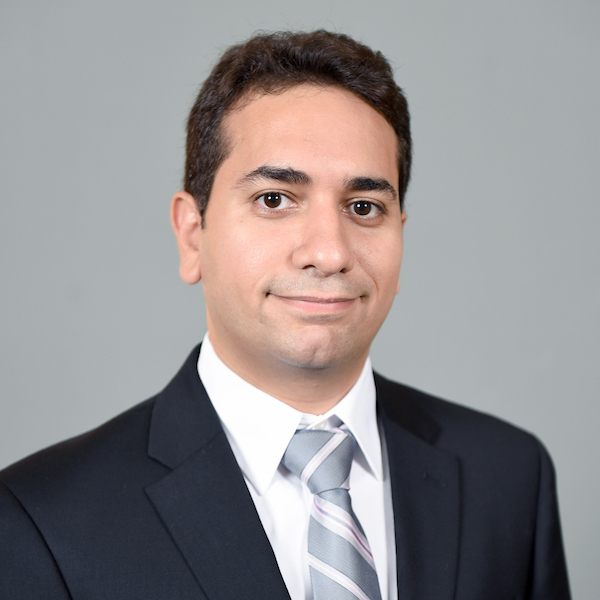
Ahmed Alkhateeb

Krishnendu Chakrabarty

Angelia Nedich

Lalitha Sankar
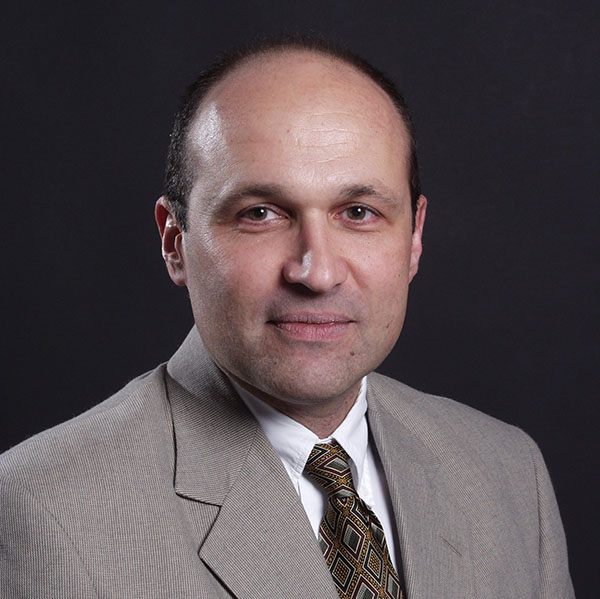
Konstantinos Tsakalis
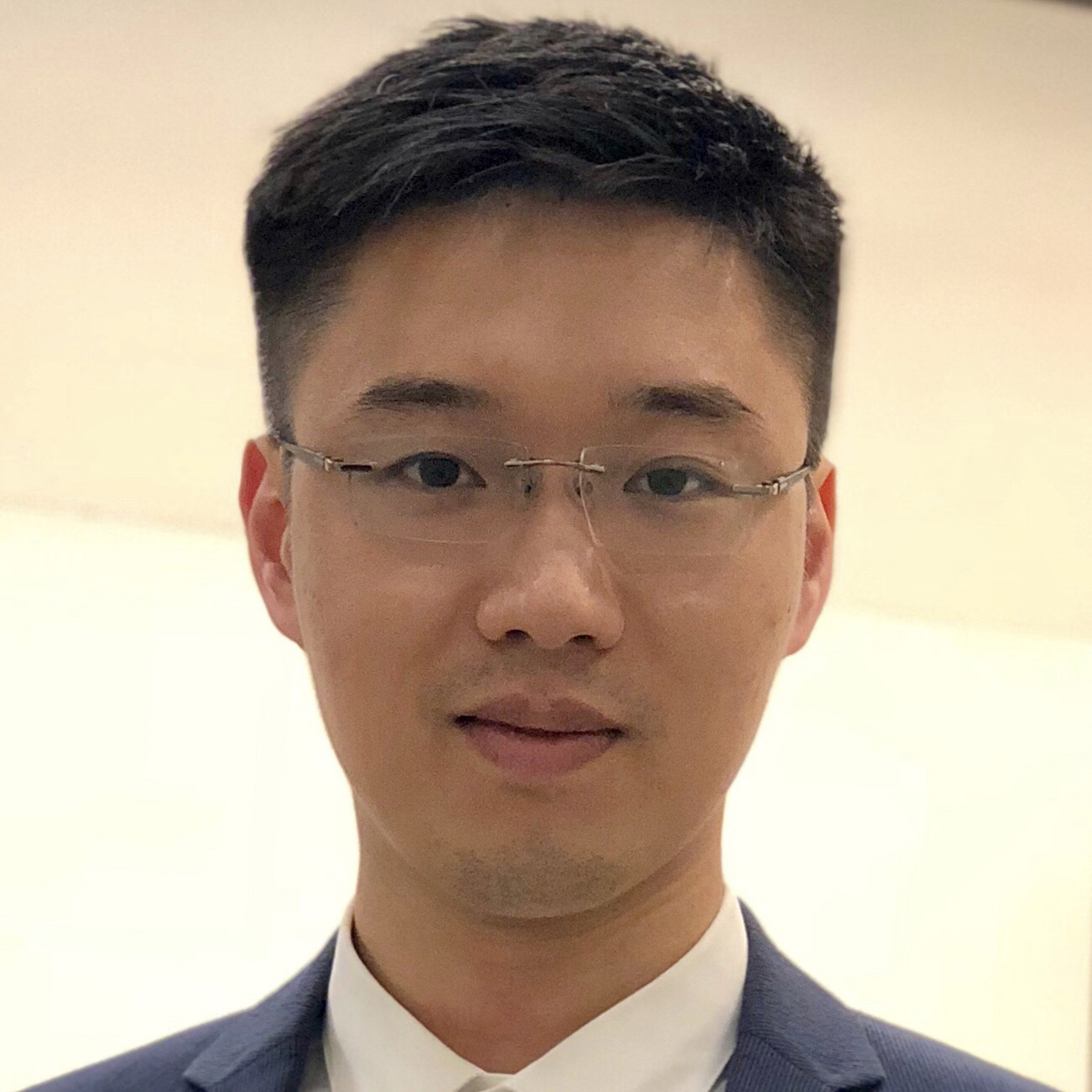
Jeff (Jun) Zhang

Visar Berisha
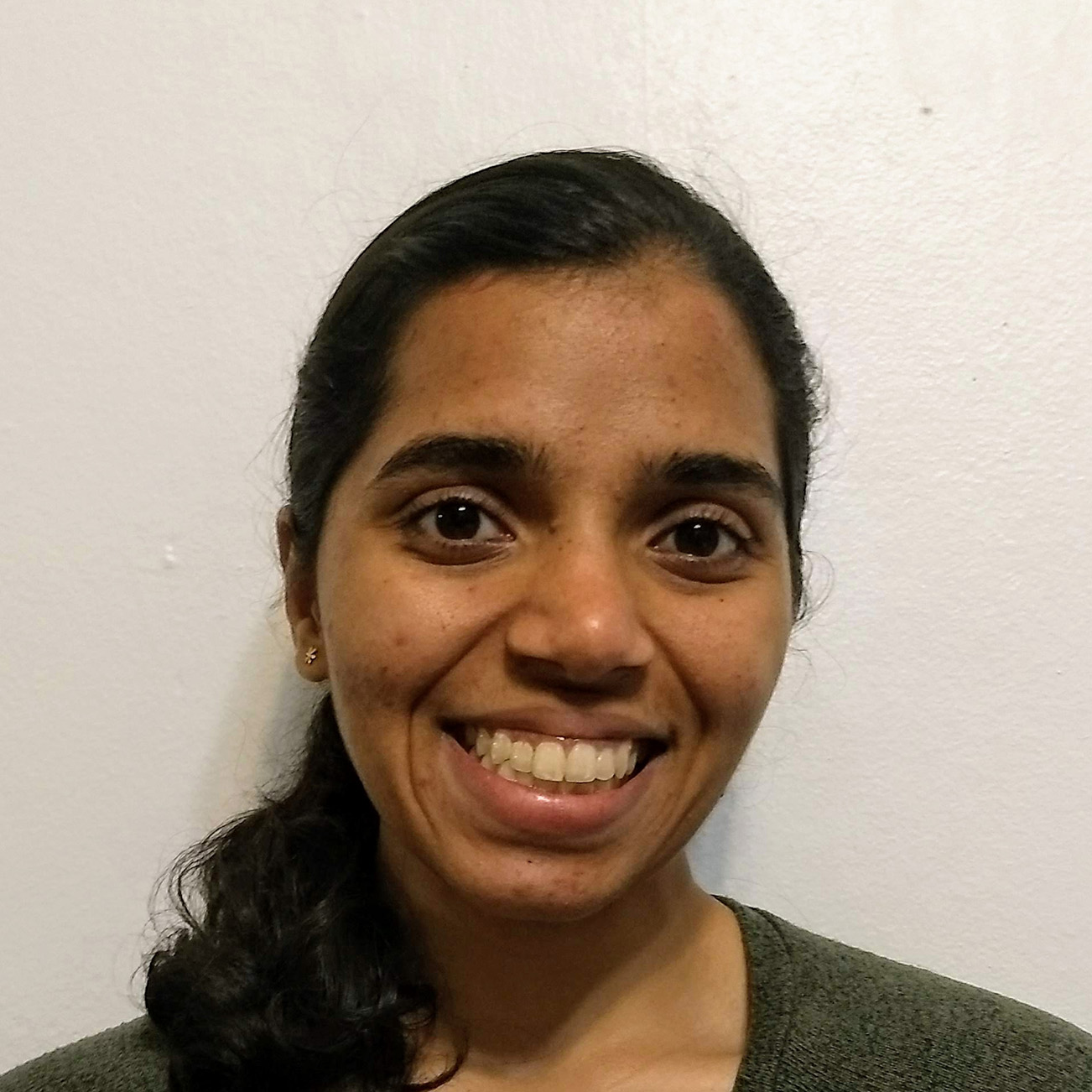
Vidya Chhabria

Oliver Kosut
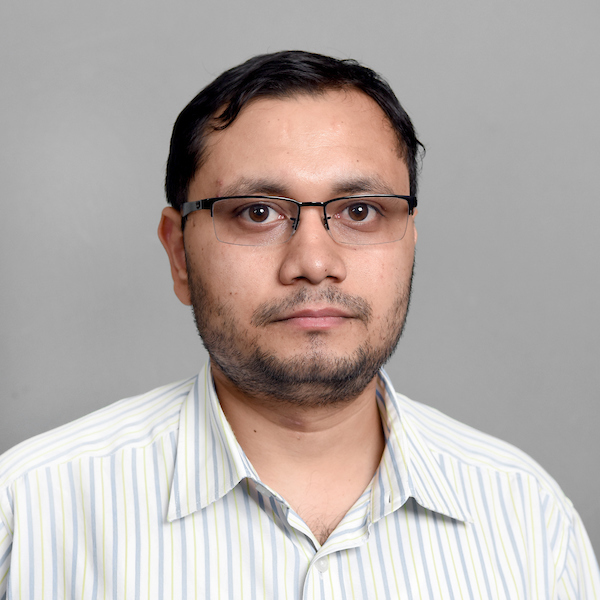
Anamitra Pal
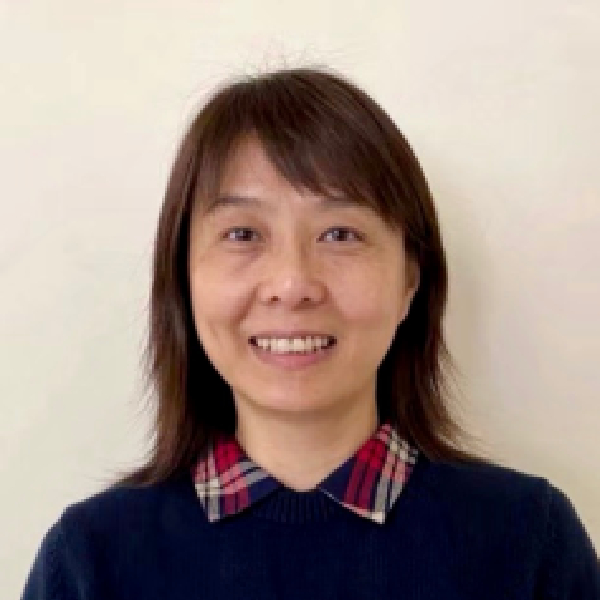
Pavan Turaga

Yanchao Zhang

Daniel Bliss

Gautam Dasarathy
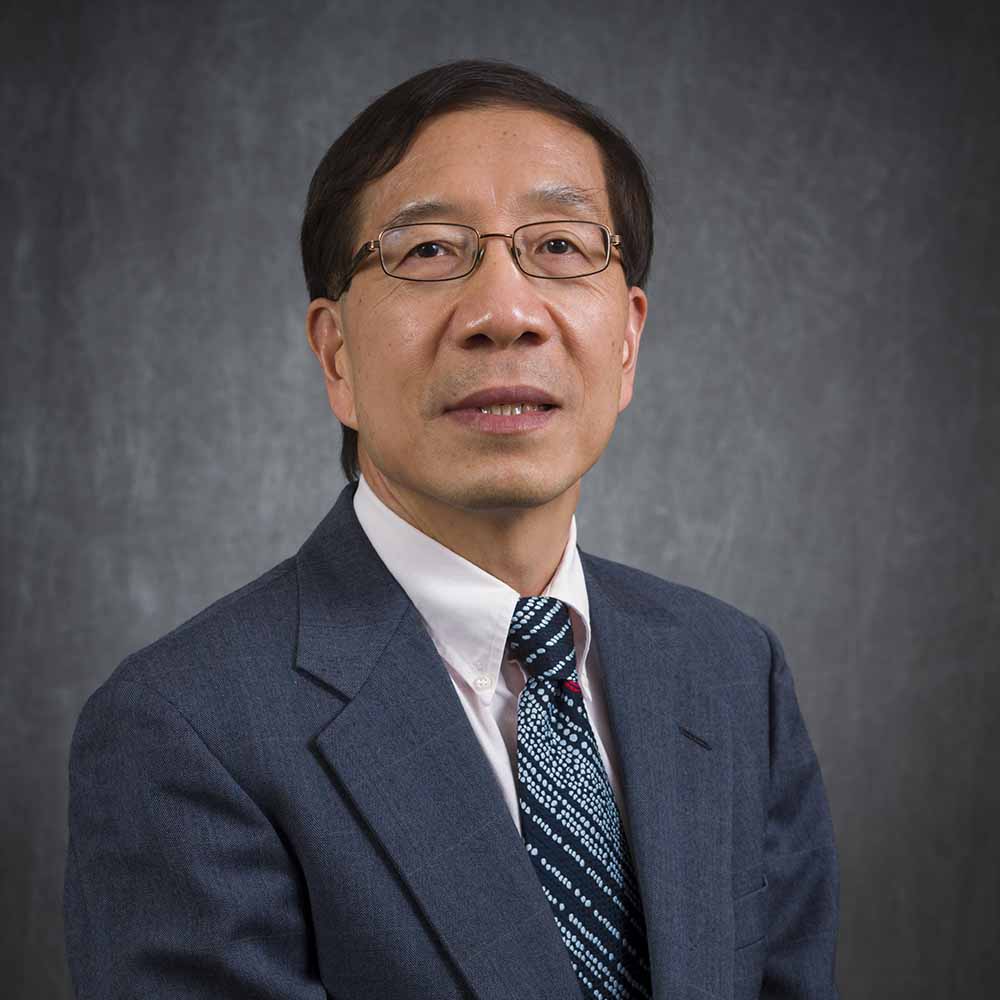
Ying-Cheng Lai
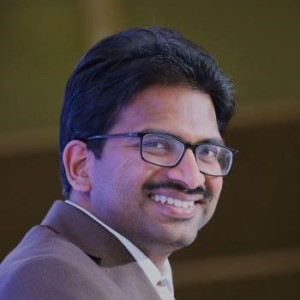
Amarsagar Reddy Ramapuram Matavalam
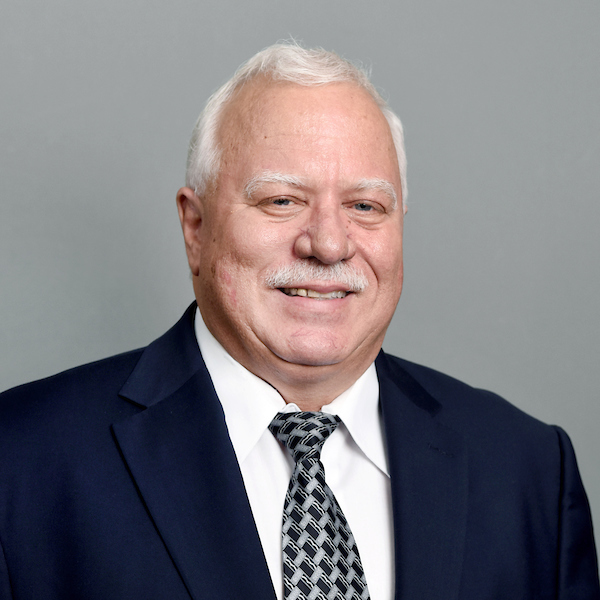
Andreas Spanias
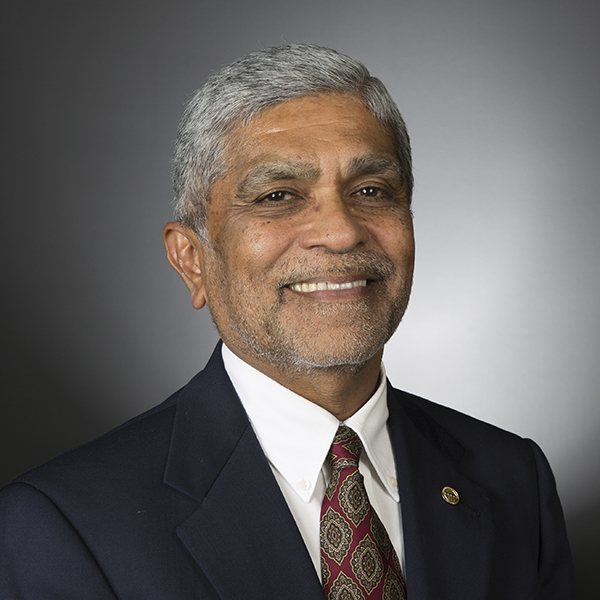
Vijay Vittal
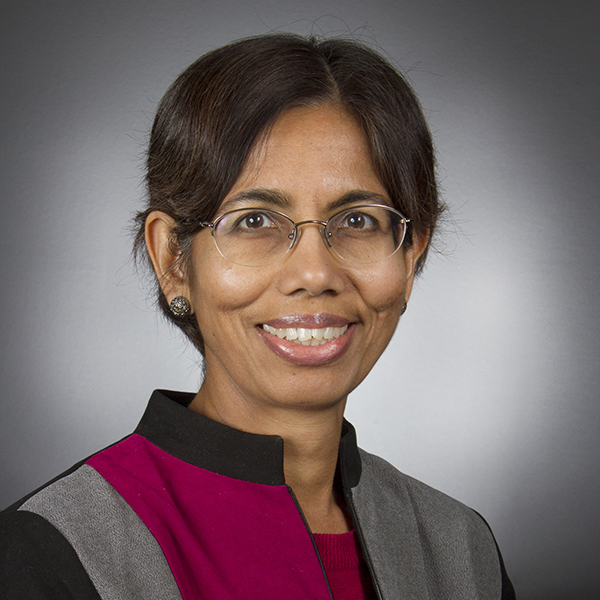
Chaitali Chakrabarti
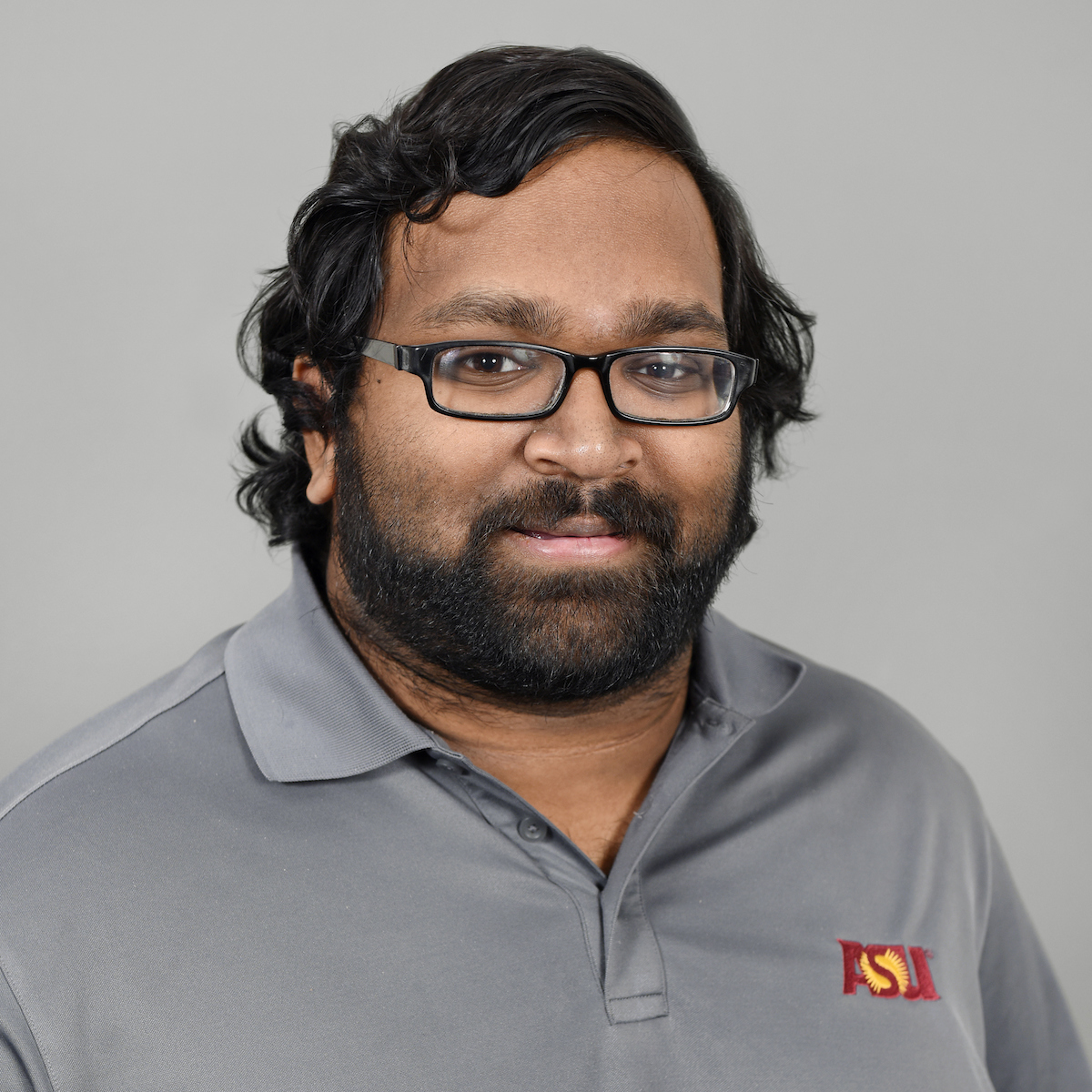
Suren Jayasuriya

Nicolo Michelusi

Martin Reisslein
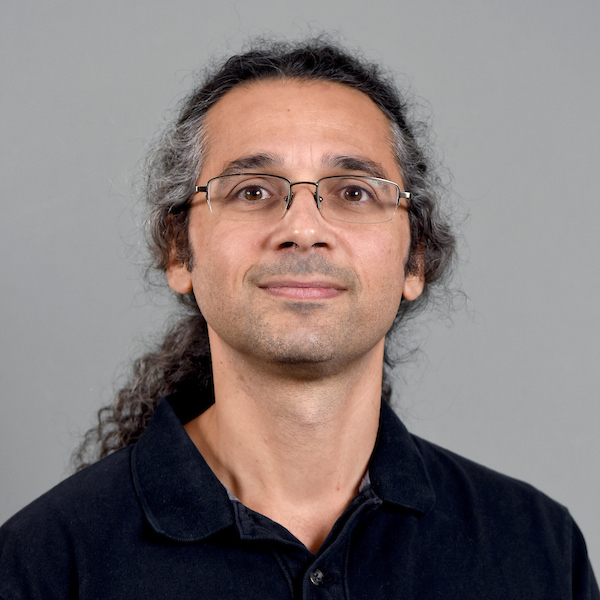
Cihan Tepedelenlioglu
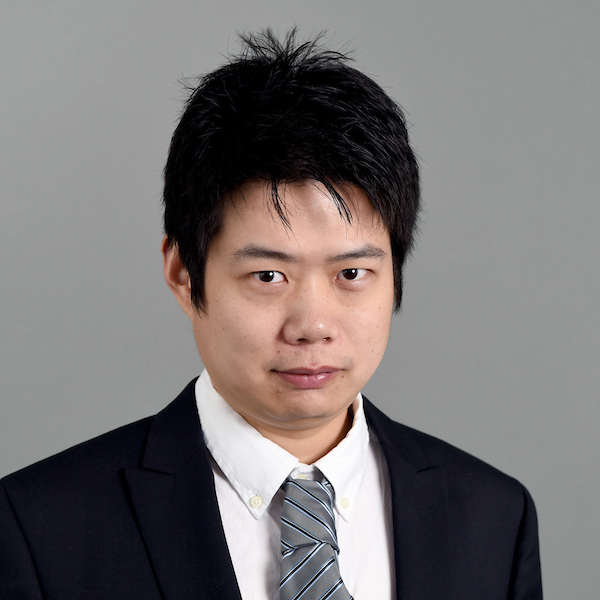
Electric vehicles
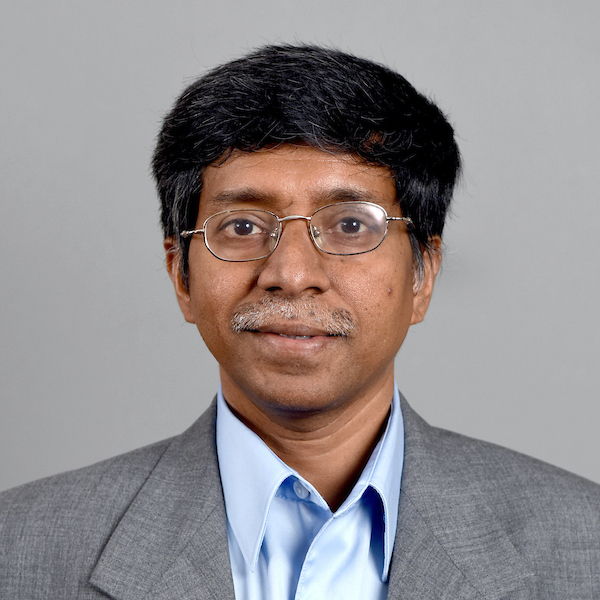
Raja Ayyanar
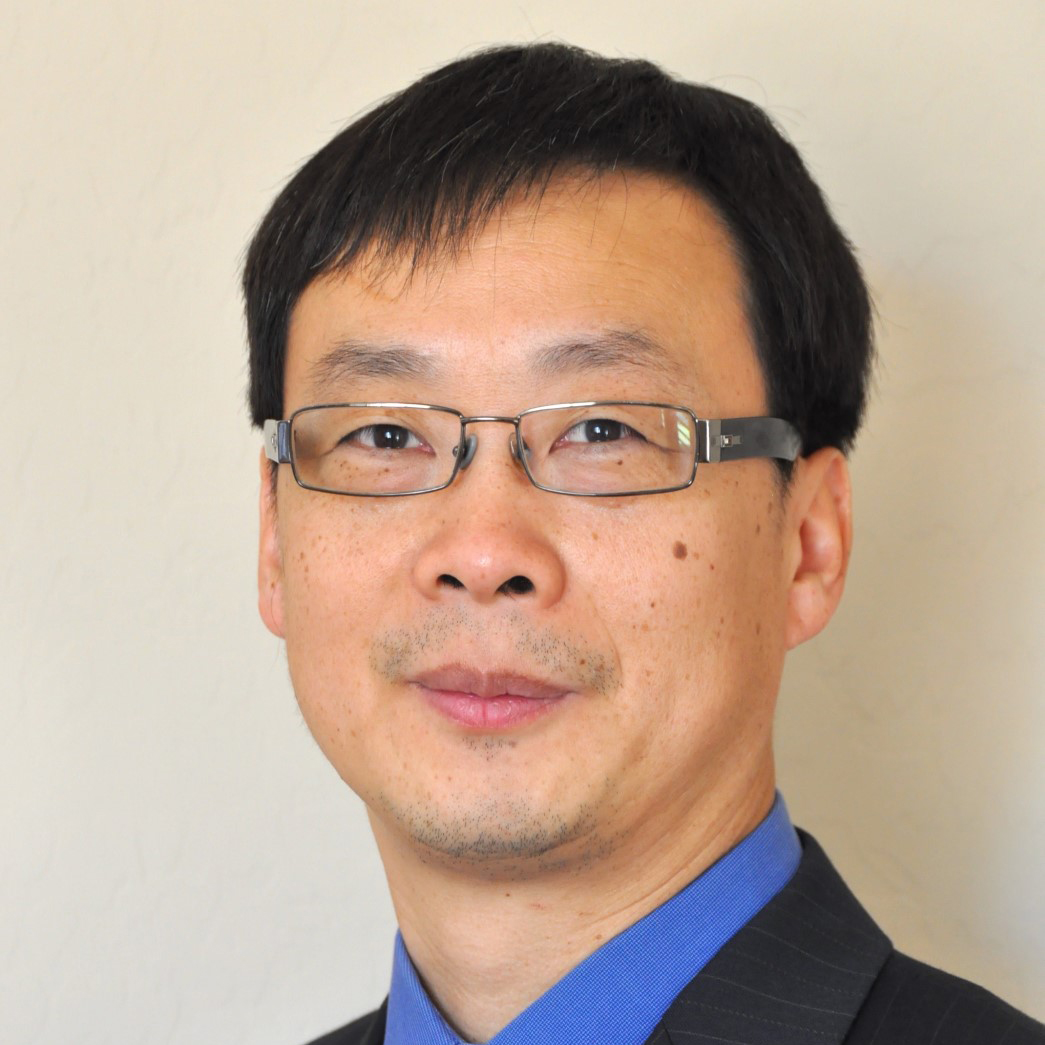
Mike Ranjram

Yong-Hang Zhang
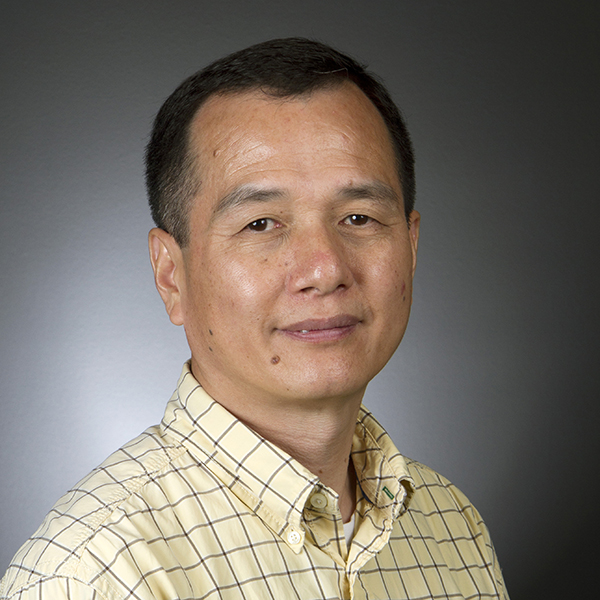
Electromagnetics and microwaves

James Aberle
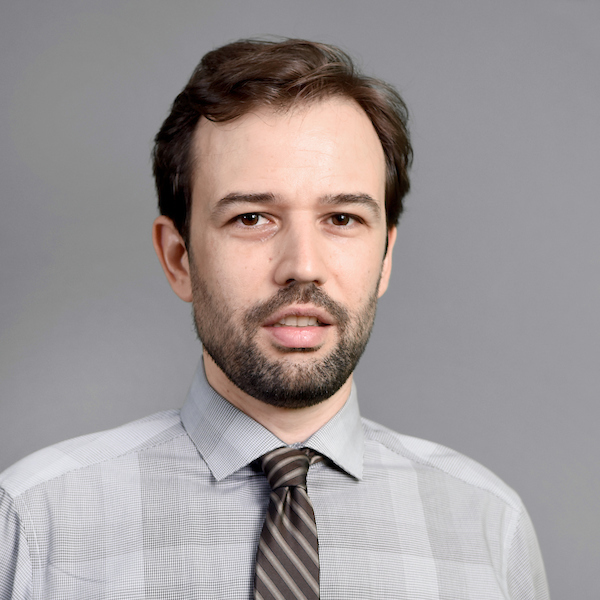
Georgios Trichopoulos

Rodolfo Diaz
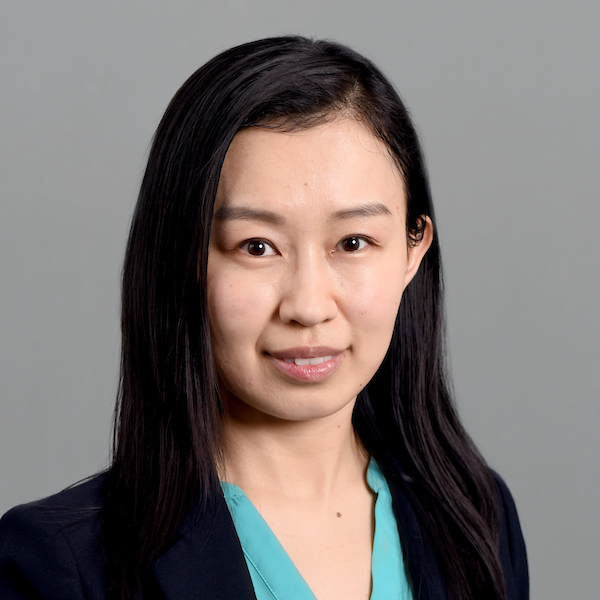
Seyedmohammadreza Imani
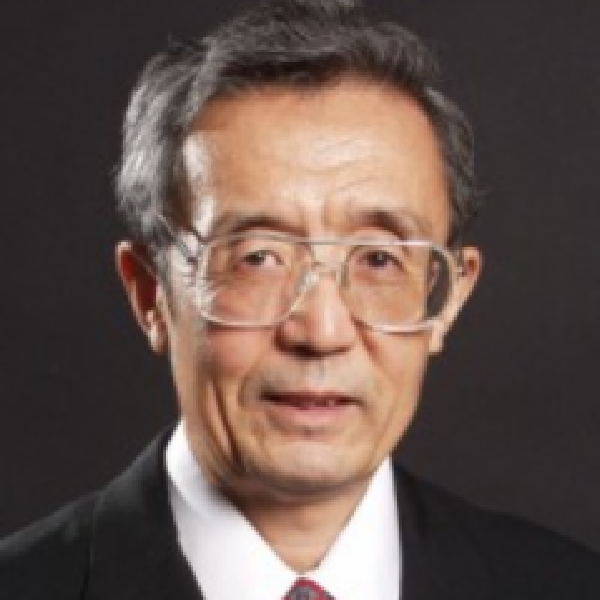
Electronic communications
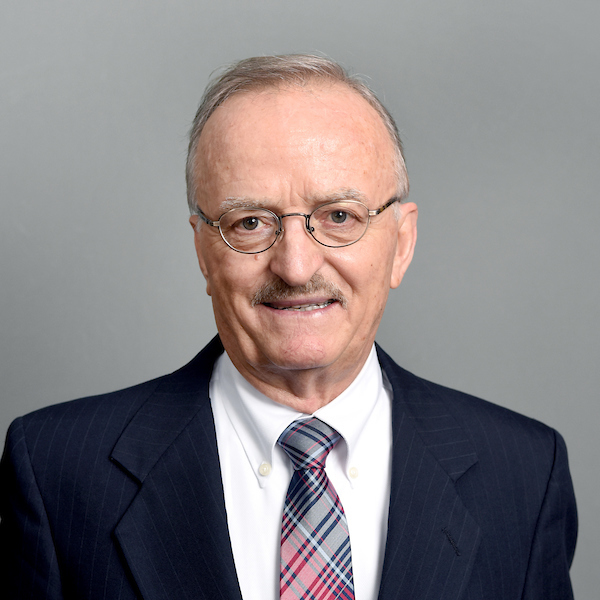
Constantine Balanis

Sayfe Kiaei

Lawrence Clark

Joseph Palais

Saeed Zeinolabedinzadeh
Electronic design automation
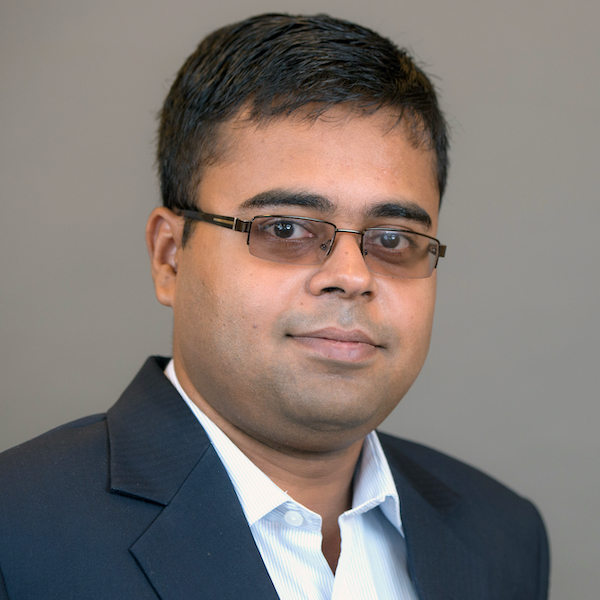
Arindam Sanyal
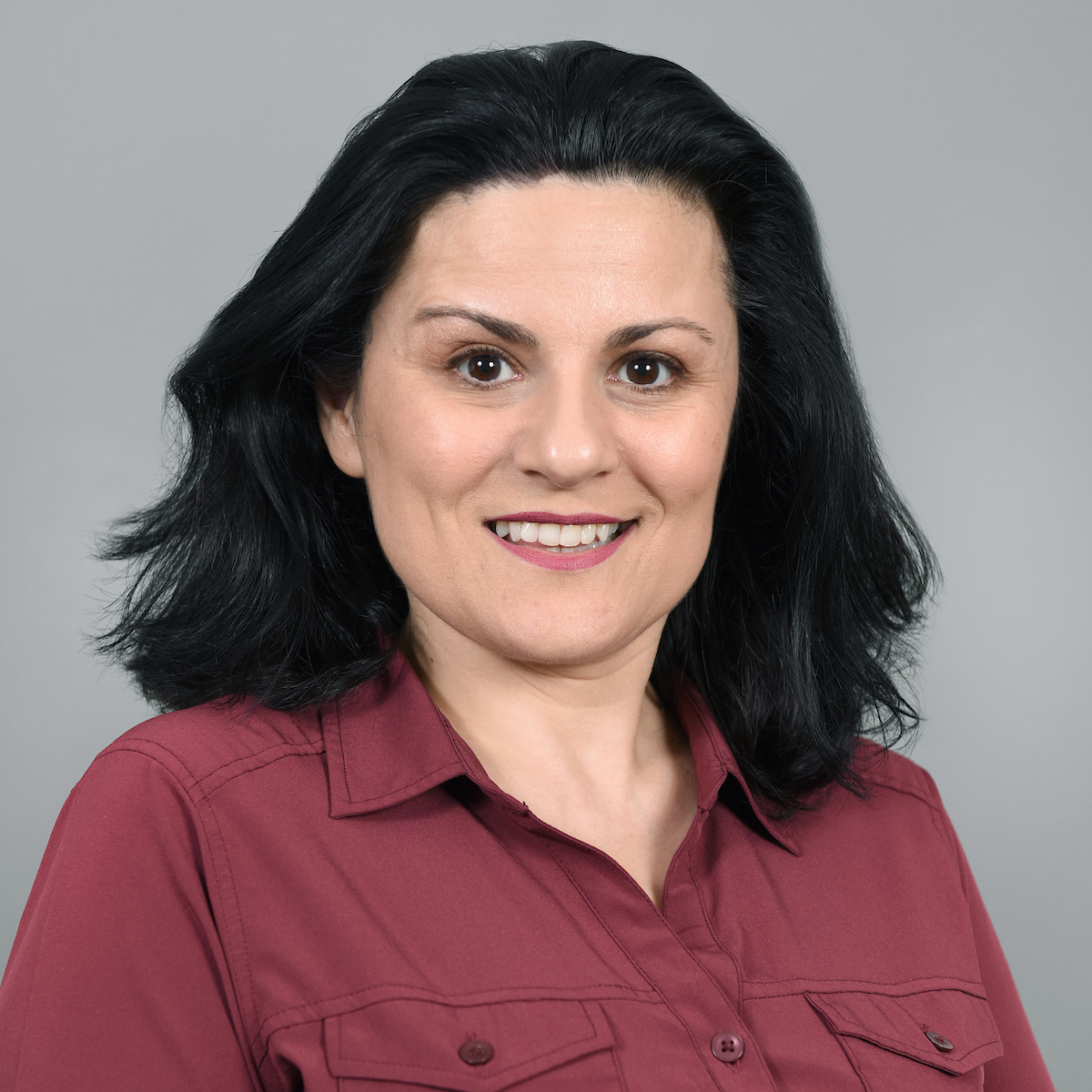
Information theory
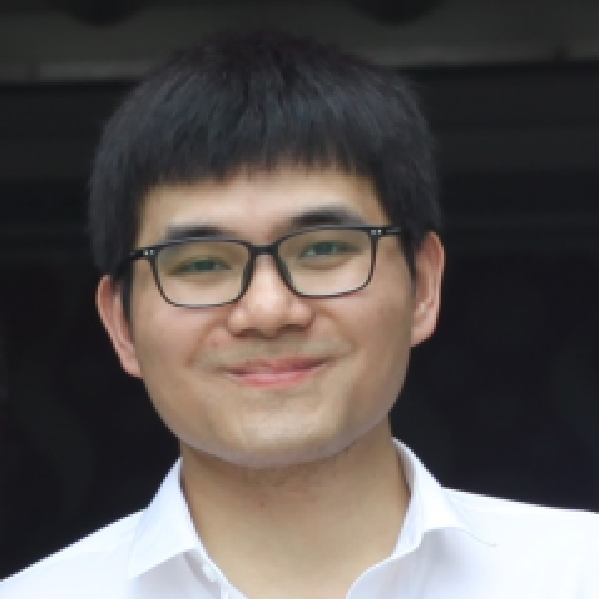
Duong Nguyen
Integrated circuits
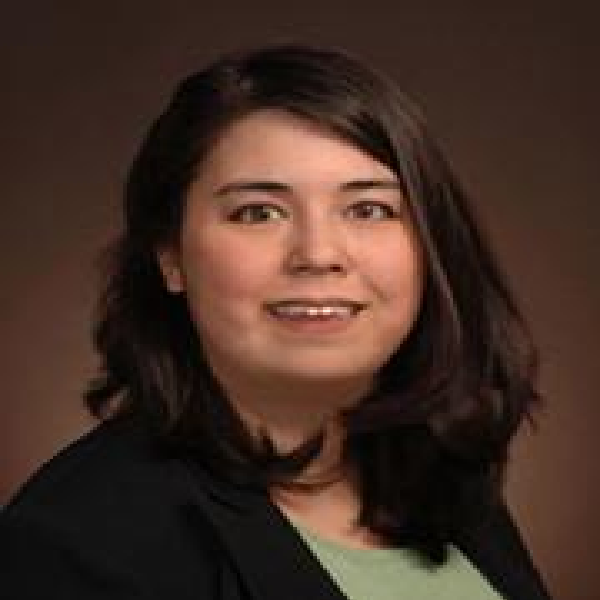
Jennifer Blain Christen

David Allee

David Ferry

Stephen Phillips

Bertan Bakkaloglu

Hugh Barnaby
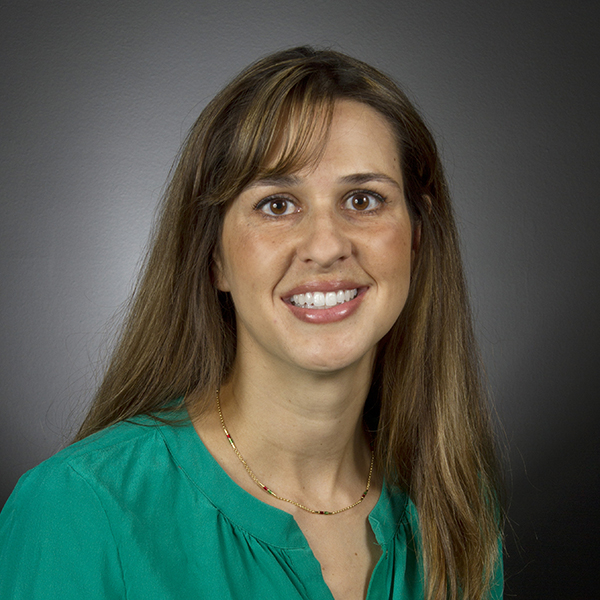
Jennifer Kitchen
Media and engineering

Robert LiKamWa
Nanoelectronics

Umberto Celano

Zachary Holman
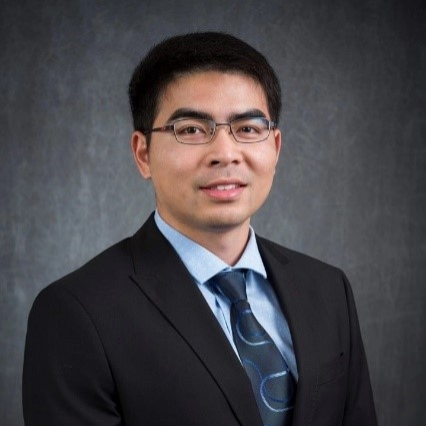
Houqiang Fu

Matthew Marinella

Stephen Goodnick

Ivan Sanchez Esqueda
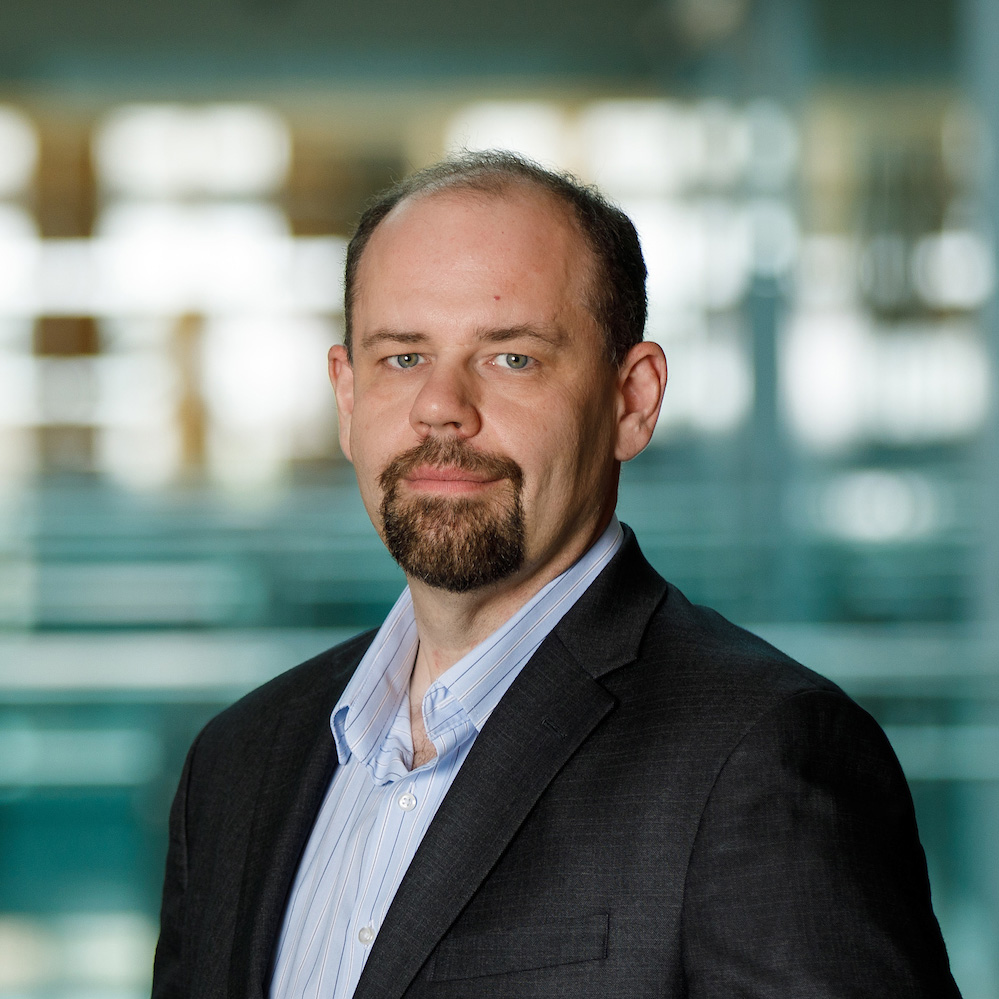
Josh Hihath
Power grid engineering and power electronics

Kory Hedman

Gerald Heydt
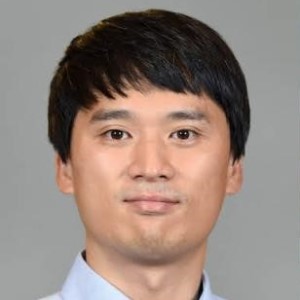
Michael Kozicki
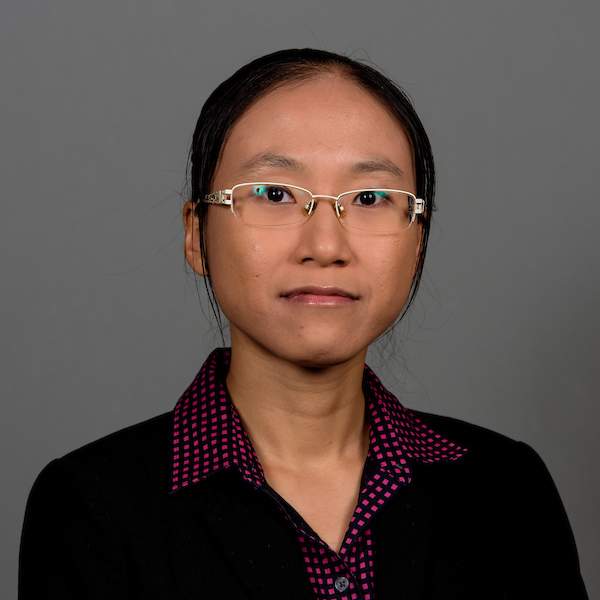
Mojdeh Khorsand Hedman
Quantum engineering

Christian Arenz
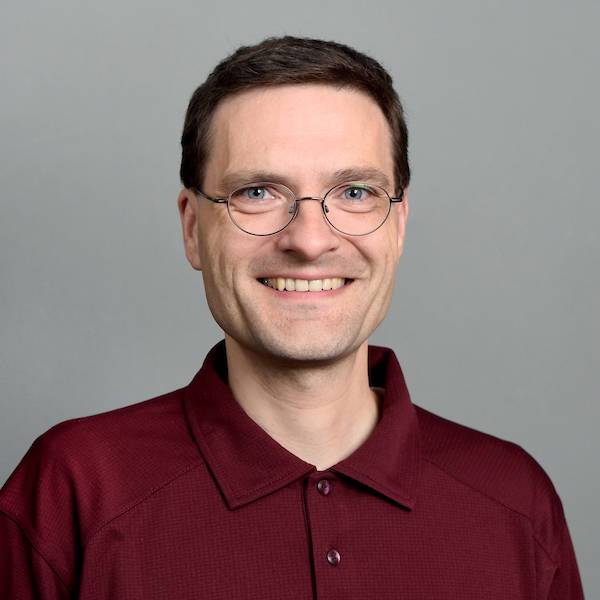
Michael Goryll

Radiation effects

Renewable energy, photovoltaics, photonics and optoelectronics

Mariana Bertoni

Nick Rolston
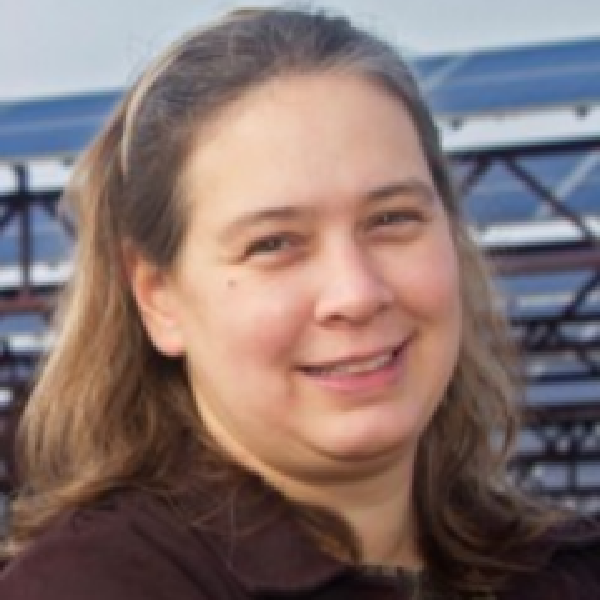
Christiana Honsberg

Dragica Vasileska

Richard King
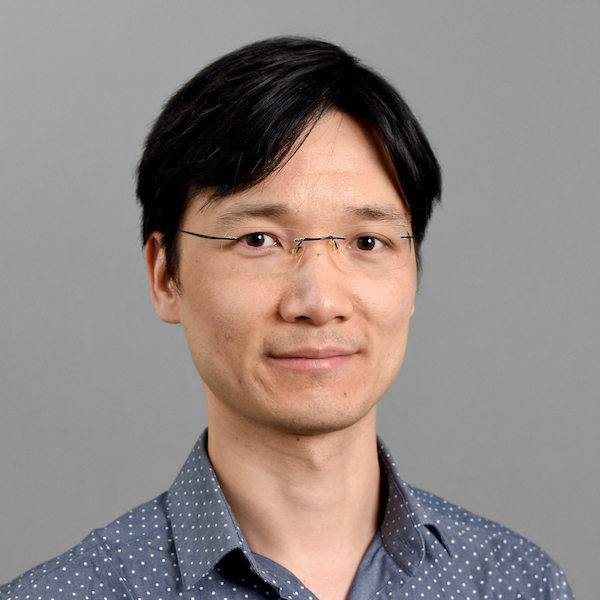
Semiconductors

Chris Bailey

Marco Saraniti
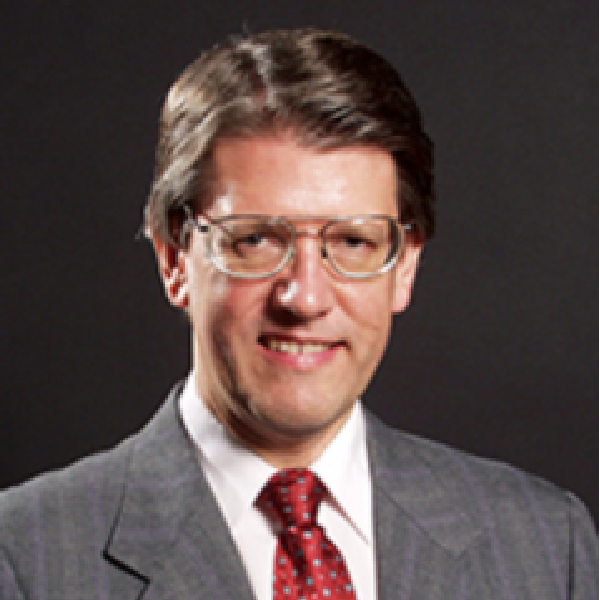
Brian Skromme

Nidhin Kurian Kalarickal

Trevor Thornton
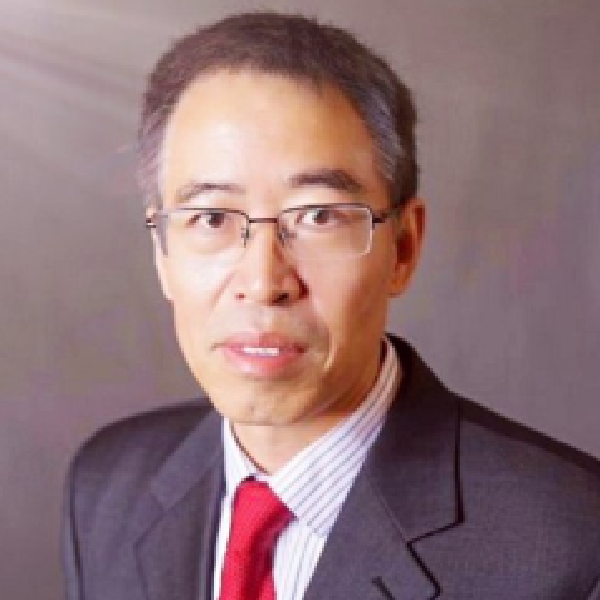
Zhaoyang Fan
Signal processing
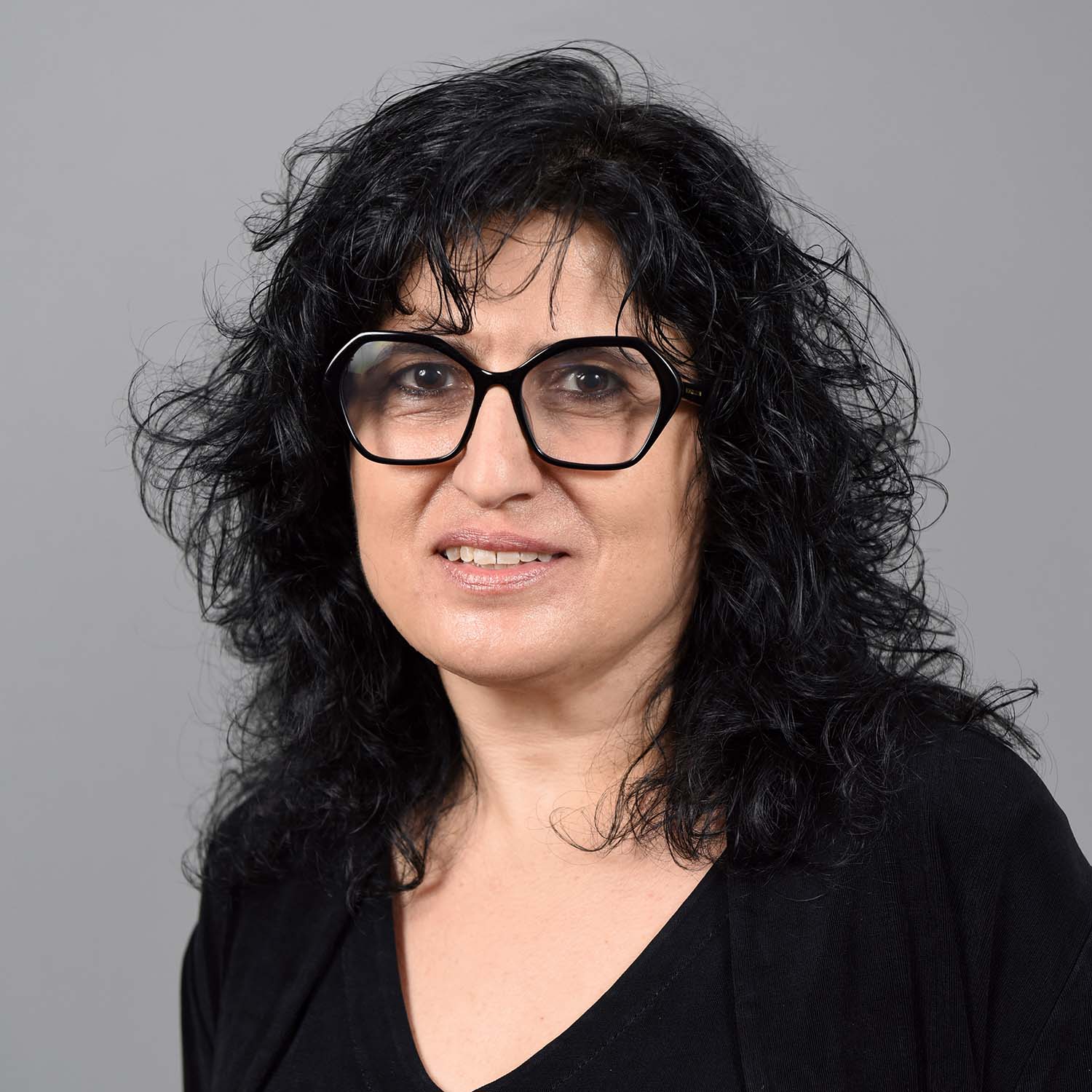
Antonia Papandreou-Suppappola
- Top Courses
- Online Degrees
- Find your New Career
- Join for Free

Master of Science in Electrical Engineering
Summer 1 2024 enrollment is now open!

University of Colorado Boulder
Accredited degree in 12–24 months
Earn the same diploma as students on campus by completing 30 credit hours

$20,010 USD total tuition
Flexible pay-as-you-go, per-course basis
Admission is performance-based
Complete a series of courses with an overall GPA of 3.0 or higher to gain admission.
100% online learning
Pre-recorded lectures, rigorous assignments, and connection with peers and course facilitators.
Accelerate your career and future-proof your skills with a top 5-ranked electrical engineering graduate program.
A rigorous and advanced curriculum in electrical engineering prepares you to design and build what interests you.
Elevate your career and prepare for the future with CU Boulder’s Master of Science in Electrical Engineering offering focus areas in embedded systems, power electronics, and photonics and optics. You will receive the same high-quality education and rigor as on-campus students. Taught by world-class faculty, the advanced curriculum combines theoretical foundations and practical experiences to help you take your career to the next level.
You don’t have to choose between graduate school, family, or your job. Designed for working professionals, this program consists of 8-week sessions, a stackable, flexible curriculum that lets you customize your learning experience, and performance-based admissions which drastically simplifies the admission process.
What's in this degree program?
Admissions information.
Questions? Email us at at [email protected] .
Important Dates
- April 22: Summer 1 Enrollment opens
- May 6: Summer 1 Classes start
- June 14: Summer 1 Enrollment closes
Upcoming Webinars
- Join us on June 26th at 12:30 MT to learn about CU Boulder performance-based admissions. Register here!
Get started today
Start your first course or request more information

Demonstrate you can master the work to gain admission.
Simply prove that you can do the work by completing a series of 3-4 for-credit courses called a “Pathway Specialization''with an overall GPA of 3.0 or higher to gain admission.
No need to worry about transcripts, letters of recommendation, GRE, or TOEFL scores.
You can choose one of five pathway specializations to get started: power electronics, embedding sensors, and motors, FPGA design for embedded systems, optical engineering, or semiconductor devices.
Pay-as-you-go tuition with short, eight-week sessions
- $20,010 USD tuition total $667 per credit hour, $20,010 for the full 30-credit master's degree. Pursue a high-quality education at a more affordable price.
- Pay-as-you-go tuition Only pay for the courses in your next session. You’re free to take a session off without charges or penalties.
- Bite-sized and stackable Courses are 0.6 - 1.2 credits each and contained within an 8-week session. Take individual courses that interest you and stack them to earn a graduate certificate (9 credits) or a master’s degree (30 credits).

Access a flexible curriculum created to empower you
You can take all 30 credits in this program at your own pace, and tailor your coursework to your career goals. Choose electrical engineering courses in the following focus areas of power electronics, embedded systems, and photonics and optics as well as areas from other CU Boulder graduate programs in computer science, engineering management, and data science.
Enrollment for Summer 1 2024 session is now open!
Summer 1 enrollment closes June 14
Enroll in a for-credit course today
Want to enroll in the full degree course now and earn transcriptable credit? You can enroll directly with the university as a non-degree student. Enroll in for-credit now
Enroll in course
1 . enroll in course.
Explore course options to find the courses that fit your needs
Pursue admission to degree
2 . pursue admission to degree.
Fill out a form or application on the university's website and pay to enroll
Get accepted and enroll
3 . get accepted and enroll.
Complete the course and earn transcriptable college credit which will count toward your degree learning if you are accepted into the full degree program¹
Transfer credit
4 . transfer credit.
You can apply to transfer the credits earned towards your degree program after admission to the program
¹Each university determines the number of pre-approved credits that may count towards the degree requirements according to institutional policies.
Make progress before you enroll
These courses are part of this degree program. If you are admitted and enroll in the degree program, your coursework can count toward your degree learning and your progress can transfer with you.
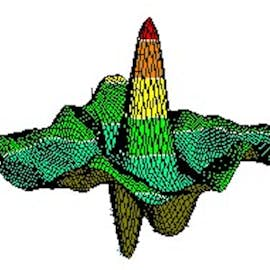
Quantum Mechanics for Engineers
Essential quantum mechanics tailored for engineer.
Intermediate · Specialization
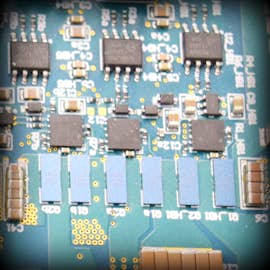
Modeling and Control of Power Electronics
Advance your career in power electronics.
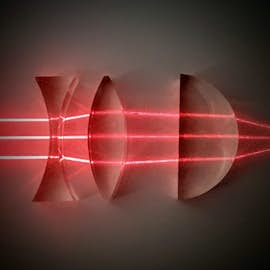
Optical Engineering
Master optical design.
Advanced · Specialization
Frequently asked questions
If i choose to earn a degree, what appears on the degree certificate is it the same degree as the on-campus program.
Yes. The diploma is a degree conferred for a Master of Science in Electrical Engineering, which is the same degree students receive in the on-campus program. There are no designations on official CU transcripts, diploma, or certificates, that this is an online program.
What career options will I have with this degree?
Graduates of the department’s Electrical Engineering programs have gone on to become engineers at Intel, Lockheed Martin, Tesla, and Google. Admitted degree-seeking students have access to Handshake, a comprehensive resource for all things career-related.
According to a recent survey from Deloitte, 82% of executives in the semiconductor industry reported a shortage of qualified technical candidates and 60% of companies report that electrical engineering jobs are some of the most difficult to fill. This program will prepare you to take on these in-demand engineering roles.
Is the program accredited?
Yes. The online MS-EE program falls under the University of Colorado Boulder’s overall accreditation by the Higher Learning Commission (HLC).
Can I try a course before enrolling in the degree?
Yes. Most for-credit courses have a non-credit version. You may upgrade from non-credit to for-credit at any time during the enrollment window. Previously completed assignments will be automatically applied to your for-credit experience.
If you are taking a non-credit course, you only pay the monthly Coursera subscription fee.
If you are taking a for-credit course, you only pay the $667 per credit hour tuition fee.
Note: If you started the non-credit course within the same month that you enroll in a for-credit course, you will not receive a refund for the monthly subscription associated with that non-credit course because the subscription fee is paid to Coursera, not to the University of Colorado Boulder.
Who can I contact if I have more questions?
Email us at [email protected].
How does the online format work?
Students can access course materials on the Coursera platform – lecture videos, quizzes, and readings – anytime and anywhere. Courses have been designed by CU Boulder’s faculty specifically for an online learning environment.
All exams will be administered by ProctorU, a proctoring service that allows students to complete exams or project-based assessments online.
Some for-credit courses may require you to purchase lab and/or development kits for more hands-on learning in addition to the tuition.
How long does it take to complete the program if I’m working while studying?
The MS-EE degree may take 24 months to complete. This may vary depending on your learning pace. A graduate certificate may take 6-9 months to complete. An individual course can take between 3-6 weeks to complete.
What is the time commitment required? How flexible is the schedule?
Each course may take 4-6 hours of work per week depending on your knowledge and skill.
You can learn at your own pace in a flexible and fully online format. Take only the coursework you need to build credentials that will advance your career, from courses, to graduate certificates, to a full master’s degree.
How many credits are needed to complete the program?
30 credits are required to earn the Master of Science in Electrical Engineering degree. The 30 credit hours includes a pathway specialization with a cumulative GPA of at least 3.00 for all for-credit courses taken to date.
How many courses can students take at a time?
You can take as many courses as you want at the same time. You must complete all for-credit coursework and exams by the last day of each session. We recommend that you start with one course and decide from there if it’s feasible to take more in the same 8-week session.
Will there be a graduation ceremony?
Yes. When you successfully complete the online MS-EE degree, you may come to campus to participate in the graduation ceremony.
Can I switch between online and on-campus programs?
No. You cannot switch between online and on-campus programs.
Do the same faculty teach online and on-campus courses?
Yes. The same world-class electrical, computer, and energy engineering faculty at CU Boulder teach both online and on-campus courses.
Are there online office hours with instructors?
Yes. There are weekly online office hours where you can interact with course facilitators (similar to a teaching assistant) and ask questions about the course material.
Are there networking opportunities to interact with fellow students?
Yes. The current student Slack channel and discussion forums are ways to connect and network.
Are there career services available for online students?
Yes. Admitted degree-seeking students have access to Handshake , a comprehensive resource for all things career-related.
How do I enroll?
Admission is performance-based. To get started, complete the enrollment form , indicate you want to earn the master’s degree (if applicable), select the course, and pay tuition.
Simply complete a series of courses called a “Pathway Specialization''with an overall GPA of 3.0 or higher to gain admission to the master’s degree program.
Can I transfer credits from other institutions into the program?
No. The online MS-EE program does not accept transfer credits from other institutions.
Can I take courses from CU Boulder’s MS-DS, and ME-EM on Coursera and apply it to the MS-EE on Coursera?
Up to 9 credits offered by CU Boulder's MS-DS or ME-EM on Coursera programs may be applied toward the total 30-credit hours required to complete the MS-EE degree. Courses must be graduate level and meet all applicable academic standards and may not be double counted toward two credentials of the same level.
What types of scholarships and financial aid are available?
There are currently no scholarships available.
What is the program cost, and what is the payment schedule? Do I need to pay for the entire degree upfront?
Tuition is $667 per credit hour and is assessed on a pay-as-you-go, per-course basis. It costs $20,010 for the full 30-credit master’s degree.
Can I roll over my tuition payment to the next session?
No, tuition payments cannot be rolled over to future sessions.
What are the prerequisites and application requirements?
There are no formally enforced prerequisites. Each course may recommend a variety of prerequisite skills and knowledge. To learn more about each subject and prepare yourself for the course, our faculty recommends these readings .
Do I need an electrical engineering background? Is work experience required?
While relevant background and work experience can help you succeed in the program, it is not required.
If you are unsure whether you have the background to succeed, we encourage students to enroll in the non-credit course first. This will allow you to test your abilities and practice the skills required to pass the course and all assessments once you upgrade to a for-credit experience.
More questions?
- Have any questions?
- +91-9176966446
- [email protected]

- PhD Topic Selection
- Problem Identification
- Research Proposal
- Pilot Study
- PhD. Dissertation (Full)
- Ph.D. Dissertation (Part)
- Phd-Consultation
- PhD Coursework Abstract Writing Help
- Interim-Report
- Synopsis Preparation
- Power Point
- References Collection
- Conceptual Framework
- Theoretical Framework
- Annotated Bibliography
- Theorem Development
- Gap Identification
- Research Design
- Sample Size
- Power Calculation
- Qualitative Methodology
- Quantitative Methodology
- Primary Data Collection
- Secondary Data Collection
- Quantitative Statistics
- Textual / Content Analysis
- Biostatistics
- Econometrics
- Big Data Analytics
- Software Programming
- Computer Programming
- Translation
- Transcription
- Plagiarism Correction
- Formatting & Referencing
- Manuscript Rewriting
- Manuscript Copyediting
- Manuscript Peer Reviewing
- Manuscript Statistics
- PhD Manuscript Formatting Referencing
- Manuscript Plagiarism Correction
- Manuscript Editorial Comment Help
- Conference & Seminar Paper
- Writing for a journal
- Academic Statistics
- Journal Manuscript Writing
- Research Methodology
- PhD Animation Services
- Academic Law Writing
- Business & Management
- Engineering & Technology
- Arts & Humanities
- Economics & Finance Academic
- Biological & Life Science
- Medicine & Healthcare
- Computer Science & Information
- HIRE A RESEARCH ASSISTANT
Research topics in electronics and electrical engineering
Electronics and electrical engineering are the studies of harnessing electricity and the electromagnetic spectrum to enhance the lives of human beings. It is exciting and futuristic to think about significant technological advancements and electronic technology breakthroughs like smart grid systems, electronic vehicles, sustainable power consumption, wireless wearables, robotics, artificial intelligence (AI), AR (Augmented Reality), VR (Virtual Reality), and the Industrial Internet of Things (IIoT). Advanced developments in technology for electronics research and development contribute to the efficient use of energy for our daily needs. PhD Assistance may assist you in selecting the latest topic for study in electronics and electrical engineering.
Here are some of the topic research topics in electronics and electrical engineering.
Electrical engineering topics include the following:
- Study on the use of a modified PNN classifier with SMO optimization techniques for diagnosing the severity of skin cancer conditions
- A study on battery integrated multiple input DC-DC boost converter
- A study on the impact of Evaluation of compact fluorescent lights in a 50 Hz electrical network
- A Systematic Evaluation of deep neural network-based dynamic modelling method for AC power electronic systems:
- A Review of 2D van der Waals Devices Using Electronic Modulation of Semimetallic Electrode
- A Study on frequency stability of hybrid industrial microgrids using optimal fractional sliding mode
- Review on Latent Features of Neural Network Design for Power Electronic Systems Using Impedance Modelling
- Understanding Effective Power Electronics Using Circuit Simulation
- First-principles calculations of phosphorus-doped SnO2 transparent conducting oxide: Structural, electronic, and electrical properties
- Adaptive position control of a brush-based DC motor
- Implementation of an A-Source DC–DC Boost Combination Phase-Shifting Full-Bridge Converter for Electric Car Rapid Charging Applications
- PM machines with high power and high speed.
- Series connected super-capacitor and li-ion capacitor cells: active voltage equalisation.
- Design choice in the direct drive in-wheel motors.
- Reluctance Motors.
- Nanoelectronics.
- Atomic layer interface engineering.
- Using photovoltaics, graphene, and silicon carbide.
- Piezoelectrics and ferroelectrics.
- Studying behaviour thru computational modelling.
- Computation research in new technologies, materials.
- Power electronics tools and equipment.
- Electrical motors and their redesigning.
- Energy networks and their mathematical foundations.
- Computer-aided design for electrical engineering.
- Smart grid monitoring.
- Soft magnetic composites.
- Electric vehicle motors and gearbox.
- Distributed generation systems: loss detection of grid events via pattern identification.
- Challenges of autonomous power systems.
- Extra-functionality devices: advanced technology modelling.
- Switched reluctance motors.
- Electric vehicles and health monitoring of power semiconductor modules.
- Cost Functions for Efficient Electrics Vehicle Drive Systems.
- Wind Turbine Generators: 3D temperature mapping.
- DFIG Machines: improving energy efficiencies.
- Power electronics.
- Drives and controls.
- Power systems and energy storage.
- Hybrid electric aerospace.
- Renewable energy.
- Advanced propulsion science.
- Designing compressor motors.
- Motor design for aerospace—fault tolerant.
- Wind turbine energy technologies.
- Diagnosing green growth in India.
- HPVPS stages (high power virtual systems).
- Top speed motors and their topologies.
- Low cost effective trains.
- Low-cost virtual systems.
Need Guidance on how the topic selection would be, check our topic selection examples !
Also, to get assistance on thesis topics in dissertation topics in microbiology, dissertation topics in English literature, interior design thesis topics, physiotherapy research topics, llm dissertation topics, sociology dissertation topics, criminal law dissertation topics, political science dissertation topics, dissertation topics in pediatrics, microbiology thesis topics, thesis topics in psychiatry, cardiology thesis topics, dissertation topics in education, dissertation topics for M.SC microbiology, dissertation topics in education, geography dissertation topics, interior design dissertation topics, pharmacology thesis topics, Avail our Ph.D topic selection support service today!
Need help with your Dissertation Service?
Take a look at topic selection service:
Click Here!
Quick Contact
Dissertation.

Our Dissertation Writing service can help with everything from full dissertations to individual chapters.

Literature Review

Referencing Tools
- Harvard Referencing Tool
- Vancouver Referencing Tool
- APA Referencing Tool

- Privacy Overview
- Strictly Necessary Cookies
- 3rd Party Cookies
This website uses cookies so that we can provide you with the best user experience possible. Cookie information is stored in your browser and performs functions such as recognising you when you return to our website and helping our team to understand which sections of the website you find most interesting and useful.
Strictly Necessary Cookie should be enabled at all times so that we can save your preferences for cookie settings.
If you disable this cookie, we will not be able to save your preferences. This means that every time you visit this website you will need to enable or disable cookies again.
This website uses Google Analytics to collect anonymous information such as the number of visitors to the site, and the most popular pages.
Keeping this cookie enabled helps us to improve our website.
Please enable Strictly Necessary Cookies first so that we can save your preferences!

- USF Research
- USF Libraries
Digital Commons @ USF > College of Engineering > Electrical Engineering > Theses and Dissertations
Electrical Engineering Theses and Dissertations
Theses/dissertations from 2023 2023.
On the Performance Enhancement of Beamspace MIMO and Non-orthogonal Multiple Access for Future Cellular Networks , Sinasi Cetinkaya
Enhancing Smart Grid Security and Reliability through Graph Signal Processing and Energy Data Analytics , Md Abul Hasnat
Fabric-Based Organic Electrochemical Transistor Towards Wearable pH Sensing Electronics , Nestor Osvaldo Marquez Rios
Novel Systems Engineering Framework Analysis of Photovoltaic Models and Equations , Peter R. Michael
Deep Learning Enhancement and Privacy-Preserving Deep Learning: A Data-Centric Approach , Hung S. Nguyen
Cyber-Physical Multi-Robot Systems in a Smart Factory: A Networked AI Agents Approach , Zixiang Nie
Multiple Access Techniques Enabling Diverse Wireless Services , Mehmet Mert Şahin
Deep Reinforcement Learning Based Optimization Techniques for Energy and Socioeconomic Systems , Salman Sadiq Shuvo
Process Automation and Robotics Engineering for Industrial Processing Systems , Drake Stimpson
Theses/Dissertations from 2022 2022
Stability and Interaction Analysis of Inverter-Based Resources in Power Grids , Li Bao
Healthcare IoT System and Network Design , Halil Ibrahim Deniz
Video Anomaly Detection: Practical Challenges for Learning Algorithms , Keval Doshi
Data-Driven State Estimation for Improved Wide Area Situational Awareness in Smart Grids , Md Jakir Hossain
Deep Learning and Feature Engineering for Human Activity Recognition: Exploiting Novel Rich Learning Representations and Sub-transfer Learning to Boost Practical Performance , Ria Kanjilal
Assistive Technologies for Independent Navigation for People with Blindness , Howard Kaplan
Diagnosis of Neurodegenerative Diseases Using Higher Order Statistical Analysis of Electroencephalography Signals , Seyed Alireza Khoshnevis
Accelerating Multiparametric MRI for Adaptive Radiotherapy , Shraddha Pandey
A Model-Based Fault Diagnosis in Dynamic Systems via Asynchronous Motors System Identification or Testing, and Control Engineering Observers , Kenelt Pierre
Improving Wireless Networking from the Learning and Security Perspectives , Zhe Qu
Improving Robustness of Deep Learning Models and Privacy-Preserving Image Denoising , Hadi Zanddizari
Theses/Dissertations from 2021 2021
A Method for Compact Representation of Heterogenous and Multivariate Time Series for Robust Classification and Visualization , Alla Abdella
Dynamical System and Parameter Identification for Power Systems , Abdullah Abdulrahman Alassaf
Phasor Domain Modeling of Type-III Wind Turbines , Mohammed Alqahtani
An Automated Framework for Connected Speech Evaluation of Neurodegenerative Disease: A Case Study in Parkinson's Disease , Sai Bharadwaj Appakaya
Investigation of CoO ATO for Solar Cells and Infrared Sheaths , Manopriya Devisetty Subramanyam
Thermal Management of Lithium-ion Batteries Using Supercapacitors , Sanskruta Dhotre
Effect of Se Composition in CdSe 1-X T eX /CdTe Solar Cells , Sheikh Tawsif Elahi
Microencapsulation of Thermochromic Materials for Thermal Storage and Energy Efficiency of Buildings , Abdullatif Hakami
Piezoelectrically-Transduced ZnO-on-Diamond Resonators with Enhanced Signal-to-Noise Ratio and Power-handling Capability for Sensing and Wireless Communication Applications , Xu Han
Preparation and Characterization of Single Layer Conducting Polymer Electrochromic and Touchchromic Devices , Sharan Kumar Indrakar
Security Attacks and Defenses in Cyber Systems: From an AI Perspective , Zhengping Luo
Power System Optimization Methods: Convex Relaxation and Benders Decomposition , Minyue Ma
Metal Oxide Sensor Array Test Bed Prototype for Diagnostic Breath Analysis , Tiffany C. Miller
Packaging of Active RF Beamforming IC Utilizing Additive Manufacturing , Ryan Murphy
Adaptive Network Slicing in Fog RAN for IoT with Heterogeneous Latency and Computing Requirements: A Deep Reinforcement Learning Approach , Almuthanna Nassar
Development of a Bipolar Radiofrequency Ablation Device for Renal Denervation , Noel Perez
Copper Electrodeposition Assisted by Hydrogen Evolution for Wearable Electronics: Interconnections and Fiber Metallization , Sabrina M. Rosa Ortiz
Theory and Application of Dielectric Rod Antennas and Arrays , Gabriel Saffold
Advanced Organic Polymers for the Nanoscale Fabrication of Fiber-based Electronics Using the Electrospinning Technique , William Serrano Garcia
Transparent Planar Micro-Electrode Array for In-Vitro Electric Field Mediated Gene Delivery , Raj Himatlal Shah
High Speed Switching for Plasma Based Electroporation , Shivangi Sharma
Development of Small-Scale Power Supplies for Wearable Medical Diagnostic Devices , Donny Stiner
Novel Approach to Integrate CAN Based Vehicle Sensors with GPS Using Adaptive Filters to Improve Localization Precision in Connected Vehicles from a Systems Engineering Perspective , Abhijit Vasili
Modeling, Control and Analysis of Inverter-Based Generators in the Power Grids , Yangkun Xu
Fiber-Based Supercapacitor for Wearable Electronics , Rohit Lallansingh Yadav
Modeling, Identification, and Stability Analysis of Inverter-Based Resources Integrated Systems , Miao Zhang
Data-Oriented Approaches towards Mobile, Network and Secure Systems , Shangqing Zhao
Strategies in Botnet Detection and Privacy Preserving Machine Learning , Di Zhuang
Theses/Dissertations from 2020 2020
Architecture design and optimization of Edge-enabled Smart Grids , Adetola B. Adeniran
Multimodal Data Fusion and Attack Detection in Recommender Systems , Mehmet Aktukmak
Artificial Intelligence Towards the Wireless Channel Modeling Communications in 5G , Saud Mobark Aldossari
Enhancement of 5G Network Performance Using Non-Orthogonal Multiple Access (NOMA) , Faeik Tayseer Al Rabee
Investigation of Machine Learning Algorithms for Intrusion Detection System in Cybersecurity , Mohmmed Alrowaily
Comprehensive Optimization Models for Voltage Regulation in PV-rich Multi-phase Distribution Systems , Ibrahim Alsaleh
Design and Implementation of Solid/Solid Phononic Crystal Structures in Lateral Extensional Thin-film Piezoelectric on Silicon Micromechanical Resonators , Abdulrahman Alsolami
Analysis of Computational Modeling Methods as Applied to Single-Crystal Organohalide Perovskites , Jon M. Bebeau
Development of a Monolithic Implantable Neural Interface from Cubic Silicon Carbide and Evaluation of Its MRI Compatibility , Mohammad Beygi
Performance Enhancement Techniques for Next-Generation Multi-Service Communication and Medical Cyber-Physical Systems , Ali Fatih Demir
Microfluidically Reconfigurable Millimeter-Wave Switches, Antenna Arrays and Filters with Fast-Actuation Using Movable Metallized Plates and Integrated Actuation , Enrique J. Gonzalez Carvajal
Multilayered Transmission Lines, Antennas and Phased Arrays with Structurally Integrated Control Electronics Using Additive Manufacturing , Merve Kacar
Cost Efficient Algorithms and Methods for Spectral Efficiency in Future Radio Access , Murat Karabacak
Design of DeLRo Autonomous Delivery Robot and AI Based Localization , Tolga Karakurt
Theory, Fabrication, and Characterization of Perovskite Phototransistor , Fatemeh Khorramshahi
Modeling and Control of Renewable Energy in Grids and Microgrids , Yin Li
Next-Generation Self-Organizing Communications Networks: Synergistic Application of Machine Learning and User-Centric Technologies , Chetana V. Murudkar
Reliability Analysis of Power Grids and its Interdependent Infrastructures: An Interaction Graph-based Approach , Upama Nakarmi
Algorithms Enabling Communications in the Presence of Adjacent Channel Interference , Berker Peköz
Electrospun Nanofibrous Membrane Based Glucose Sensor with Integration of Potentiostat Circuit , Kavyashree Puttananjegowda
Service Provisioning and Security Design in Software Defined Networks , Mohamed Rahouti
Reading and Programming Spintronic Devices for Biomimetic Applications and Fault-tolerant Memory Design , Kawsher Ahmed Roxy
Implementation of SR Flip-Flop Based PUF on FPGA for Hardware Security , Sai Praneeth Sagi
Trauma Detection Personal Locator Beacon System , Sakshi Sharma
Network Function Virtualization In Fog Networks , Nazli Siasi
Socially Aware Network User Mobility Analysis and Novel Approaches on Aerial Mobile Wireless Network Deployment , Ismail Uluturk
Spatial Stereo Sound Source Localization Optimization and CNN Based Source Feature Recognition , Cong Xu
Hybrid RF Acoustic Resonators and Arrays with Integrated Capacitive and Piezoelectric Transducers , Adnan Zaman
Theses/Dissertations from 2019 2019
Fabrication and Characterization of Electrical Energy Storage and Harvesting Energy Devices Using Gel Electrolytes , Belqasem Aljafari
Phasor Measurement Unit Data-Based Steady State and Dynamic Model Estimation , Anas Almunif
Cross Layer-based Intrusion Detection System Using Machine Learning for MANETs , Amar Amouri
Power Conditioning System on a Micro-Grid System , Tamoghna Banerjee
Thermal Response in a Field Oriented Controlled Three-phase Induction Motor , Niyem Mawenbe Bawana
Design and Development of a Wireless EEG System Integrated into a Football Helmet , Akshay V. Dunakhe
Machine Learning, Game Theory Algorithms, and Medium Access Protocols for 5G and Internet-of-Thing (IoT) Networks , Mohamed Elkourdi
Improving Stability by Enhancing Critical Fault Clearing Time , Ammara M. Ghani
RF Power Circuit Designs for Wi-Fi Applications , Krishna Manasa Gollapudi
Enhancing Secrecy and Capacity of Wireless Systems Using Directive Communications , Mohammed A. Hafez
Statistical Anomaly Detection and Mitigation of Cyber Attacks for Intelligent Transportation Systems , Ammar Haydari
Absorber and Window Study – CdSexTe1-x/CdTe Thin Film Solar Cells , Chih-An Hsu
Methods and Algorithms to Enhance the Security, Increase the Throughput, and Decrease the Synchronization Delay in 5G Networks , Asim Mazin
Piezoelectric ZnO Nanowires as a Tunable Interface Material for Opto-Electronic Applications , Anand Kumar Santhanakrishna
Security Framework for the Internet of Things Leveraging Network Telescopes and Machine Learning , Farooq Israr Ahmed Shaikh
Diversity and Network Coded 5G Wireless Network Infrastructure for Ultra-Reliable Communications , Nabeel Ibrahim Sulieman
The Design of Passive Networks with Full-Wave Component Models , Eric Valentino
CubeSat Constellation Design for Intersatellite Linking , Michael T. White
Theses/Dissertations from 2018 2018
Design of Micro-Scale Energy Harvesting Systems for Low Power Applications Using Enhanced Power Management System , Majdi M. Ababneh
A Study on the Adaptability of Immune System Principles to Wireless Sensor Network and IoT Security , Vishwa Alaparthy
Validation of Results of Smart Grid Protection through Self-Healing , Felipe Framil Assumpção
A Novel Framework to Determine Physiological Signals From Blood Flow Dynamics , Prashanth Chetlur Adithya
The Effect of Processing Conditions on the Energetic Diagram of CdTe Thin Films Studied by Photoluminescence , Shamara P. Collins
Advanced Search
- Email Notifications and RSS
- All Collections
- USF Faculty Publications
- Open Access Journals
- Conferences and Events
- Theses and Dissertations
- Textbooks Collection
Useful Links
- Rights Information
- SelectedWorks
- Submit Research
Home | About | Help | My Account | Accessibility Statement | Language and Diversity Statements
Privacy Copyright

- Chancellor’s Message
- President’s Message
- Undergraduate Regulations
- MS Regulations
- PhD Regulations
- General Policies
- University Dress Code
- Academic Calendar
- HEC Digital Library
We are unlocking new horizons in pursuit of taking their abilities to new heights.
- Department of Electrical and Computer Engineering
- Department of Computer Science
- Department of Management Science
- School of Business Administration (SOBA)
- Department of Economics
- Department of Psychology
- Department of Social Sciences
- Department of Biosciences
We nurture agents of change, to excel in changing world.
- Admission Schedule
- Composition of Admission Test
- Fee Structure
Eligibility Criteria
- Key Points for Foreign Admissions
- Merit List Preparation
- Sample Admission Test Papers
- Scholarship and Financial Aid Policy
- Associate Degrees Programs
- Undergraduate Programs
- Graduate Programs
- Doctorate Programs
Because road to success begins here.
- Engineering program
- Computing program
- Business Administration and Social Sciences Programs
- Collaborations
- Publications
- ORIC Events
- Featured Achievements
- Annual Report
- Introduction
- Plagiarism Policy
- QEC Members
- Plagiarism Committee
- QEC Activities
- External Linkages
- Placement Office
- VIS Directorate
- Directorate of Sustainability and Environment
- Job Application Form ( Permanent Faculty)
- Job Application Form (Visiting Faculty)
- Job Application Form (Non Teaching Staff)
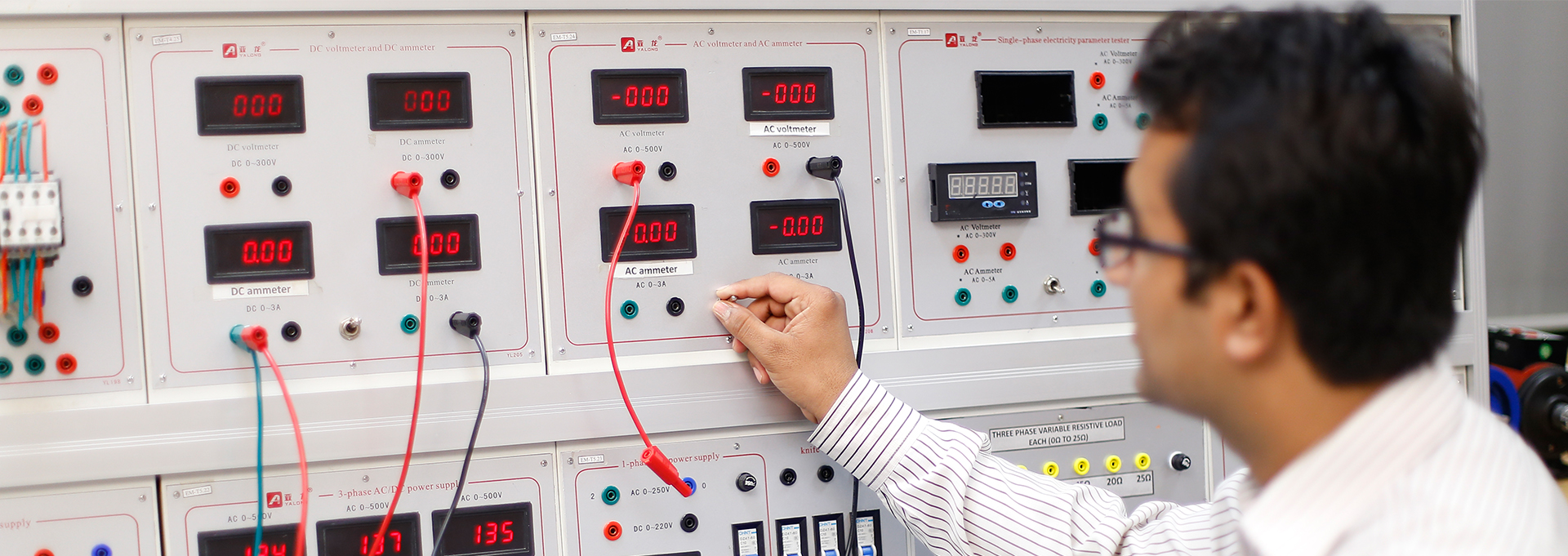
MS Electrical Engineering
MS Electrical Engineering at Mohammad Ali Jinnah University is an advanced course that caters to the needs of electrical engineering graduates looking to enhance their skills in the field of high technology.
Keeping in mind the needs of the 21st century, the course offers a thorough exploration of electrical engineering in specialized fields, including Robotics & Intelligent systems, Engineering Project Management, Power & Energy Systems, and Signal & Image processing. To connect your learning to the real world, the curriculum entails multiple industry case studies and assignments. After completion of your MS Electrical Engineering degree, you will be able to effectively respond to modern challenges and shape future developments with modern solutions.
As this is a research-focused degree, the department has fully-equipped and state-of-the-art labs, libraries, and substantial other resources so that you can complete your research goals.
What opportunities might MS Electrical Engineering lead to?
As the curriculum offers a comprehensive and in-depth exploration of the electrical engineering field vis-a-vis rapidly-growing global challenges, the specialist knowledge you shall acquire can get you a job as
- Electrical engineer
- Electronics engineer
- IT consultant
- Power Electronics engineer
- Power System Analyst
- Communication Security Consultant
- Control and instrumentation engineer
- Intelligent System Designer
Why MS Electrical Engineering with us?
Our degree has been accredited by PEC and is aligned with Washington Accord. Our Department of Electrical & Computer Engineering is led by highly-qualified faculty. Furthermore, we have state-of-the-art and fully equipped labs to support your research efforts. Also, our curriculum links your learning here at Mohammad Ali Jinnah University with the real world through industry-oriented assignments and case studies.
Program Educational Objectives (PEOs)
The MS (Electrical Engineering) program at Department of Electrical Engineering will fulfill the vision and mission of the University by providing students with necessary theoretical knowledge and practical skills required for handling engineering research problems enabling them to:
Program Learning Outcomes (PLOs)
Admission requirement.
- A minimum of 16 years of education leading to BS/BE degree or equivalent in Electrical/ Electronics.
- Computer/ Telecom Engineering (or related disciplines) with a minimum 2.00 out of 4.00 CGPA.
- Admission Test / NTS GAT
Program Duration
- This is normally a two years’ program comprising 4 semesters.
- There will be a Fall and a Spring semester in each year.
- The maximum duration to complete the degree requirements is 4 years
Degree Requirements
- A student admitted to the MS (EE) program will have to complete the degree requirements by one of the following options listed below:
- The student must have a minimum 2.5 or 4.0 CGPA in the coursework to be eligible for an MS (EE) degree.
- It must be noted that a student completing the degree requirements with a CGPA less than 3.0 will not be eligible for PhD admission.
Core Courses
List of elective courses (total cr. hrs.), power and energy systems, robotics and intelligent control systems, signal and image processing elective, sensors & communications electives, engineering management electives, general electives.
- 16 years relevant qualification like BE / B-Tech (Hons.) / BS (4 years in relevant discipline) or any other equivalent qualification with at least 2.0 CGPA or equivalent.
Specialization Requirements
A student can claim a specialization if he/she has completed 15 Cr. Hrs. including research work, if opted, from one of these specialization areas i.e., Power and Energy Systems, Robotics and Intelligent Control Systems, Signal and Image Processing, Sensors & Communications and Engineering Management. Otherwise, on the completion of 30 Cr. Hrs., he/she will be awarded the MS Degree without any specialization.
Semester-wise Plan of Study
Semester - 1, semester - 2, semester - 3, semester - 4.
WhatsApp us
- Svenska Close Den här sidan är ej översatt Startsida på svenska
Master's programmes in Electrical Engineering and Computer Science
KTH offers 20 master's programmes spanning the broad area of Electrical Engineering and Computer Science. They focus on various aspects including energy systems, photonics, nanomaterials, electronics, systems engineering, communication systems, computer science, software development, and human-computer interaction. KTH is ranked 23 among all universities in the world within Electrical Engineering.
Communication Systems
The programme focuses on wired and wireless network infrastructure, services and applications, and explores how the growth of the internet creates new business ideas and ventures. Students learn the fundamental design principles of networks and novel innovations such as cloud computing, internet-of-things, tactile internet, and 5G. Graduates develop secure and sustainable systems and services for the next generation.
Computer Science
The programme provides a broad education in computer science. Students acquire a solid foundation in advanced algorithms, computer security, artificial intelligence and internet protocols, and gain expertise through specialisation tracks. Graduates pursue careers at the forefront of software-based technologies, for example, as software engineers, game developers, IT project managers, or go on to PhD studies to pursue careers in research labs or academia.
Cybersecurity
Our society is increasingly dependent on digital infrastructures, and as a result, cyber-attacks on power grids, financial systems, and communication infrastructure have devastating consequences. Cybersecurity has emerged as one of the most critical challenges for the future. In a domain where knowledge is scarce, the programme provides a modern portfolio of courses fostering the cybersecurity engineers of the future.
Electric Power Engineering
The programme delivers a solid understanding of the electric power engineering domain and skills to contribute to more sustainable energy solutions. It offers excellent flexibility to specialise in electric energy conversion, electrotechnical design, power system control and electricity markets. Graduates find career opportunities at the forefront of advancements in power components and power systems.
Electromagnetics, Fusion and Space Engineering
The programme combines a strong foundation in electrical engineering with knowledge of electromagnetic fields, how they interact with matter and how to utilise them in technology. Students specialise in Microwave Engineering, Photonics, Plasma or Space. As the programme covers both theoretical and applied aspects of the field, graduates face diverse career opportunities in industry and academia.
Embedded Systems
The programme provides a thorough understanding of Embedded Systems and specialisation in a specific area covering theoretical and practical aspects of embedded systems development. Students gain engineering skills and learn integration of software and hardware, system design, integration, verification and management. Graduates have the expertise to harness the possibilities for innovation in the growing area of embedded systems.
Energy for Smart Cities (Joint EIT InnoEnergy)
The programme combines urban planning and energy management. Students gain in-depth engineering skills and innovation management techniques and study at two of the four European universities that offer the programme through EIT InnoEnergy. Graduates play a critical role in shaping a rapidly urbanising world, and contribute to create smarter, more sustainable and resource-efficient communities.
ICT Innovation
The programme combines technical competences with skills in innovation and entrepreneurship. The programme has a strong focus on integrating education, research and business modules in its curriculum, with active industry involvement. Students choose one of six technical specialisation tracks. Graduates work with system and software development, product management, business development, start-ups and consulting.
ICT Innovation (Joint EIT Digital)
The programme combines technical competences in the comprehensive field of Information and Communication Technology with strong skills in innovation and entrepreneurship. Students create an individual curriculum based on their interest in different areas of ICT and study at two European universities. Graduates receive a double degree and excellent qualifications for managerial posts in global markets.
Information and Network Engineering
The programme addresses the digitalisation of modern society and the rapid evolution of advanced communication systems. It covers the enabling technologies behind smart homes, smart grids, big data and autonomous vehicles. Students gain a solid foundation in data analysis, wireless communications and networking, and expertise through specialisation. Graduates lead research and development within the field.
Interactive Media Technology
The programme provides skills and knowledge in designing, developing and evaluating interactive products and media. You will explore topics related to human-computer interaction, user experience, and sonic and visual media. We encourage students to work on projects that matter to them and respond to societal challenges. Graduates are experts in industry and academia, and some start their own companies.
Machine Learning
Machine Learning develops algorithms to find patterns or make predictions from empirical data and this programme will teach you to master these skills. Machine Learning is increasingly used by many professions and industries such as manufacturing, retail, medicine, finance, robotics, telecommunications and social media. Graduates from the programme will be experts in the field, qualified for exciting careers in industry or doctoral studies.
Nanotechnology
Nanotechnology is an exciting field within science and technology related to materials and device structures with characteristic dimensions in the nanometer regime. You will learn how to create, measure, model and apply nanostructures and nanodevices with unique properties and functions. Graduates face vast career opportunities as nanotechnology penetrates several technology sectors, including medicine, energy, electronics and materials.
Nuclear Energy (Joint EIT InnoEnergy)
The programme educates tomorrow's nuclear engineers in how to address the key technical, social and environmental challenges faced by the industry. Going beyond the scope of a traditional nuclear education, the programme helps tomorrow’s engineers understand nuclear power in the context of a diverse energy mix. The programme is offered by seven European universities through EIT InnoEnergy.
Renewable Energy (Joint EIT InnoEnergy)
The programme covers Renewable Energy, a growing area with tremendous opportunities for new technologies, businesses and ideas. Students gain in-depth knowledge of all major renewable technologies and the opportunity to specialise in areas of interest. Students also acquire skills in business and innovation management. The programme is offered by five European universities through EIT InnoEnergy.
Security and Cloud Computing (Joint)
The programme focuses on two specific aspects of modern computing systems, cloud computing and information security. Students gain security knowledge, hands-on R&D skills and learn how to build next-generation cloud and mobile computing services and applications. Graduates receive degrees from two European universities and choose between positions in industrial R&D, security engineering and consulting, or PhD studies.
Smart Electrical Networks and Systems (Joint EIT InnoEnergy)
The programme covers smart electric grids, a critical component in the creation of a sustainable power supply. Students develop the entrepreneurial and engineering skills needed to understand, design, implement and manage smart grids. Graduates have a unique understanding of the role played by new technologies and new businesses in a changing landscape. Seven universities offer the programme through EIT InnoEnergy.
Software Engineering of Distributed Systems
The programme provides students with advanced knowledge for building distributed software applications that operate in a range of devices, from cloud servers to smartphones. Students will explore this rapidly evolving field through specialisation in software development or data analysis. Graduates have expertise in cutting-edge methods and technologies in distributed software systems and are highly demanded by the industry.
Sustainable Digitalisation
Digitalisation is a powerful driver of societal change; it offers the potential to build resilience for a volatile, uncertain, complex and ambiguous future. But digitalisation can also be problematic if it speeds up unsustainable trends. The programme will give you the skills to lead complex processes and use digitalisation in service of a regenerative transformation towards a sustainable society.
More about this programme
Systems, Control and Robotics
The programme focuses on the analysis, design and control of robots, autonomous vehicles, and other complex technical systems. It provides broad skills in the field and expertise through specialisations going deeper into areas such as autonomous sensing, AI, machine learning, decision making and control. Graduates face interesting careers, often in the robotics and autonomous vehicles industry, or as PhD students.
Other subjects
Master's programmes in Architecture and the Built Environment
Master's programmes in Engineering Sciences
Master's programmes in Engineering Sciences in Chemistry, Biotechnology and Health
Master's programmes in Industrial Engineering and Management
Find your programme
- List of all MSc programmes
- Browse MSc programmes by subject
- How to apply
- Entry requirements
- Scholarships
- Ask us about studies
Explore KTH and student life
- Explore KTH
- Student life

It's easy to start your application.
Trending Searches
- graduate admissions
- academic programs
- financial aid
- academic calendar
- maps & directions
- summer school
Quantum physics may help lasers see through fog, aid in communications
JT Shen to pioneer two-color quantum photonic laser with DARPA grant

Communications and other laser-based technologies can be hampered by adverse conditions, such as fog, extreme temperatures or long distances. An engineer in the McKelvey School of Engineering at Washington University in St. Louis is implementing quantum technology to develop ways that lasers can operate effectively in these challenging environments.
Jung-Tsung Shen , associate professor in the Preston M. Green Department of Electrical & Systems Engineering, is developing a prototype of a quantum photonic-dimer laser with a two-year, $1 million grant from the Defense Advanced Research Projects Agency (DARPA) of the U.S. Department of Defense. With the funding, Shen will implement his lab’s two-color photonic dimer laser technology, in which carefully controlled pairs of light particles, or photonic dimers, are used to generate a powerful and concentrated beam of light, or laser. Quantum photonic-dimer lasers take advantage of quantum effects to bind two photons together, increasing their energy and efficiency.
Photons, or particles that represent a quantum of light, travel very quickly and don't carry a charge, so it is difficult to get them to interact with each other and to manipulate them. Shen’s lab found that when he “glued” two photons of different colors together to form a photonic dimer using the power of quantum mechanics, they took on the behavior of a blue photon. The entanglement between the two photons within the dimer may offer unprecedented capabilities applications in communication and imaging, Shen said.
“Photons encode information when they travel, but the travel through the atmosphere is very damaging to them,” Shen said. “When two photons are bound together, they still suffer the effects of the atmosphere, but they can protect each other so that some phase information can still be preserved.”
These two-color dimers can be tailored to the atmosphere or to the fog through a unique property of quantum mechanics known as quantum entanglement, Shen said.
“Quantum entanglement is a correlation between photons,” he said. “We are trying to exploit the property of entanglement to do something innovative. The entanglement can do many things that we can only dream of — this is just the tip of the iceberg.”
Shen previously received funding from the Chan Zuckerberg Initiative to develop the technology for deep brain imaging. Researchers can implant fluorescent molecules in the brain and use photons to excite them, which allows the photons to collect information about the brain’s structure.
Now, Shen is exploring more of that vast iceberg to move toward the realization of applications in telecommunications, quantum computing and more.
Shen’s team, which includes graduate student Qihang Liu and collaborators from Texas A&M University’s Institute for Quantum Science & Engineering , will introduce the quantum photonic-dimer laser methods that will allow them to create different states of two-color dimers at a rate of 1 million pairs per second – a rate that has never been seen before.
“The unique thing about this project is its dual focus on generating these novel strongly correlated quantum photonic states and developing the theoretical framework and advanced algorithms for their efficient detection, potentially revolutionizing quantum imaging and communication,” Shen said.
Shawn Ballard contributed to this story.
Click on the topics below for more stories in those areas
- Graduate Students
- Electrical & Systems Engineering
Faculty in this story

Jung-Tsung Shen
Associate Professor
You may also be interested in:

Altered carbon points toward sustainable manufacturing
Feng Jiao scaled up carbon dioxide conversion process to a much larger scale.

New machine learning method can better predict spine surgery outcomes
Chenyang Lu leads collaboration using Fitbit data from patients.

Martin named highly ranked scholar by ScholarGPS
Randall Martin highly ranked for work in satellite, nitrogen oxide, pollution.

- Schools & departments

Electrical Power Engineering MSc
Awards: MSc
Study modes: Full-time
Accreditation
Funding opportunities
Upcoming Introduction to Postgraduate Study and Research events
Join us online on the 19th June or 26th June to learn more about studying and researching at Edinburgh.
Choose your event and register
Programme description
Our Electrical Power Engineering MSc is a one-year programme designed to equip you with broad and robust training on modern power engineering technologies, with a strong focus on renewable energy conversion and smart grids.
In semesters 1 and 2, you will acquire the advanced fundamentals, research tools and techniques of power engineering, as well as an in-depth knowledge of emerging technologies and advanced numerical methods to address some of the world's grand challenges, such as integration of wind energy, offshore renewables, energy storage and photovoltaics.
You will also complete an individual dissertation project over the summer months, which provides a good opportunity for you to apply your acquired skills to a real-world problem.
How will I learn?
You will be taught by our experts who are leaders in their field and you will deepen your knowledge through:
- our connections with leading power engineering companies in the sector
- practical labs where you will benefit from our specialist power electronics and machines facilities
- participating in site visits so you can experience the application of theory to real situations
- gaining experience of using industry-approved software
- being exposed to industrial guest speakers on leading technology and power engineering challenges
- actively engaging in our world-leading research on power engineering as part of your dissertation project
Research project
In close collaboration with our academics, you will undertake a research project to put into practice the knowledge and skills you have acquired during the first two taught semesters, during which you will investigate an actual power engineering problem.
You can carry out your project within either:
- one of our power research groups working alongside academics and researchers from the Institute for Energy Systems
- in an industrial placement at one of our collaborating companies within the power sector
The MSc in Electrical Power Engineering is accredited by the UK Institution of Engineering and Technology (IET), one the largest professional engineering bodies in the world. Accredited programmes undergo continuous and robust quality review by the IET and are internationally recognised for the quality of the education they provide.
Your MSc can therefore count towards the academic requirements for registration as a Chartered Engineer (CEng) in the UK. Chartered Engineers not only have a firm grasp of the underpinning knowledge of their field, but also possess the required professional skills to excel in the modern engineering environment.
Programme structure
You will learn through a combination of:
- taught courses
- practical laboratories
- group design projects
- a research dissertation
The courses correspond to 120 credits of taught material, plus 60 credits of a research project.
You will take the following compulsory courses in Semester 1:
- Distributed Energy Resources and Smart Grids
- Engineering Research Methods with Grand Challenge
- Power Conversion
- Power Systems
You will take the following compulsory courses in Semester 2:
- Power Systems Engineering and Economics
- Principles of Wind Energy
- Solar Energy & Photovoltaic Systems
- Advanced Power Electronics and Machines
Research Project
- Electrical Power Engineering Dissertation
Courses can change from year to year. Those listed provide a representation of courses previously offered. Courses for the forthcoming year will be published on the Degree Programme Table in the Spring.
Learning outcomes
Our aim is to train the next generation of power engineers who are equipped to contribute to the rapidly changing needs of the industry and society. We will support you to:
- build your knowledge of the most recent, cutting-edge developments in power engineering
- acquire advanced research and development skills and training, allowing you to excel in both industrial and academic settings
- understand and tackle the global energy trilemma of supplying secure, equitable and environmentally sustainable energy, while appreciating the technical, social and economic challenges faced in both developed and developing countries.
Career opportunities
Power engineering is one of the most in-demand professions in the UK and worldwide with Governments putting plans in place to decarbonise and modernise the electricity sector.
The transition to a green economy will require a highly skilled workforce led by electrical power engineers with a solid academic background, an appreciation of the trajectory of the industry and an understanding of the challenges and implications brought about by the introduction of new power technologies.
As a graduate from our MSc Electrical Power Engineering programme, you will be equipped to go into a wide range of careers anywhere in the world, such as in:
- energy consultancies
- energy utilities or manufacturers
- engineering or construction companies
- renewable energy developers
- governments
The programme runs in a close association with other activities within the broader Electrical Engineering programme within the School, and existing research associations and consortia (such as the EPSRC Centre for Energy Systems Integration), meaning you will benefit from:
- networking events
- industrial presentations
Careers service
Entry requirements
These entry requirements are for the 2024/25 academic year and requirements for future academic years may differ. Entry requirements for the 2025/26 academic year will be published on 1 Oct 2024.
A UK 2:1 degree, or international equivalent, in Electrical and/or Electronic Engineering.
Applicants with different academic backgrounds may be considered but we expect you to have passed at least two power engineering related courses with marks equivalent to UK 2:1 as a minimum. Examples of relevant courses are power electronics, power systems, electric machines, control engineering, renewable energy etc. This requirement may be partially met by relevant industrial experience; applicants with non-standard backgrounds may be considered on a case-by-case basis.
Applicants will also need to submit a personal statement, which should clearly demonstrate both their level of understanding of power engineering, and their strong interest in and commitment to the field.
Please note that entry to this programme is very competitive. A typical offer will normally require a UK first class honours degree or equivalent.
Students from China
This degree is Band B.
- Postgraduate entry requirements for students from China
International qualifications
Check whether your international qualifications meet our general entry requirements:
- Entry requirements by country
- English language requirements
Regardless of your nationality or country of residence, you must demonstrate a level of English language competency at a level that will enable you to succeed in your studies.
English language tests
We accept the following English language qualifications at the grades specified:
- IELTS Academic: total 6.5 with at least 6.0 in each component. We do not accept IELTS One Skill Retake to meet our English language requirements.
- TOEFL-iBT (including Home Edition): total 92 with at least 20 in each component. We do not accept TOEFL MyBest Score to meet our English language requirements.
- C1 Advanced ( CAE ) / C2 Proficiency ( CPE ): total 176 with at least 169 in each component.
- Trinity ISE : ISE II with distinctions in all four components.
- PTE Academic: total 62 with at least 59 in each component.
Your English language qualification must be no more than three and a half years old from the start date of the programme you are applying to study, unless you are using IELTS , TOEFL, Trinity ISE or PTE , in which case it must be no more than two years old.
Degrees taught and assessed in English
We also accept an undergraduate or postgraduate degree that has been taught and assessed in English in a majority English speaking country, as defined by UK Visas and Immigration:
- UKVI list of majority English speaking countries
We also accept a degree that has been taught and assessed in English from a university on our list of approved universities in non-majority English speaking countries (non-MESC).
- Approved universities in non-MESC
If you are not a national of a majority English speaking country, then your degree must be no more than five years old* at the beginning of your programme of study. (*Revised 05 March 2024 to extend degree validity to five years.)
Find out more about our language requirements:
Fees and costs
If you receive an offer of admission you will need to pay a deposit to secure your place.
- £1,500 (this contributes towards your tuition fees)
Any applicants who are required to pay will receive an offer with full details. (If there is no information on your offer about the deposit, then you are not required to pay.)
Find out more about tuition fee deposits:
- Tuition fee deposits
Living costs
You will be responsible for covering living costs for the duration of your studies.
Tuition fees
Scholarships and funding, uk government postgraduate loans.
If you live in the UK, you may be able to apply for a postgraduate loan from one of the UK’s governments.
The type and amount of financial support you are eligible for will depend on:
- your programme
- the duration of your studies
- your tuition fee status
Programmes studied on a part-time intermittent basis are not eligible.
- UK government and other external funding
Engineering International Masters Scholarships
The scholarships will be awarded to overseas applicants who have been accepted for admission on a full-time basis for an eligible postgraduate taught Masters programme within the School of Engineering.
The scholarship will be awarded broadly on the basis of academic merit with candidates requiring a first-class honours degree from a UK university or overseas equivalent.
Learn more about this scholarship:
- Engineering International Masters Scholarship
- Scottish Power Scholarship
- Full tuition fees plus a monthly maintenance allowance
ScottishPower has been building relationships with universities in our communities for a number of years. Working together, we aim to support development of future talent while mitigating the projected skills gap within the energy sector.
The programme is designed to financially support high achieving recent graduates in Spain, the United Kingdom and Mexico, who are interested in pursuing an advanced degree in industry relevant fields such as engineering, smart grids, renewable energy, sustainability, energy and environment, information technology, big data, cybersecurity, and more.
Other funding opportunities
Search for scholarships and funding opportunities:
- Search for funding
Further information
- Admissions Officer (lines open Mon-Fri 10am-4pm)
- Phone: +44 (0)131 650 5737
- Contact: [email protected]
- Programme Director, Dr Michael Merlin
- Phone: +44 (0)131 650 5726
- Contact: [email protected]
- School of Engineering
- Sanderson Building
- The King's Buildings Campus
- School: Engineering
- College: Science & Engineering
This programme is not currently accepting applications. Applications for the next intake usually open in October.
Start date: September
Awards: MSc (12 mth FT)
Application deadlines
Due to high demand, the school operates a number of selection deadlines.
We strongly recommend you apply as early as possible. Applications may close earlier than the published deadlines if there is exceptionally high demand.
We will make a small number of offers to the most outstanding candidates on an ongoing basis, but hold the majority of applications until the next published selection deadline.
We aim to make the majority of decisions within eight weeks of the selection deadline.
If we have not made you an offer by a specific selection deadline this means one of two things:
- your application has been unsuccessful, in which case we will contact you to let you know, or
- your application is still being considered, will be carried forward for consideration in the next selection deadline and we’ll be in touch once a decision is made
Selection Deadlines
- How to apply
Find out more about the general application process for postgraduate programmes:

IMAGES
VIDEO
COMMENTS
Top Research Topics for Electrical Engineering Students. For your convenience, we have compiled here a list of the top 100 electrical engineering project ideas in 2021. Distance Locator for an underground cable fault. An analysis of battery energy storage (BES) systems financial incentive policies. Photovoltaic conversion efficiency improvement ...
List of Power Systems Research Topics Ideas for MS/PhD Thesis. 1. Introduction and literature review of power system challenges and issues. 2. Power system inertia estimation: Review of methods and the impacts of converter-interfaced generations. 3.
1.1 Smart Grids and Micro-grids. a. Distributed control strategies for micro-grid management. b. Blockchain applications for secure energy transactions in smart grids. c. Resilience and robustness enhancement in smart grid systems against cyber threats. d. Integration of renewable energy sources in micro-grids. e.
Electric Power Systems Engineering. The Master of Science in Electric Power Systems Engineering (MS-EPSE) gives students a thorough understanding of the tools, methods, and practice of electric power engineering. It is both focused and practical in its orientation, with the goal of providing an education that is directly applicable to a career ...
Engineer the Future of Energy. Power Up Your Career. Bringing together a variety of analytical and practical subjects, both classical and current, WPI's MS in Power Systems Engineering Online prepares electrical engineers for professional practice in the electric utility industry. Through course topics in analysis, rotating machinery, transmission and distribution systems, protection and ...
The skills that electric power engineers will require are changing accordingly. The MS in Electrical Engineering (Electric Power) is a program option for students seeking careers in the electric power industry. The plan of study combines traditional topics in power generation, transmission, and distribution with cutting-edge topics such as the ...
Master of Science in Electrical Engineering (Electric Power) The Master of Science in Electrical Engineering (Electric Power) program (available both on-campus and online via DEN@Viterbi) is intended for students seeking careers in the electric power industry. The plan of study combines traditional topics in power generation, transmission, and ...
2017. Sachi Jayasuriya, " Modeling and Analysis of Information-Embedded Power Electronic Converter Systems " Ph.D. Thesis, May 2017. Edwin J. John, " Experimental Testbed for Load Control on an AC/DC Microgrid " M.S. Thesis, September 2017.
from advanced fundamental topics and research tools and techniques in electrical power engineering (1st semester), to specialist courses on emerging technologies and advanced numerical methods for power engineering problems (2nd semester). The taught component of the programmes is then followed by the summer dissertation (MSc EPE) or the year
Programme description. Our Electrical Power Engineering MSc is a one-year programme designed to equip you with broad and robust training on modern power engineering technologies, with a strong focus on renewable energy conversion and smart grids. In semesters 1 and 2, you will acquire the advanced fundamentals, research tools and techniques of ...
This area focuses on electrical power engineering and the electrical to non-electrical energy conversion process. Topics of interest include electromechanical component design, power electronics design, passive component design, power magnetics, electric drives, electric propulsion systems, vehicle (ship, spacecraft, automotive) electric systems, and power system control and stability.
Following the initial literature research and fa miliarisation with the software and hardware platfor ms, work will proceed with the real-time imple mentation of the LV network on the OPAL RT s ystem.
For entry in the academic year beginning September 2024, the tuition fees are as follows: MSc (full-time) UK students (per annum): £14,000. International, including EU, students (per annum): £35,000. Further information for EU students can be found on our dedicated EU page. The fees quoted above will be fully inclusive for the course tuition ...
Integrated Circuits and Systems. This area is concerned with the application-driven design of electronic circuits and systems, spanning a wide spectrum from low frequencies to mm-wave and THz. These systems are designed with a variety of fabrics and technologies, ranging from silicon subsystems and modules, CMOS and BiCMOS chips, emerging nano ...
Both research and research-based education at the Department of Electric Energy cover the broad interdisciplinary aspects of power engineering: generation, transmission, conversion and the use of electric energy, including the accompanying techno-economic aspects. The Department works in close collaboration with industry partners to develop ...
Power and energy systems. This area of electrical engineering focuses on devices and systems that process and deliver electric energy. It includes the broad topics of electromechanics, design and operation of large electric power and energy systems, magnetic and electric energy conversion methods, the application of electronic devices at high ...
Research. Our research areas reflect the diversity of the electrical engineering profession and range from the very small, such as nanoscale electronic devices and their modeling, to the very large, such as the U.S. electric power grid and its control. Our faculty includes experts in many application areas, such as the design of flight control ...
Jan 2022. Tadeusz Antoni Knych. Explore the latest full-text research PDFs, articles, conference papers, preprints and more on POWER ENGINEERING. Find methods information, sources, references or ...
MS Elective Specializations. MS Students in the electrical engineering department can participate in a number of elective specializations or can design their own MS program in consultation with an adviser. These specializations are not degree requirements. They represent suggestions from the faculty as to how one can structure their program to ...
Elevate your career and prepare for the future with CU Boulder's Master of Science in Electrical Engineering offering focus areas in embedded systems, power electronics, and photonics and optics. You will receive the same high-quality education and rigor as on-campus students. Taught by world-class faculty, the advanced curriculum combines ...
Piezoelectrics and ferroelectrics. Studying behaviour thru computational modelling. Computation research in new technologies, materials. Power electronics tools and equipment. Electrical motors and their redesigning. Energy networks and their mathematical foundations. Computer-aided design for electrical engineering. Smart grid monitoring.
Development of Small-Scale Power Supplies for Wearable Medical Diagnostic Devices, Donny Stiner. PDF. Novel Approach to Integrate CAN Based Vehicle Sensors with GPS Using Adaptive Filters to Improve Localization Precision in Connected Vehicles from a Systems Engineering Perspective, Abhijit Vasili. PDF
MS Electrical Engineering at Mohammad Ali Jinnah University is an advanced course that caters to the needs of electrical engineering graduates looking to enhance their skills in the field of high technology. Keeping in mind the needs of the 21st century, the course offers a thorough exploration of electrical engineering in specialized fields ...
KTH offers 20 master's programmes spanning the broad area of Electrical Engineering and Computer Science. They focus on various aspects including energy systems, photonics, nanomaterials, electronics, systems engineering, communication systems, computer science, software development, and human-computer interaction.
Jung-Tsung Shen, associate professor in the Preston M. Green Department of Electrical & Systems Engineering, is developing a prototype of a quantum photonic-dimer laser with a two-year, $1 million grant from the Defense Advanced Research Projects Agency (DARPA) of the U.S. Department of Defense. With the funding, Shen will implement his lab's ...
Programme description. Our Electrical Power Engineering MSc is a one-year programme designed to equip you with broad and robust training on modern power engineering technologies, with a strong focus on renewable energy conversion and smart grids. In semesters 1 and 2, you will acquire the advanced fundamentals, research tools and techniques of ...